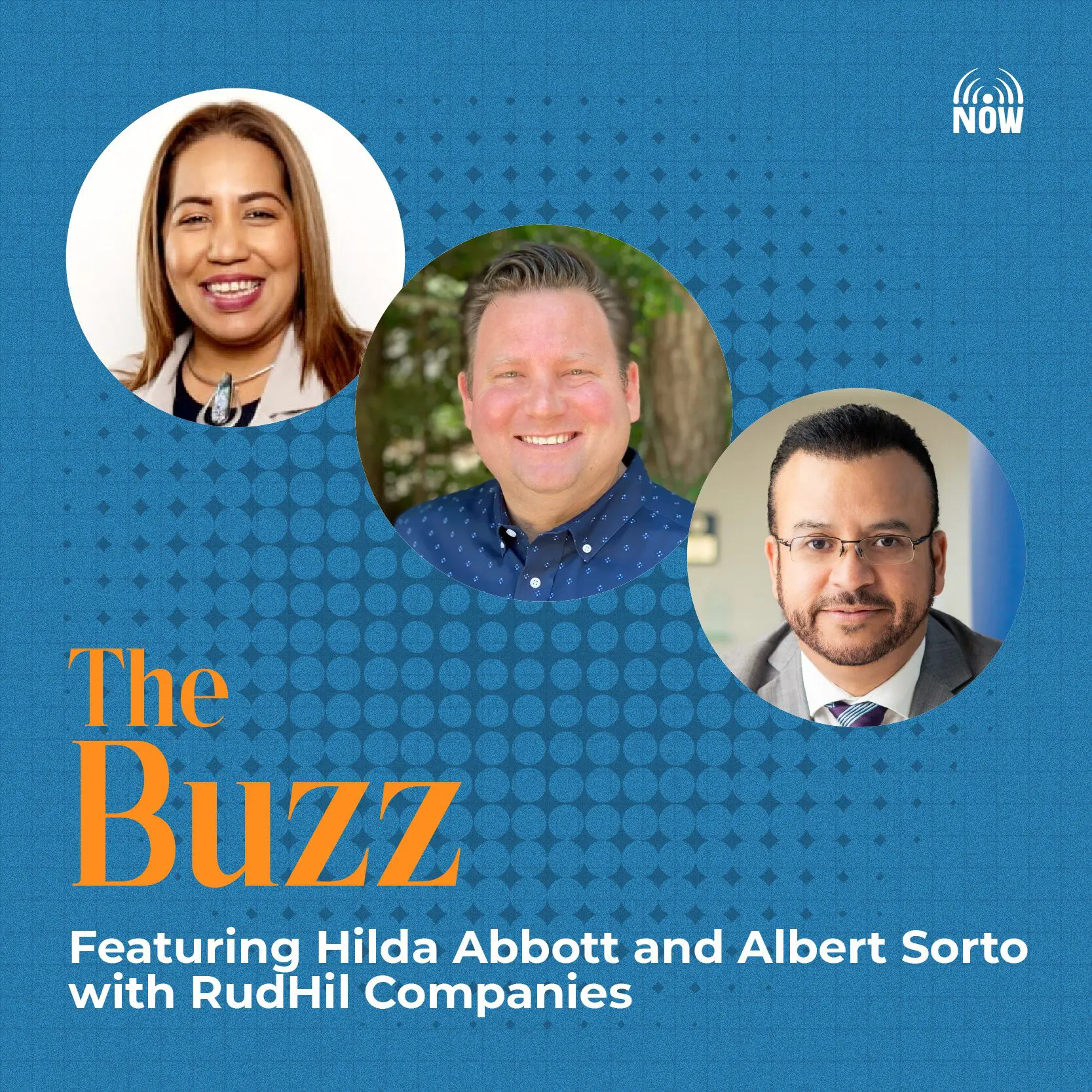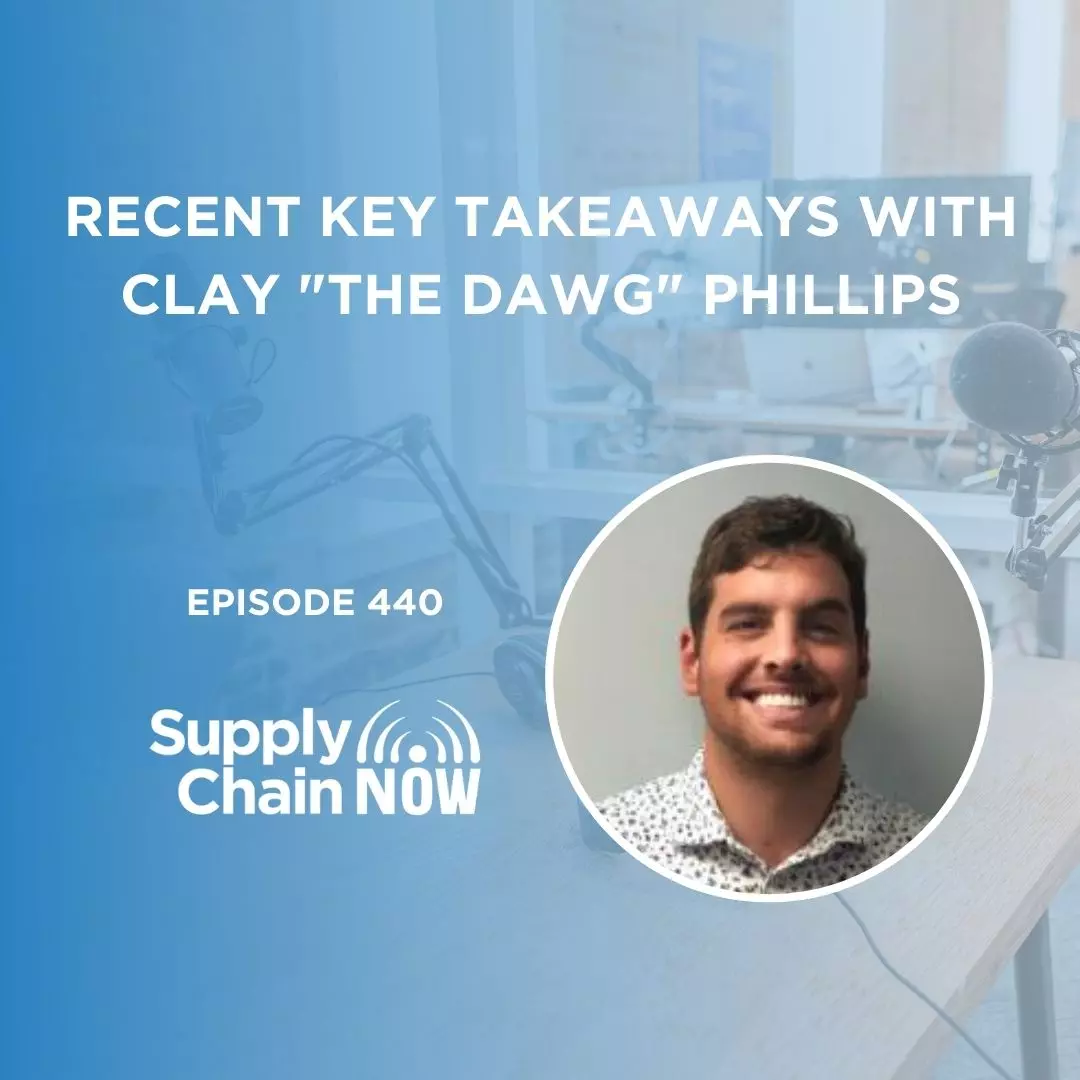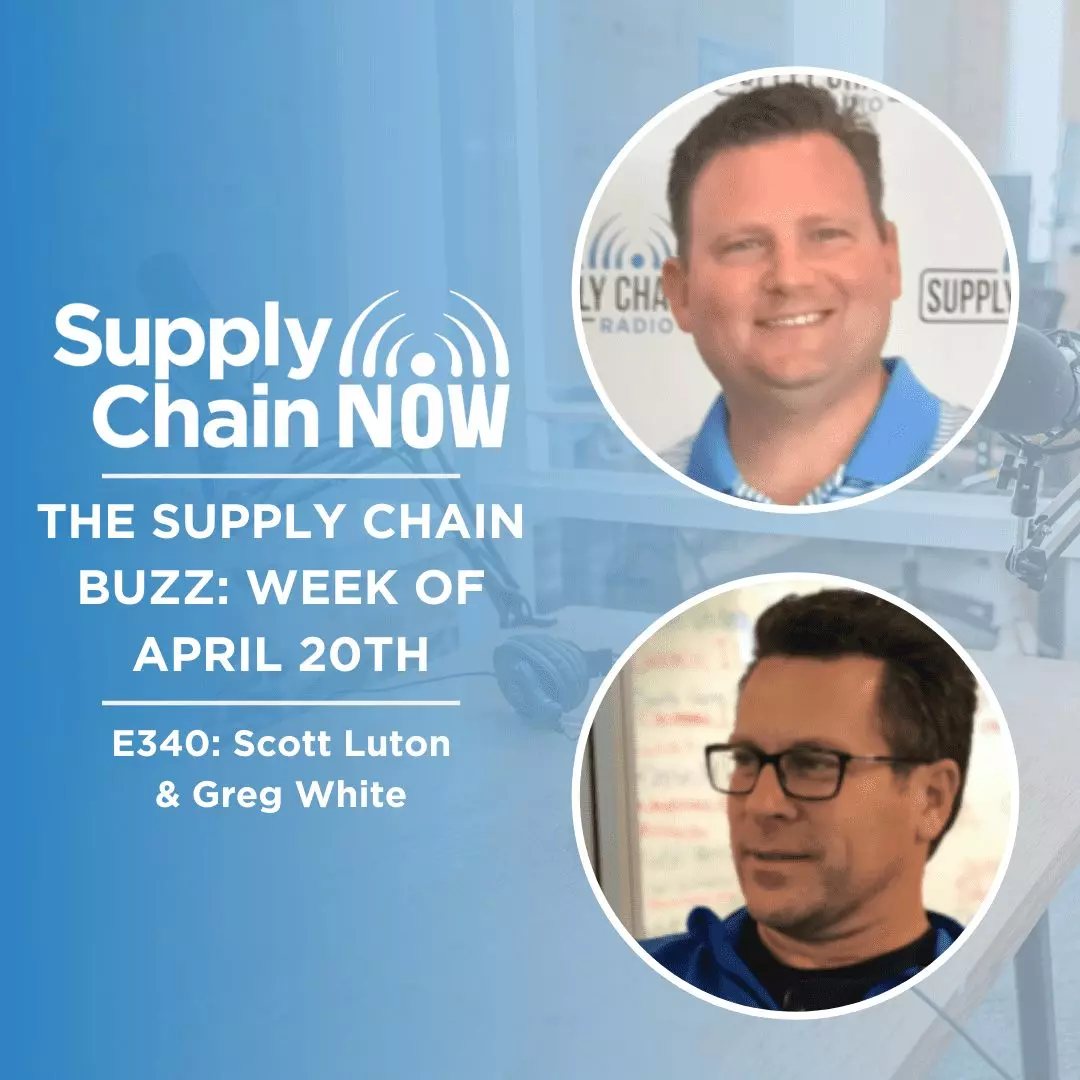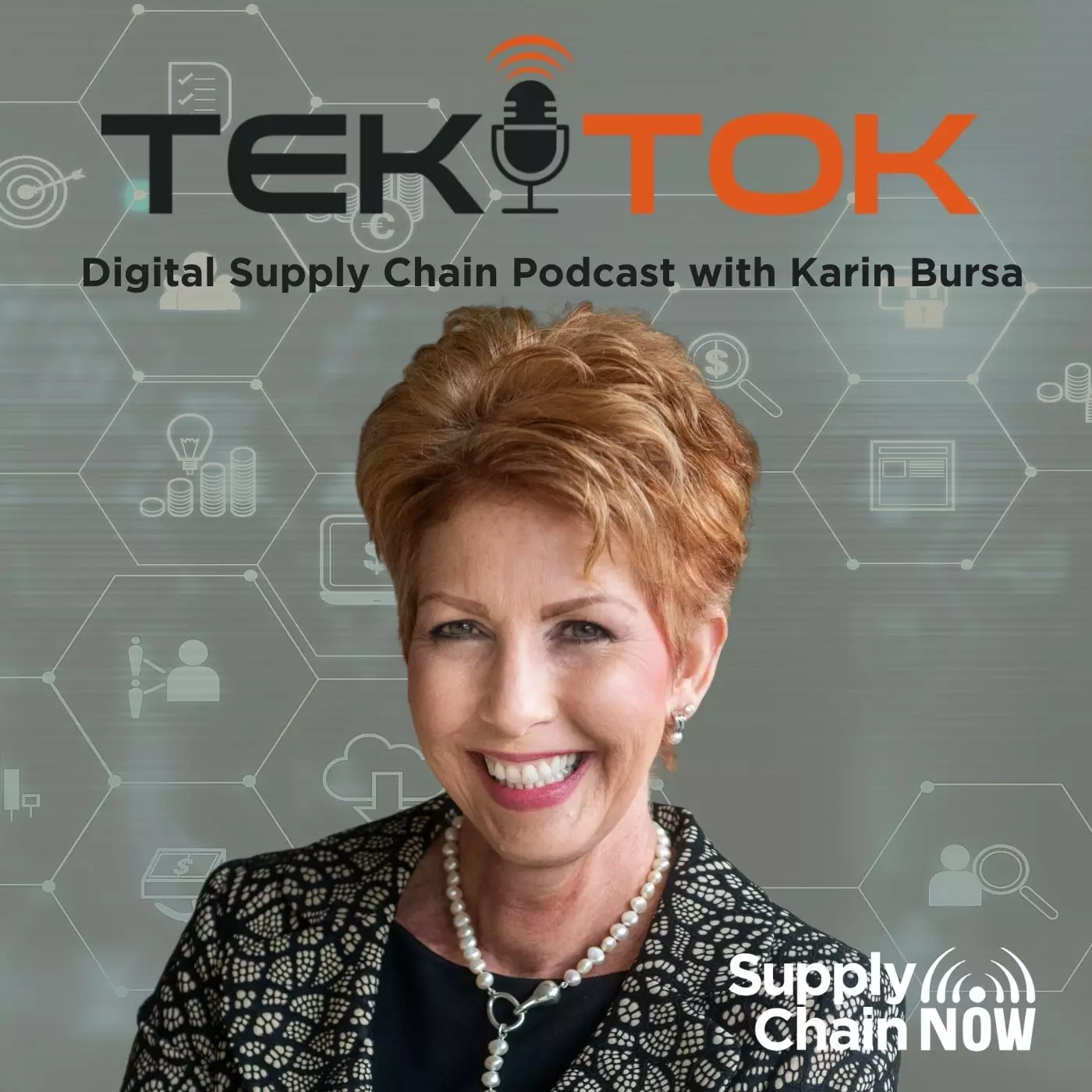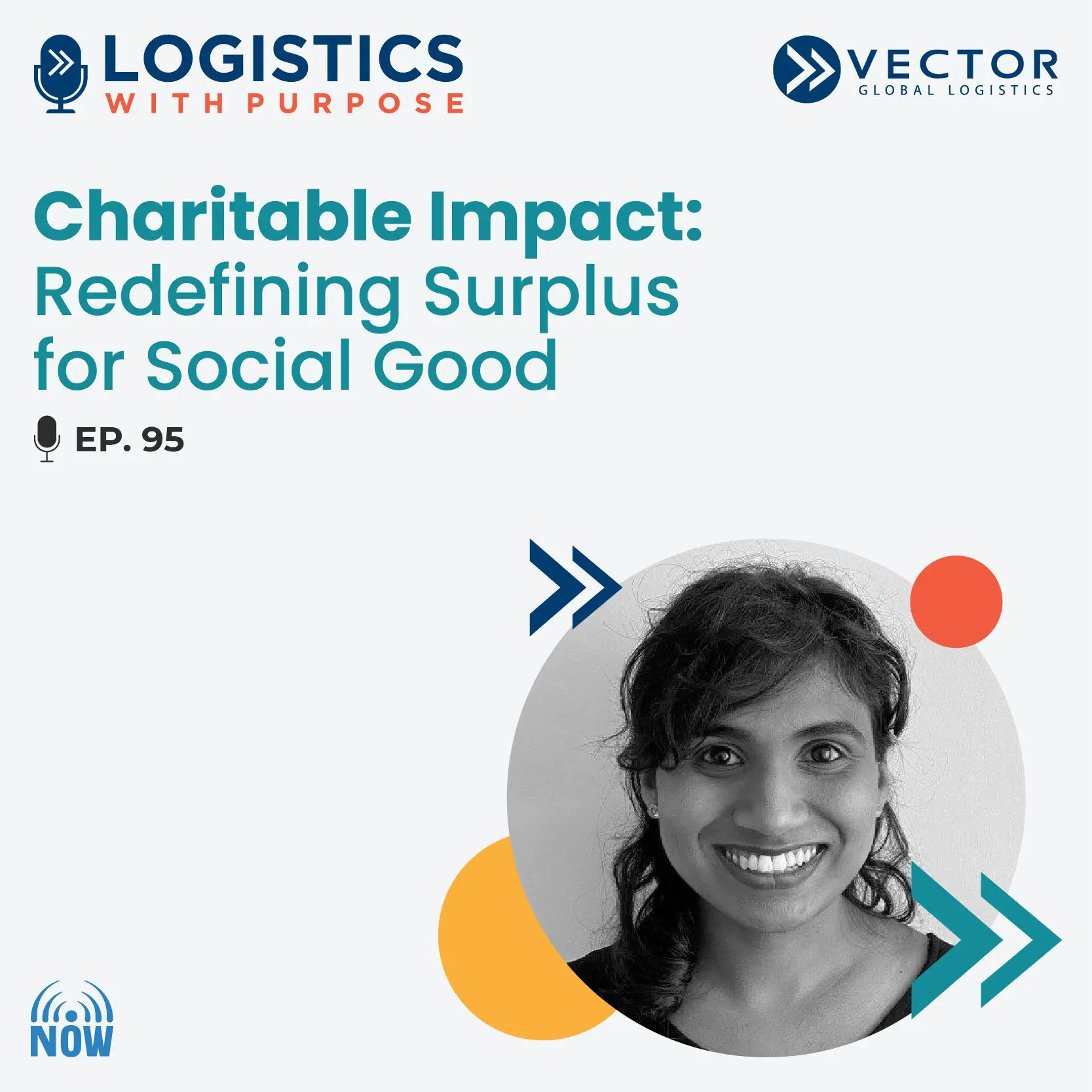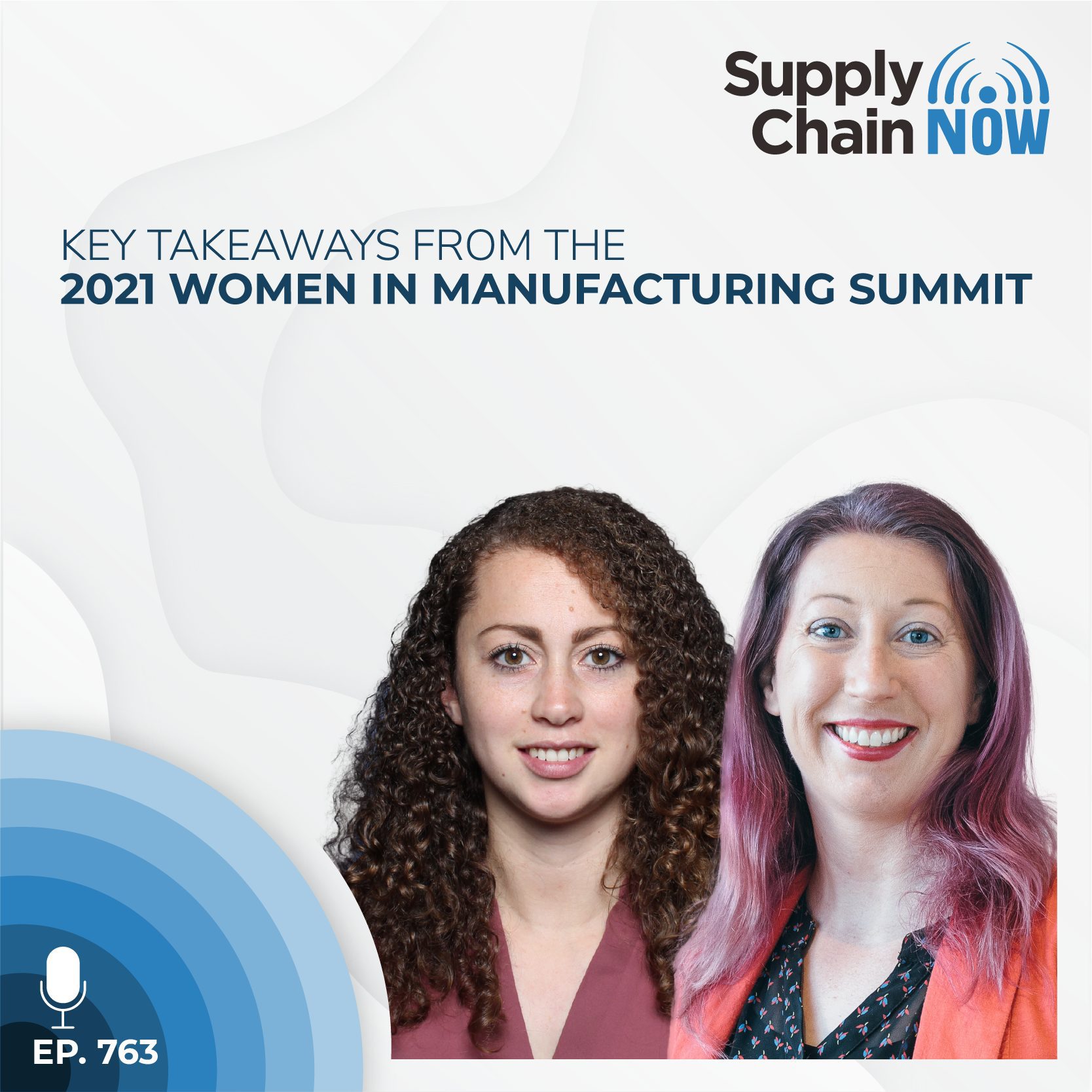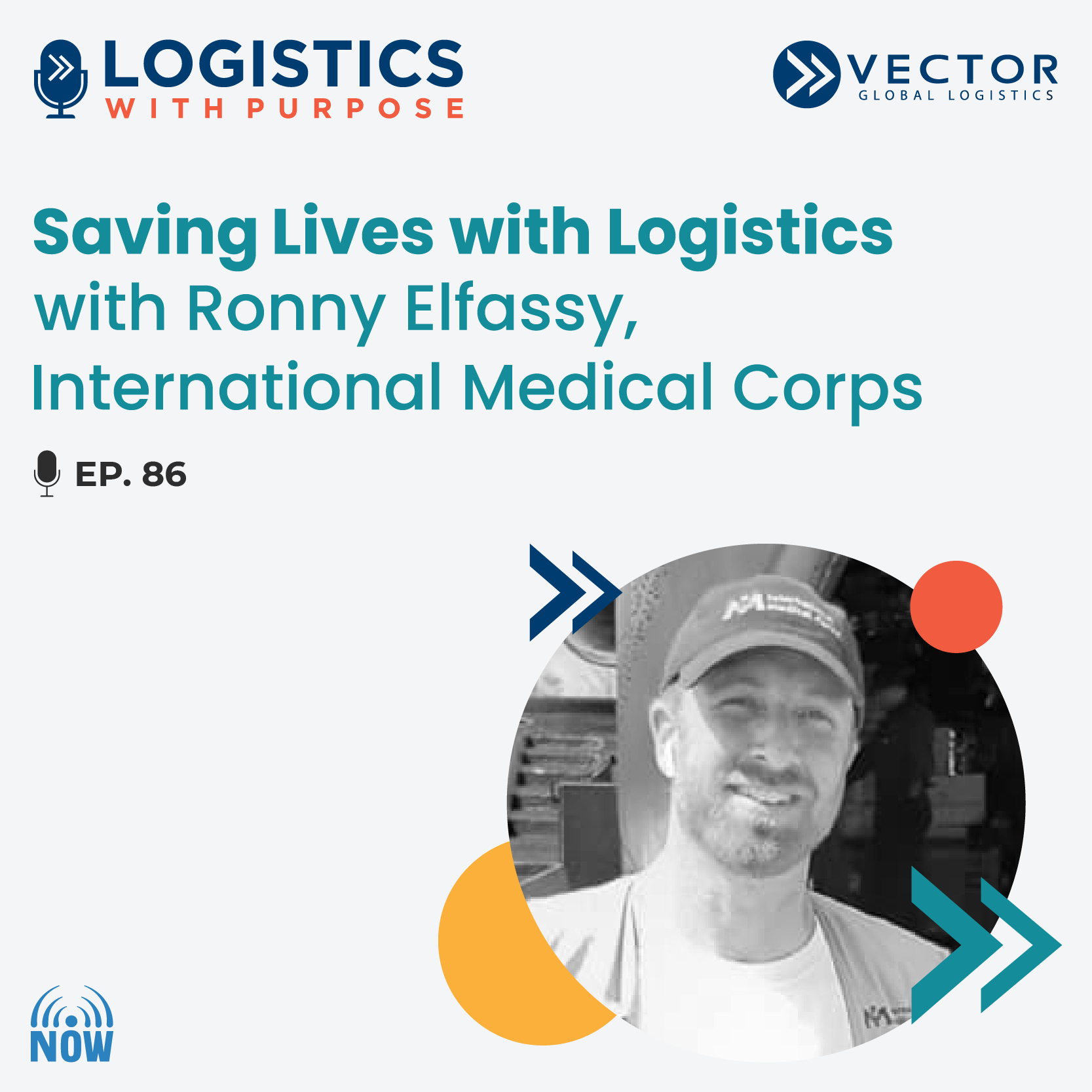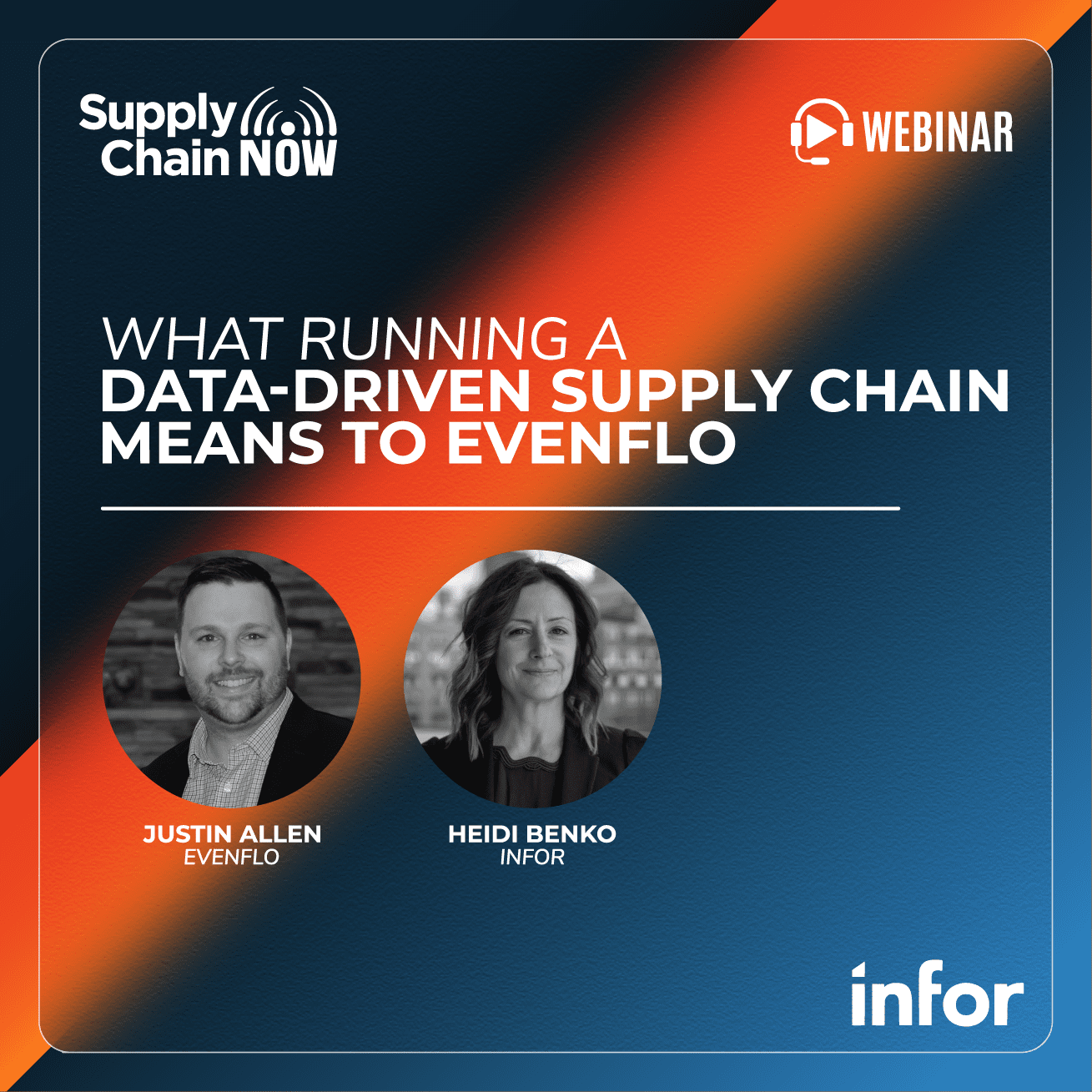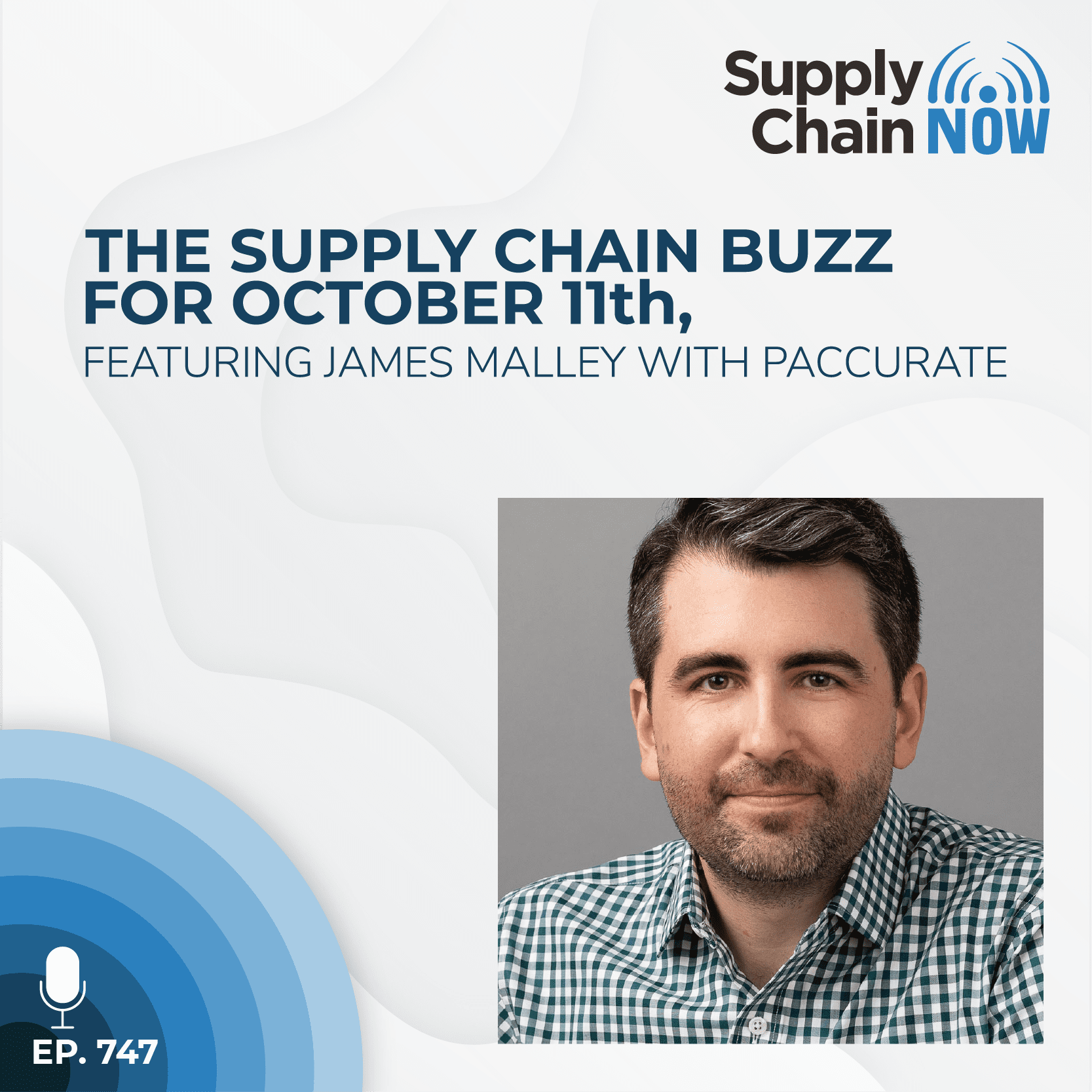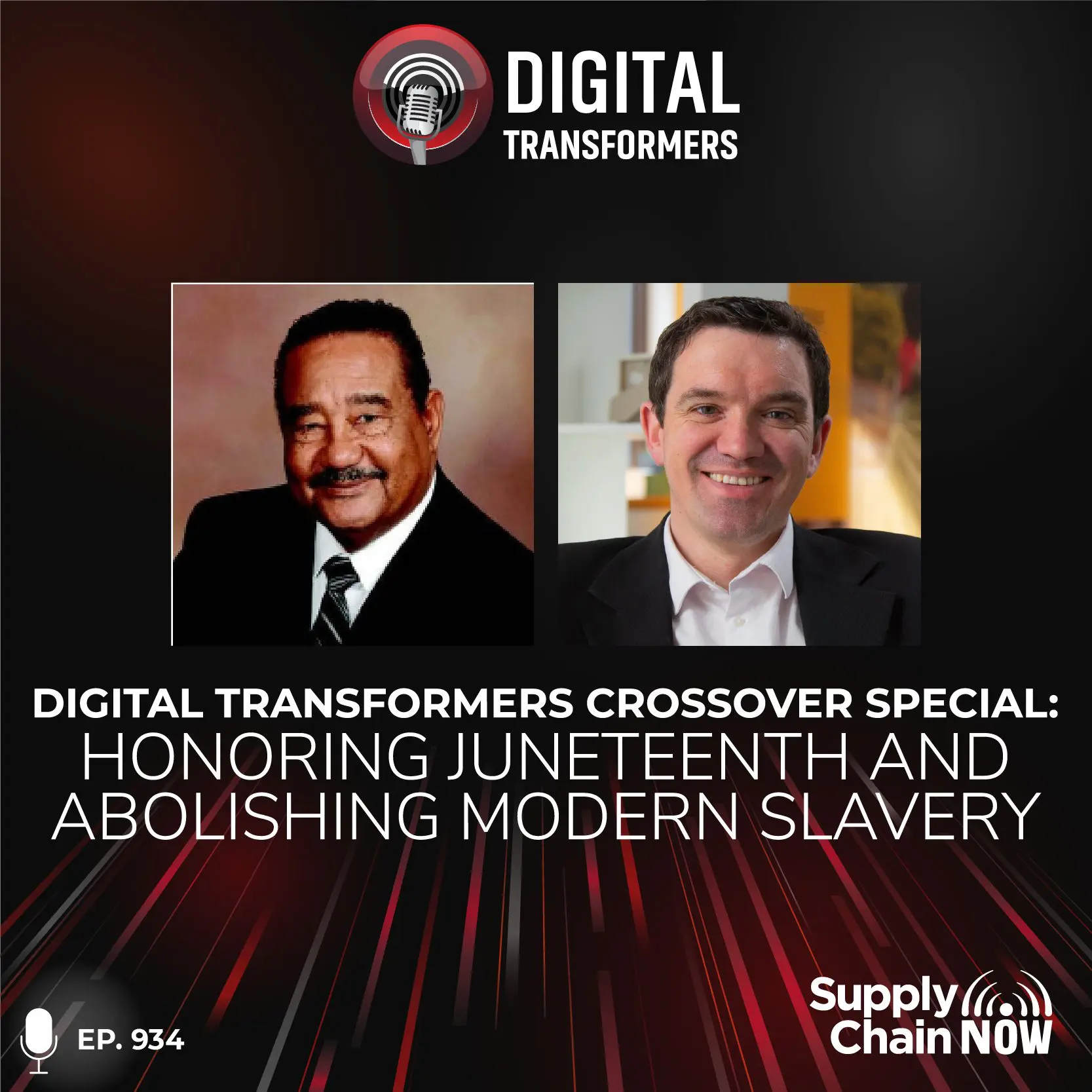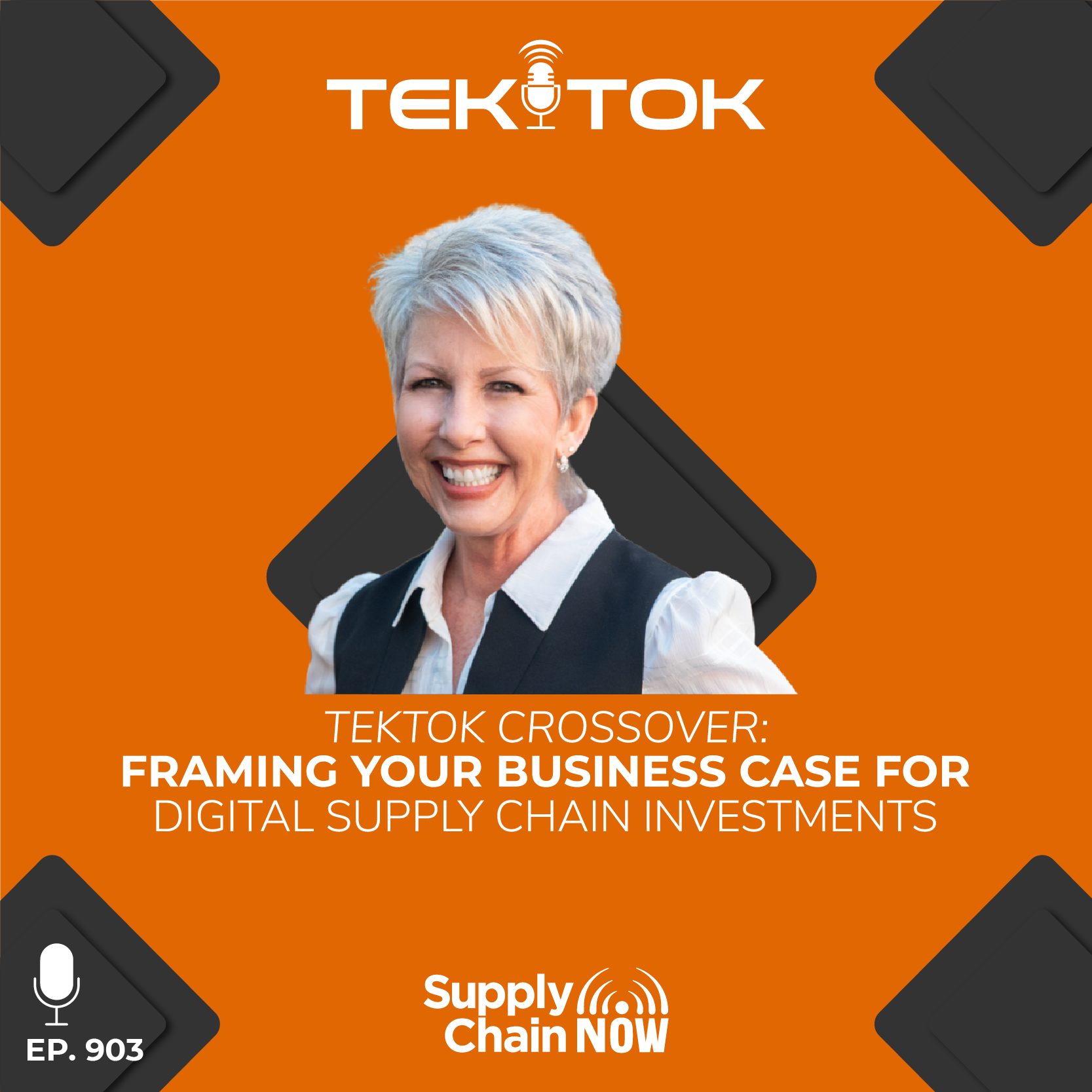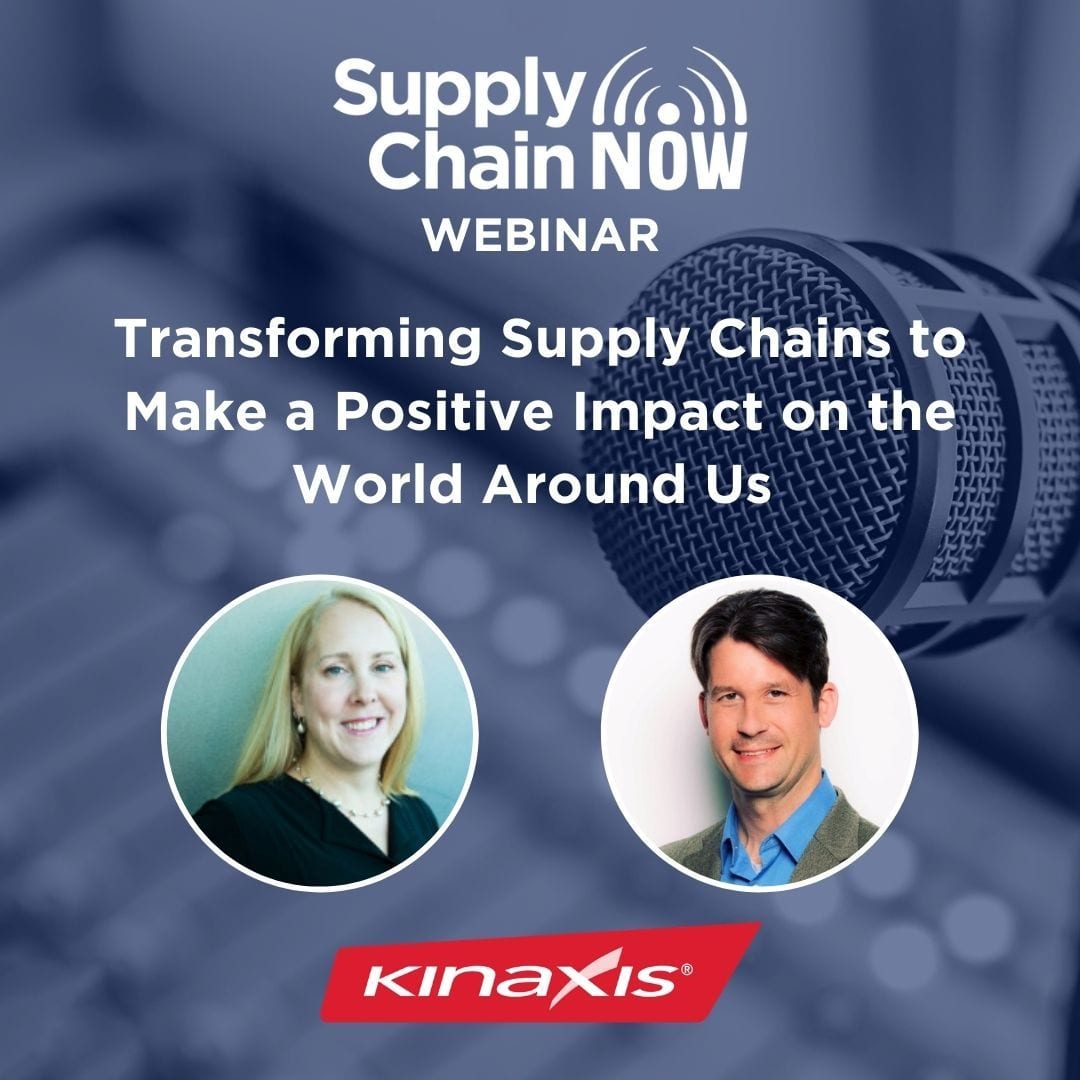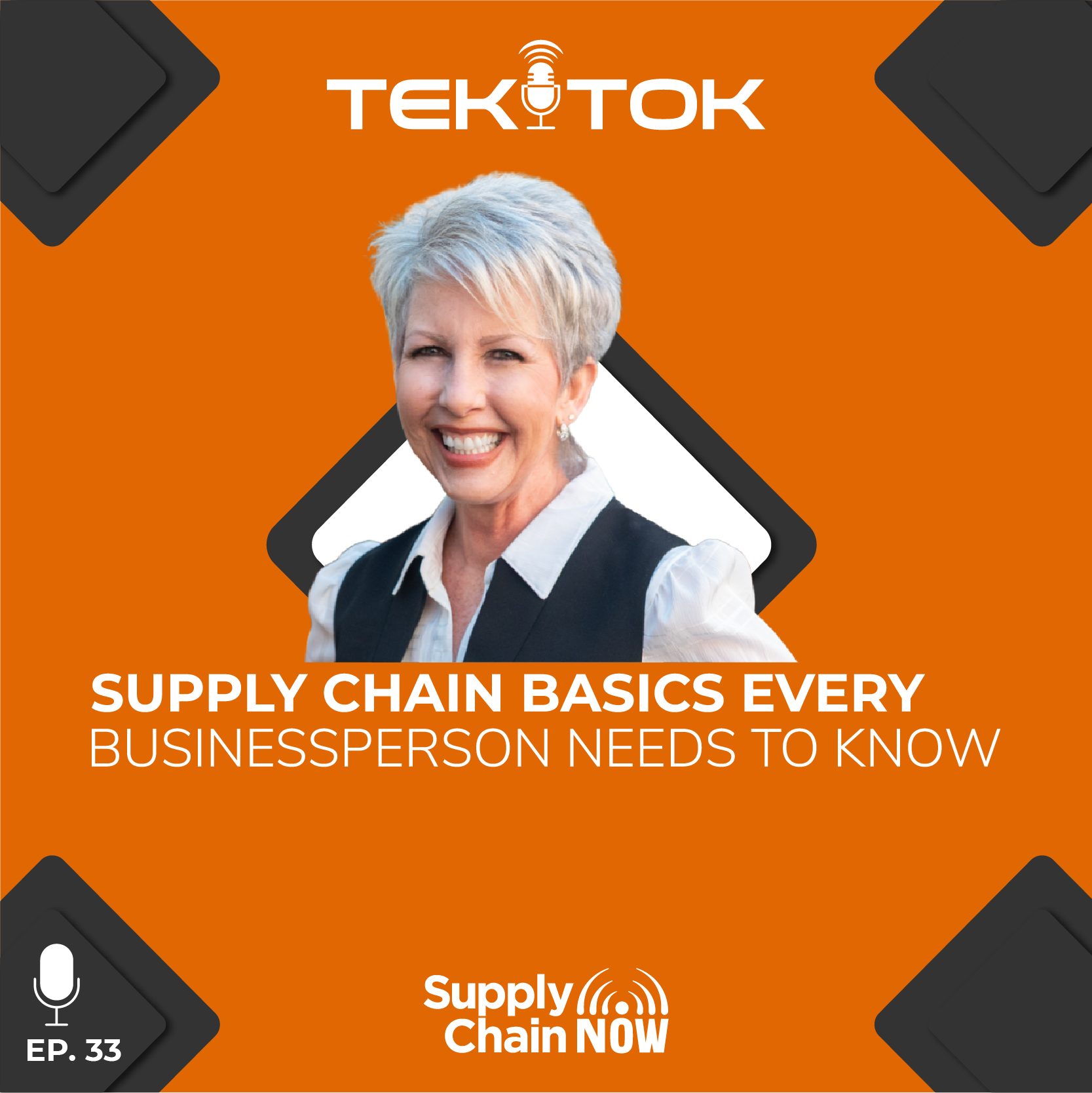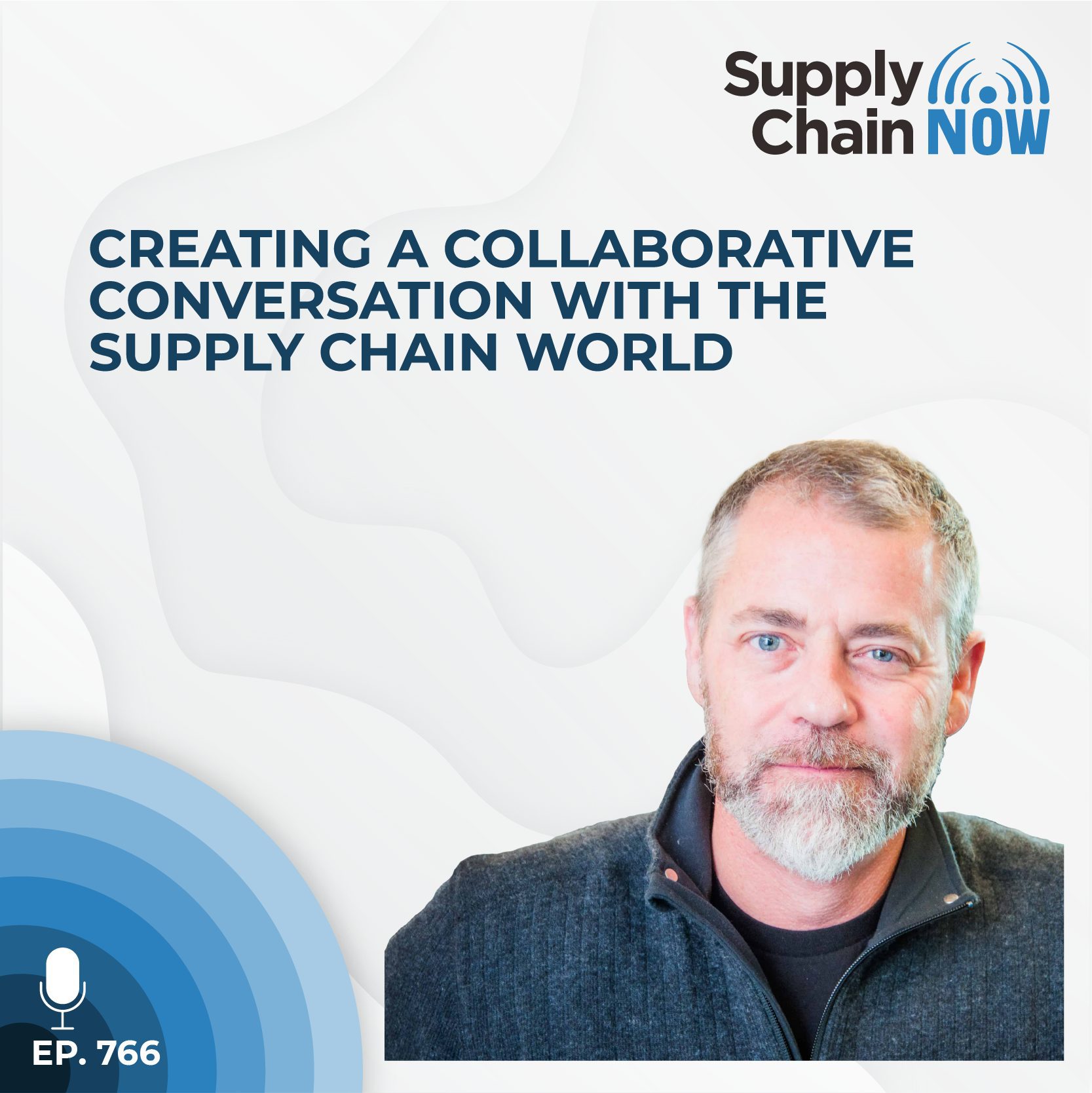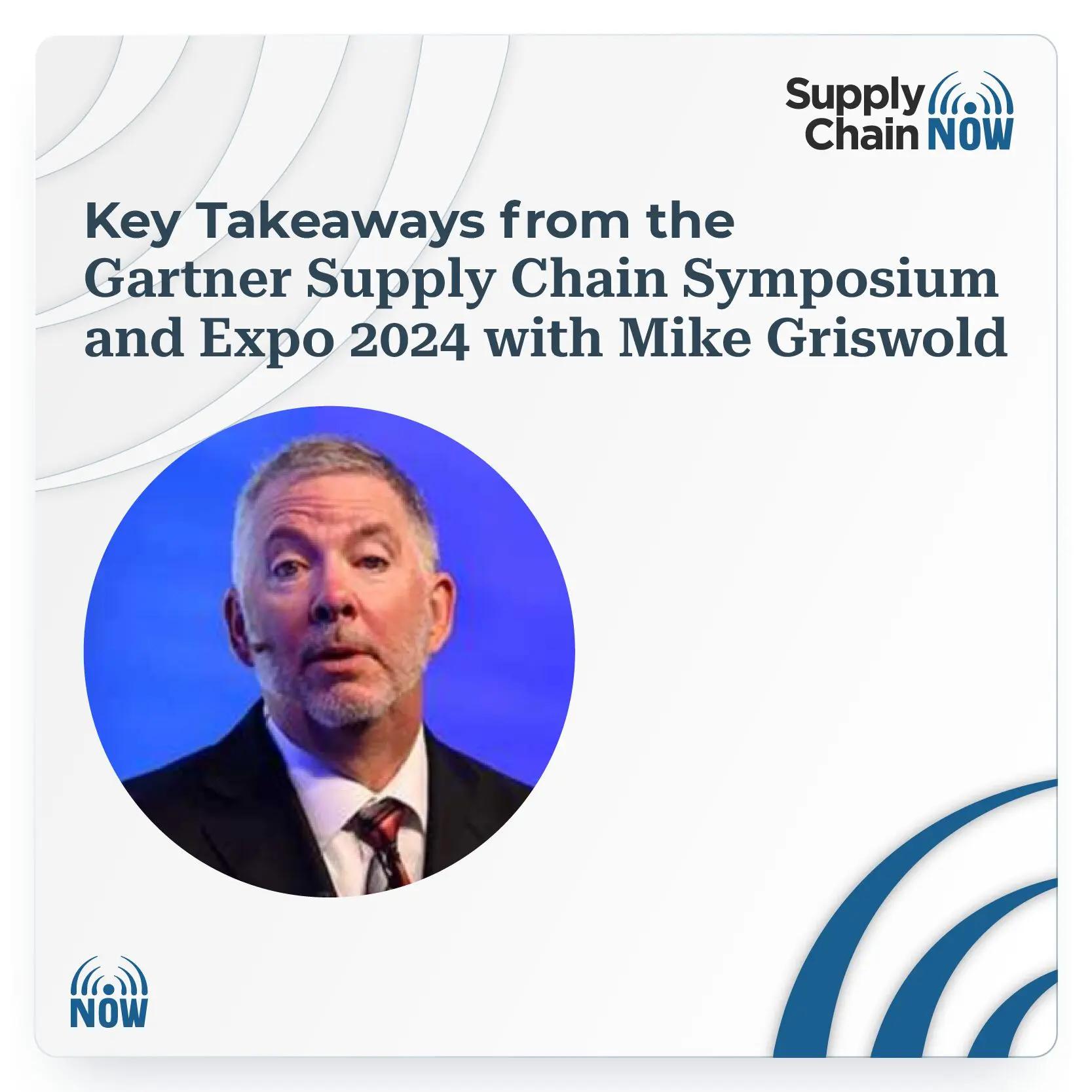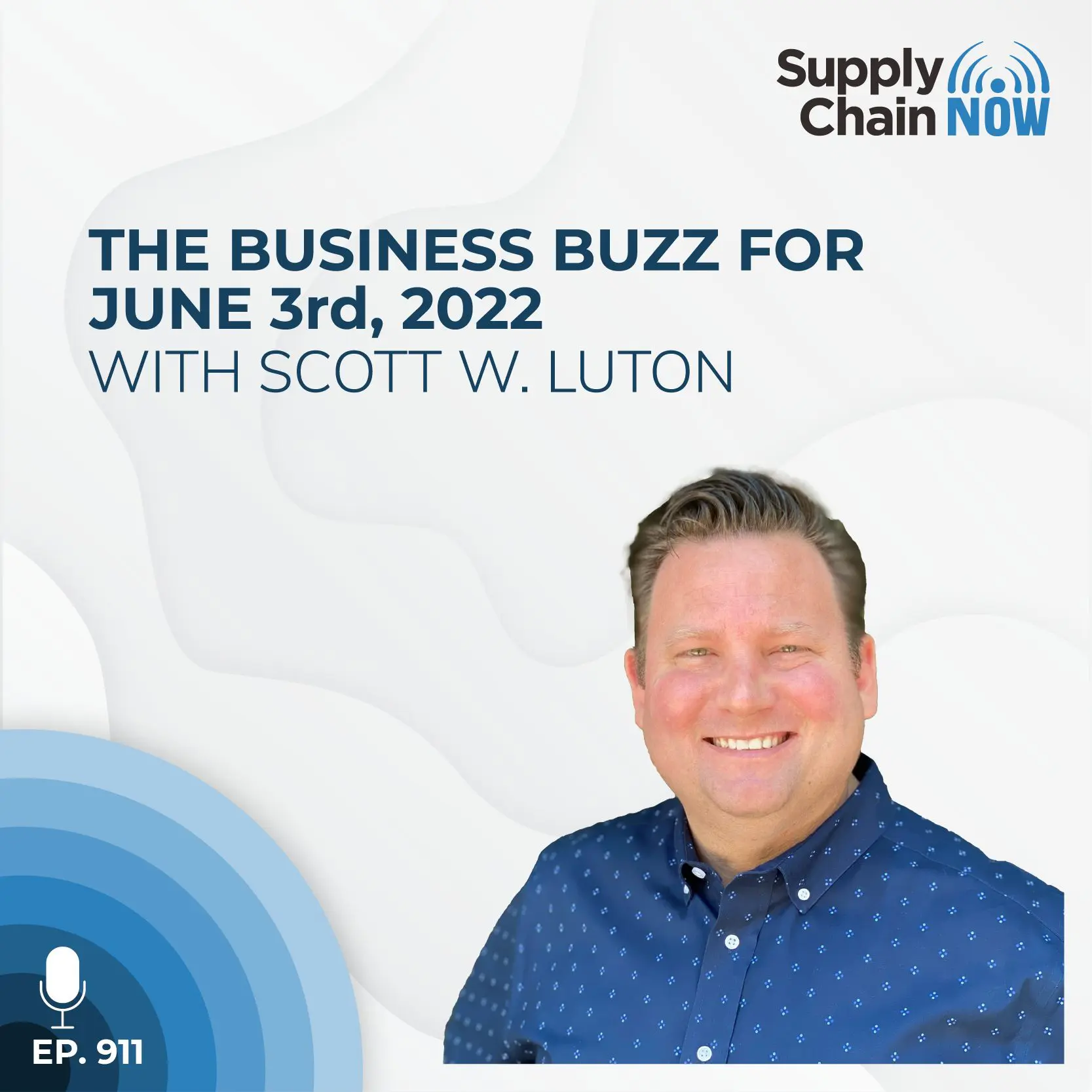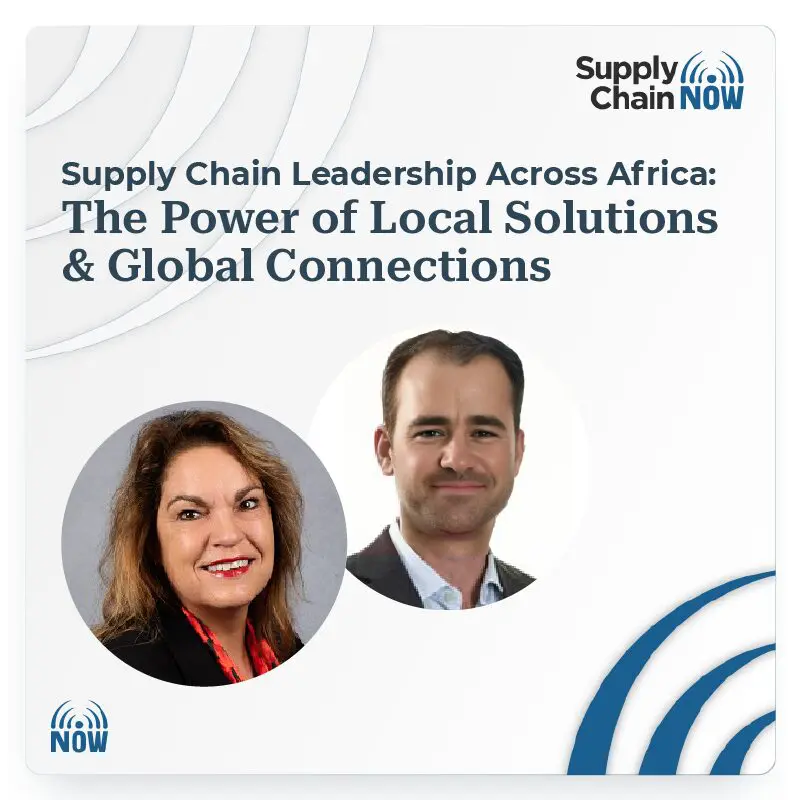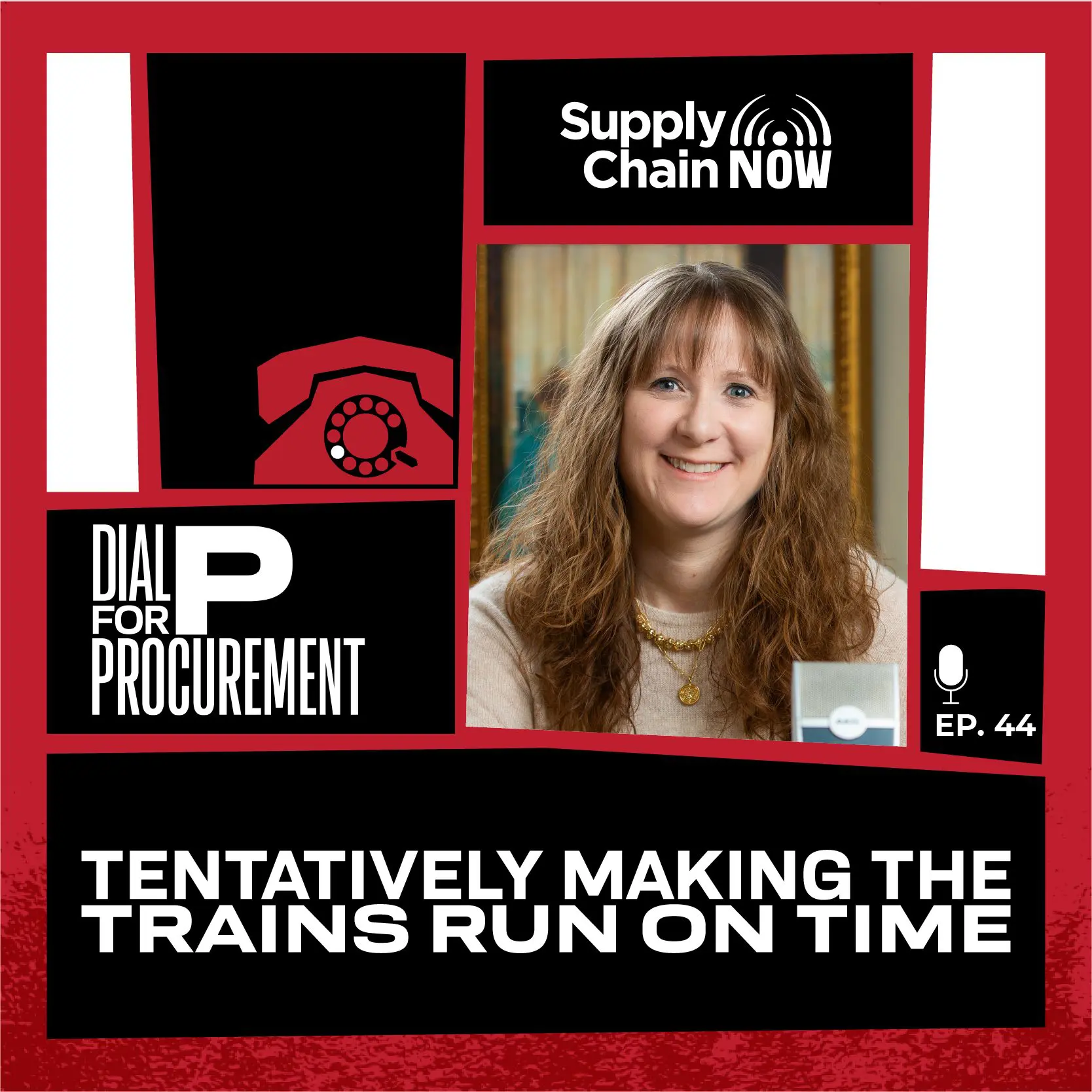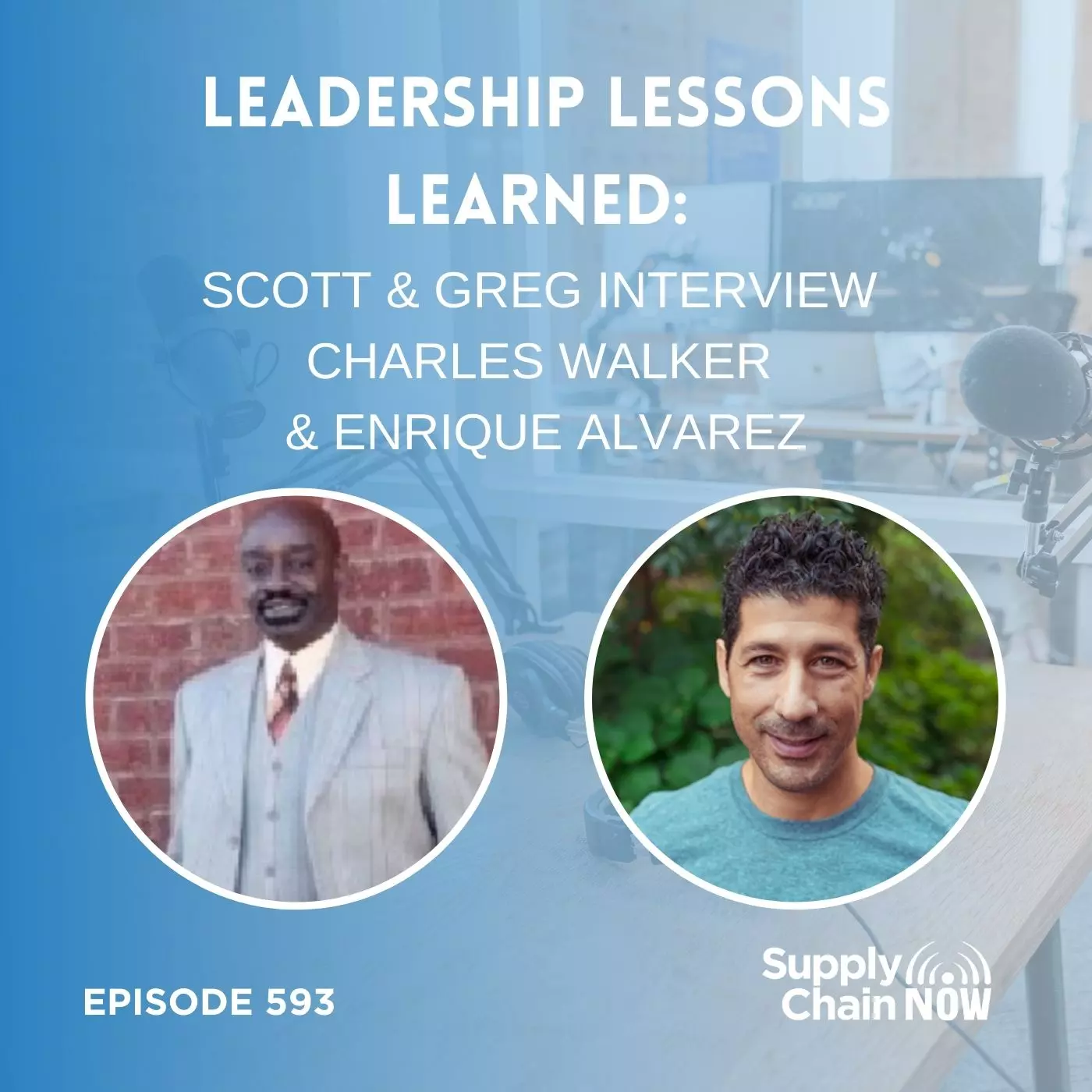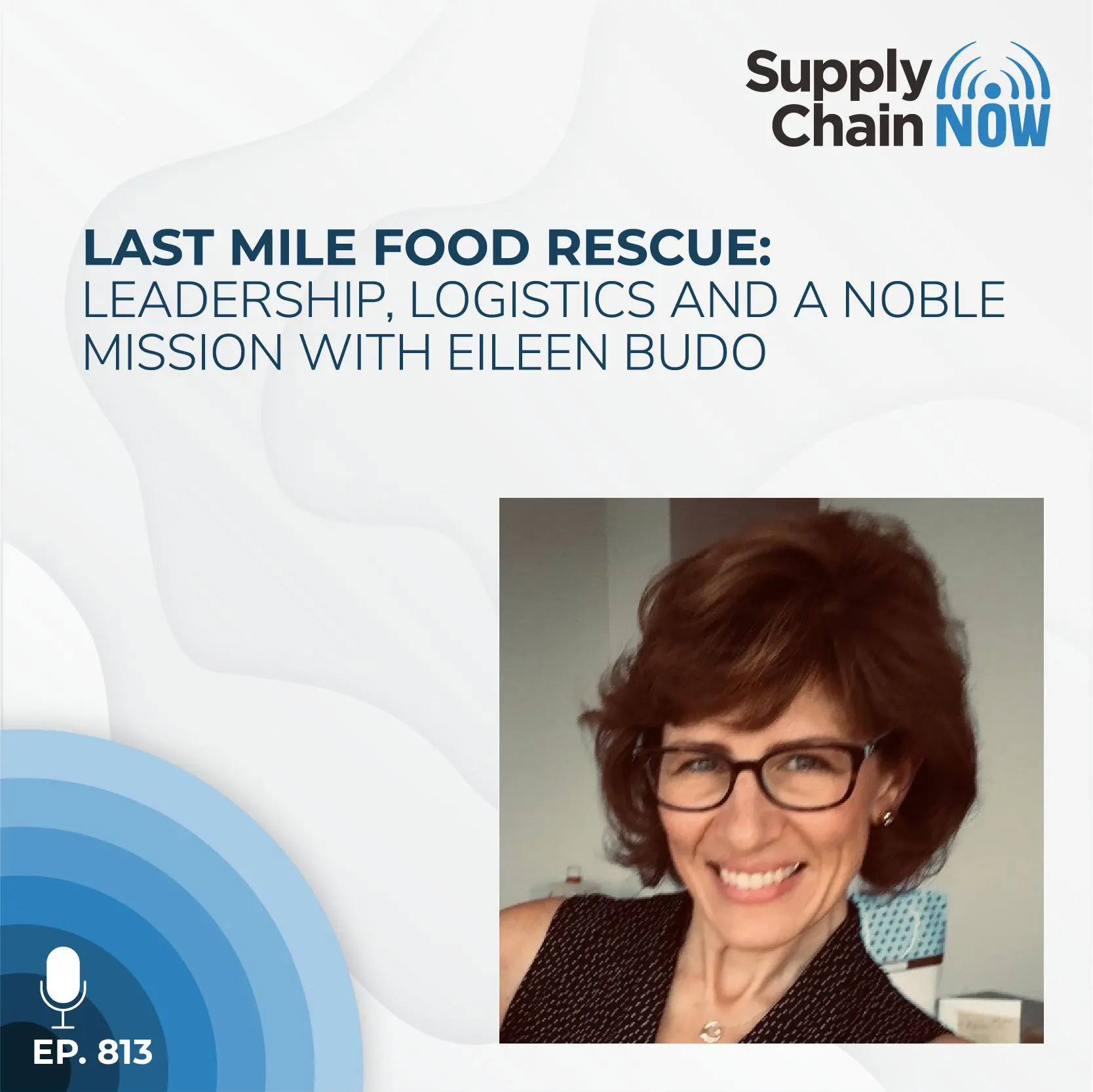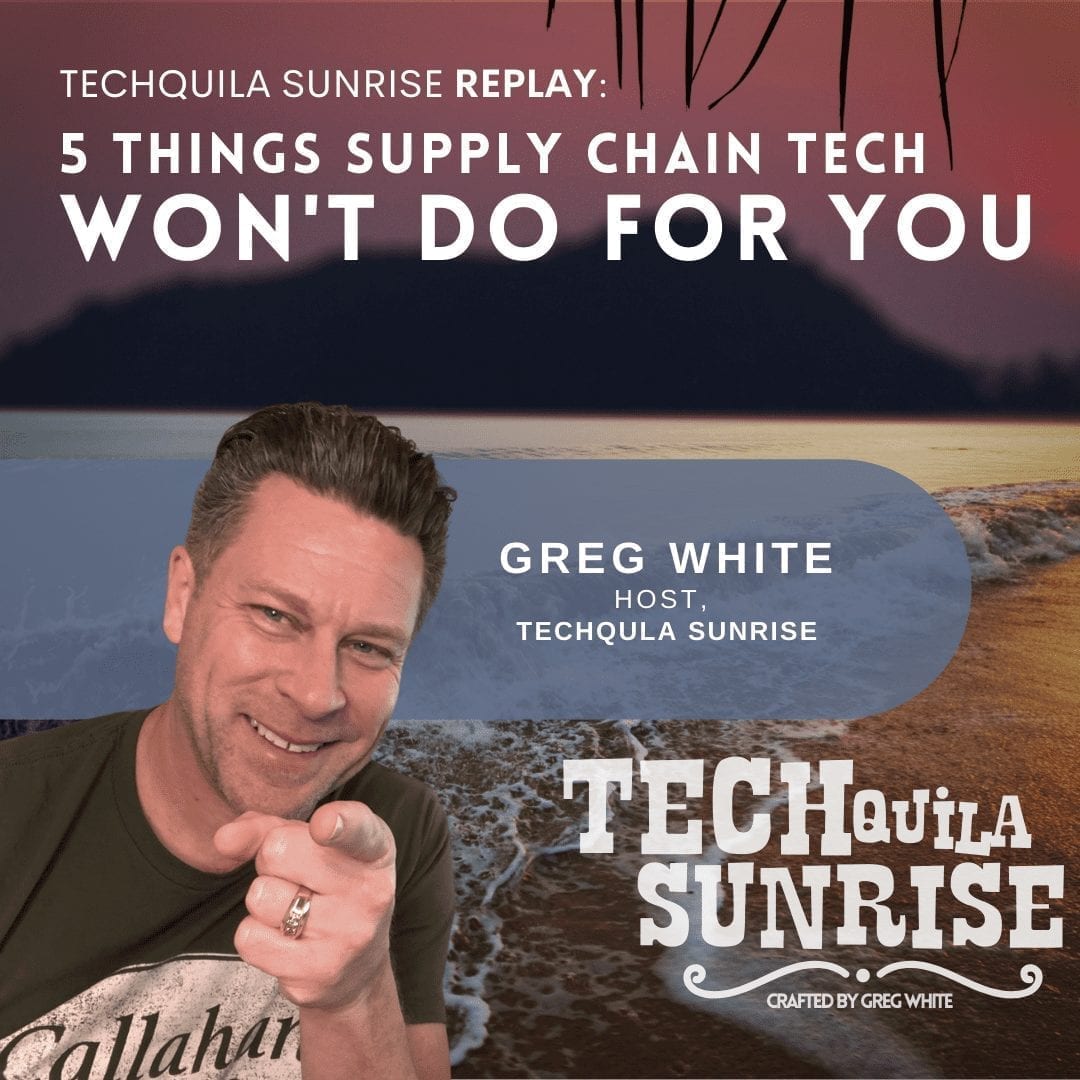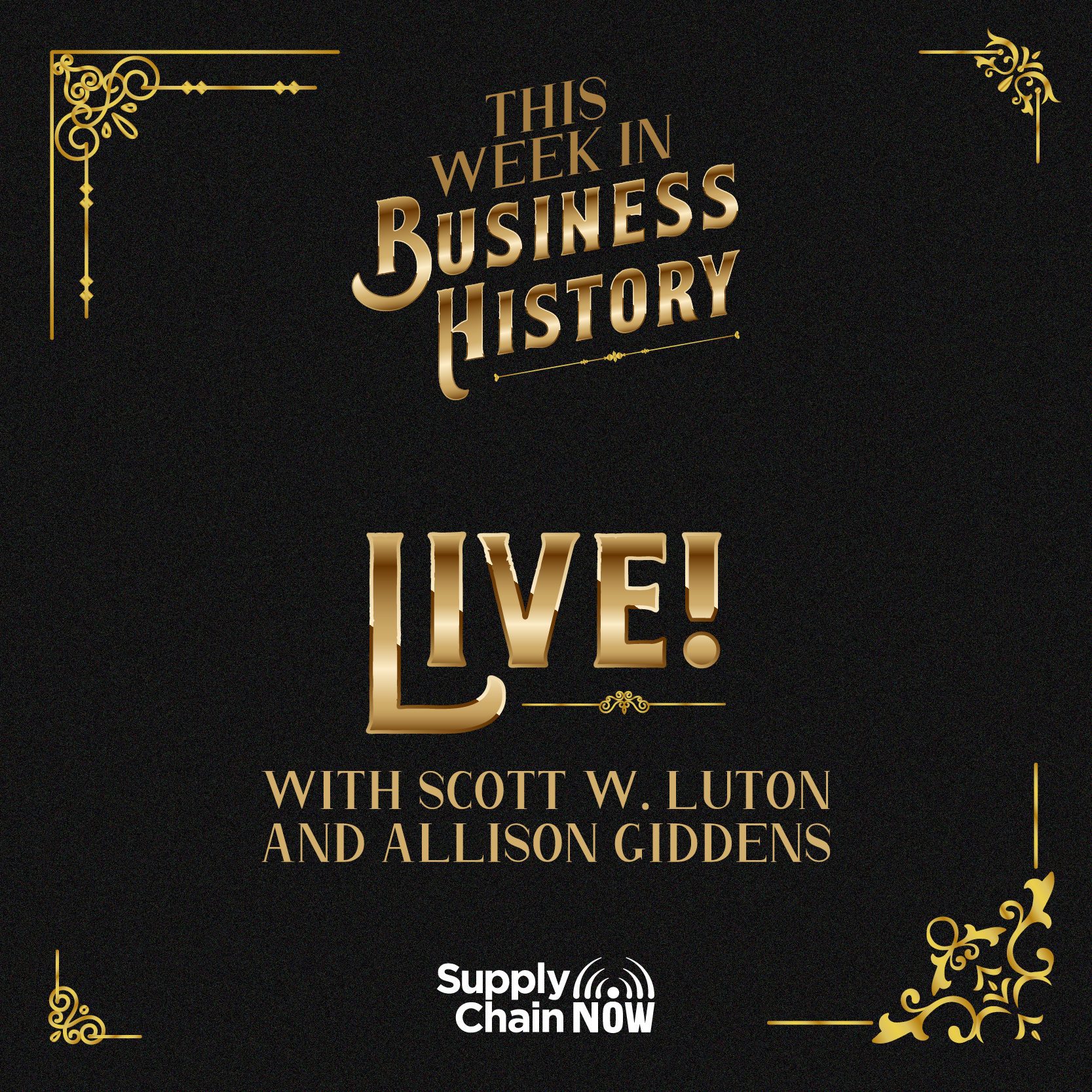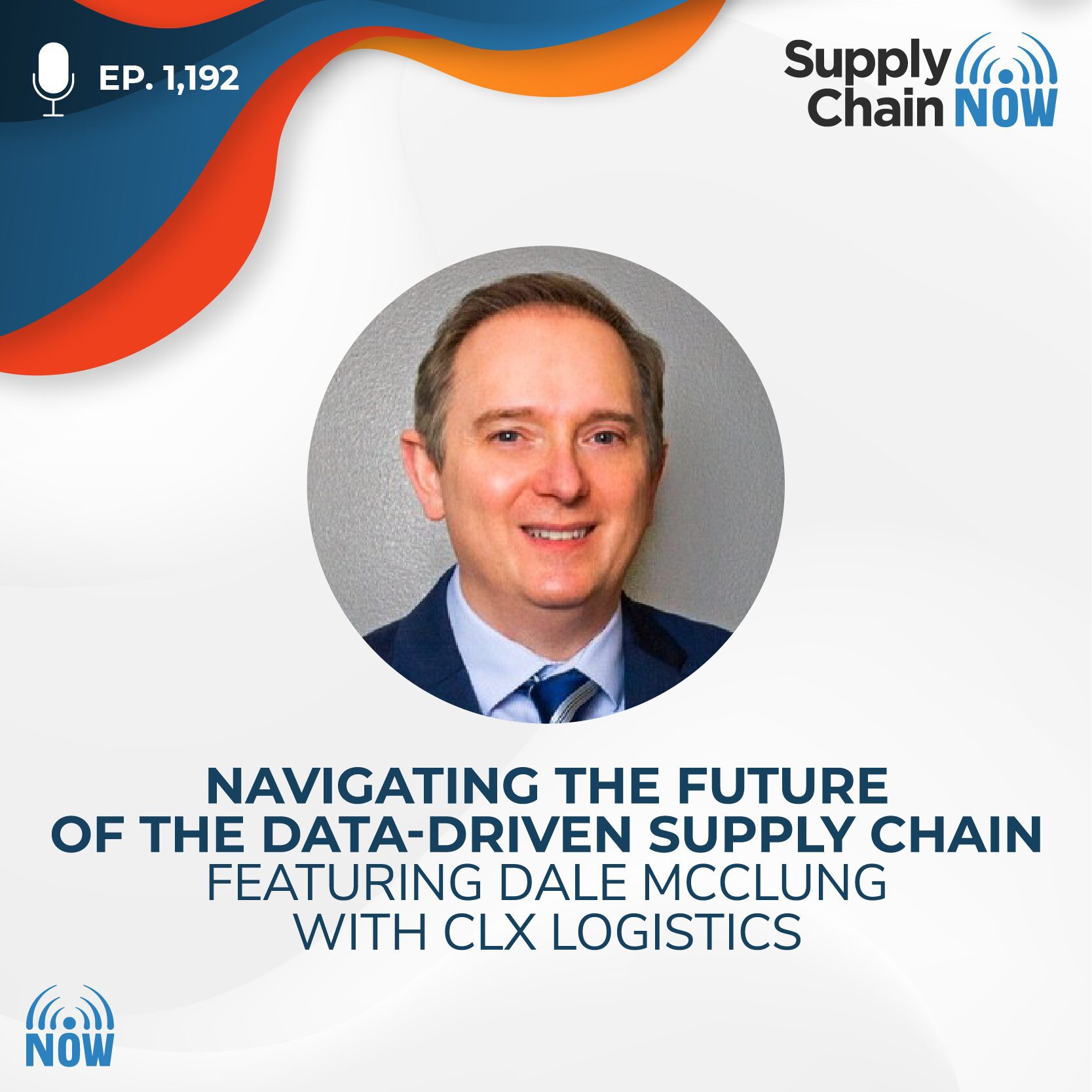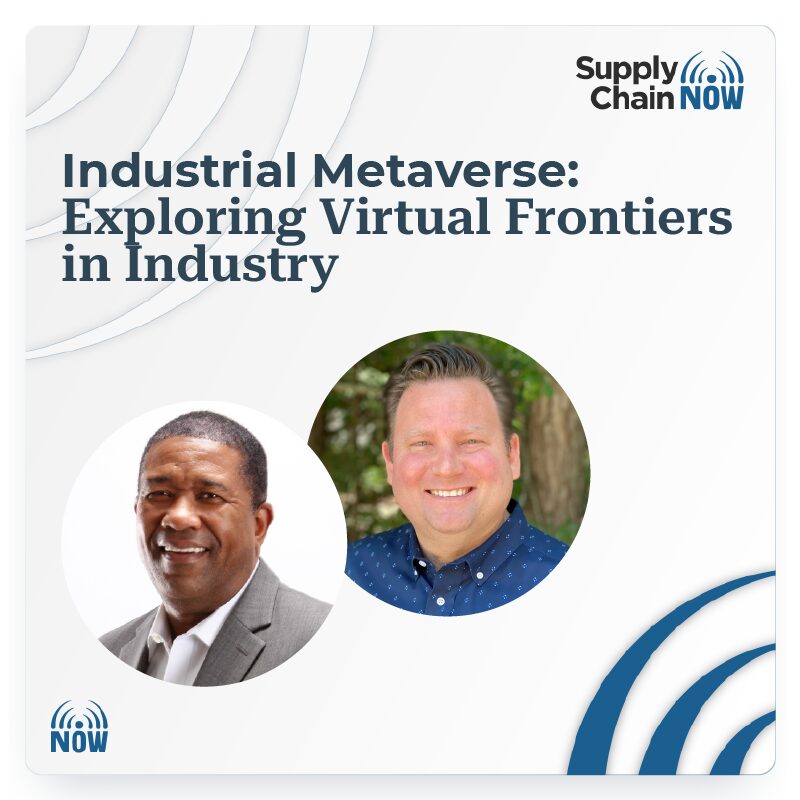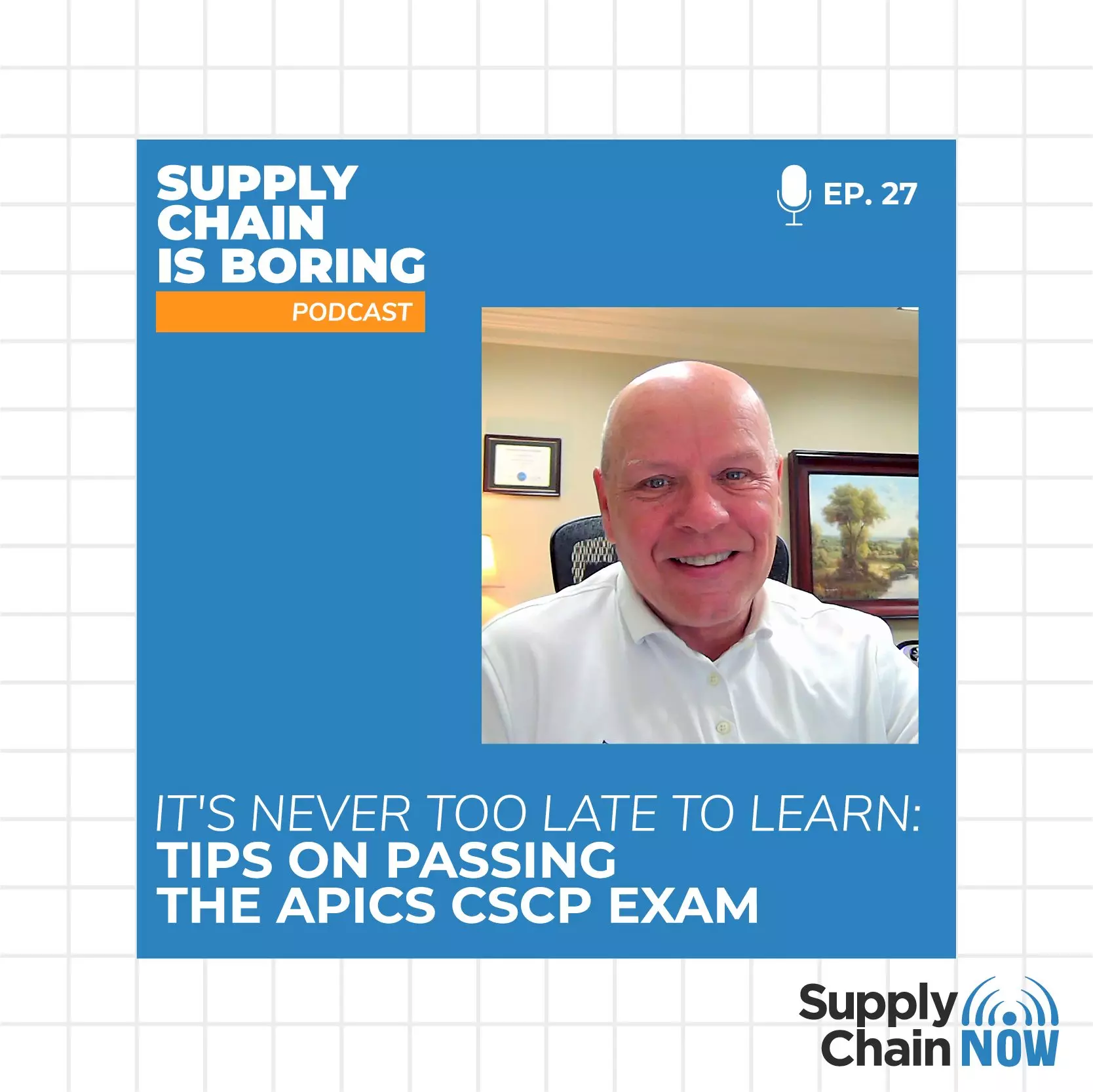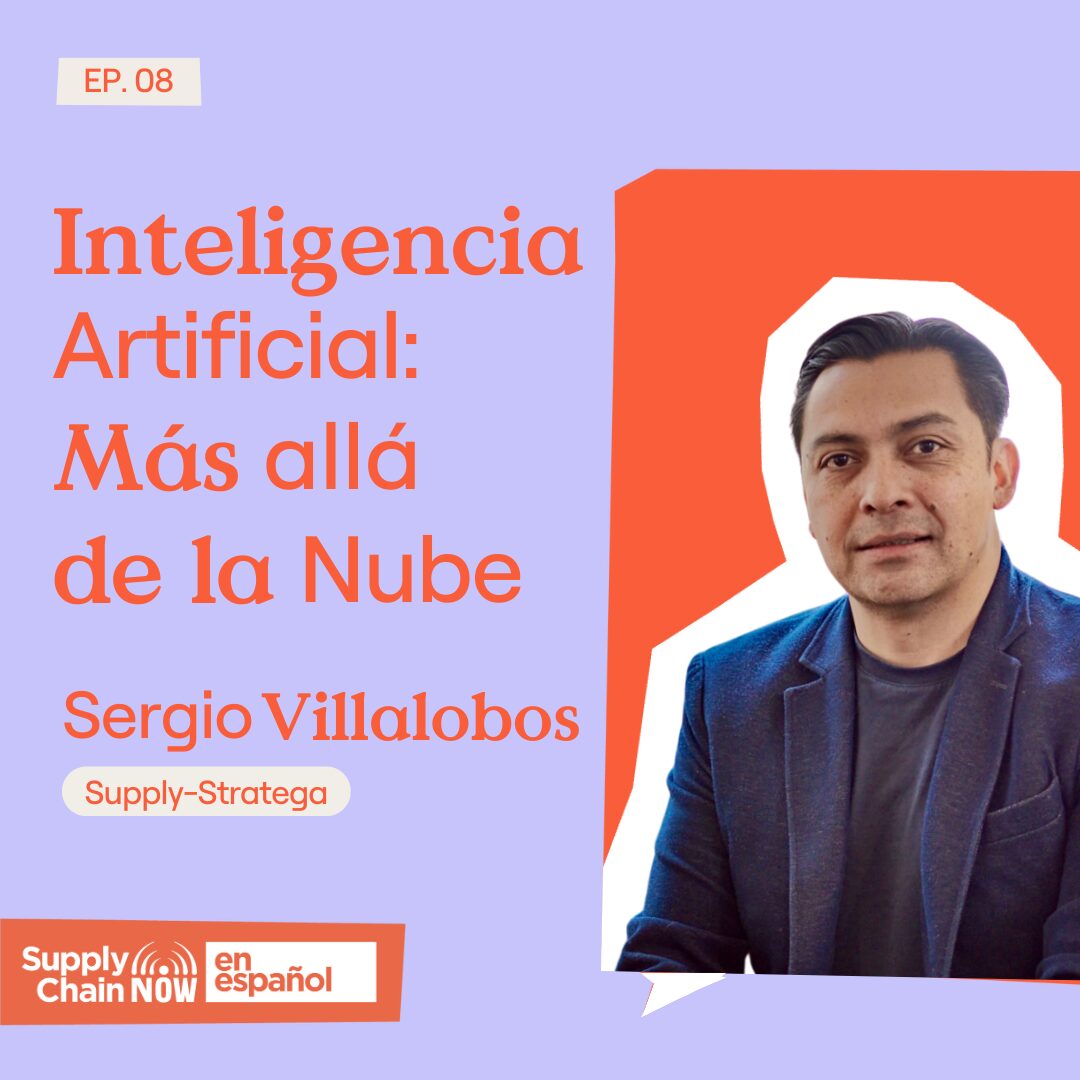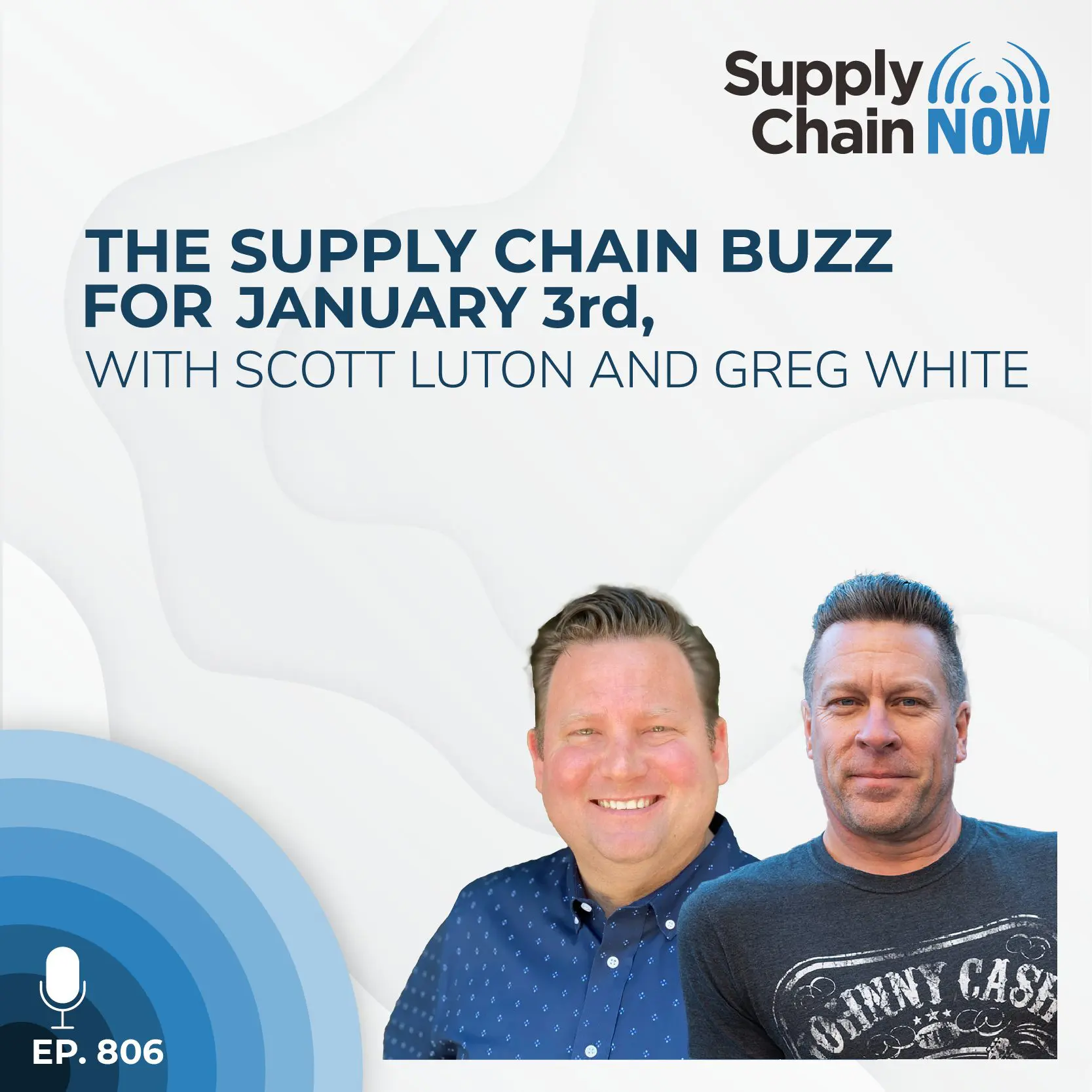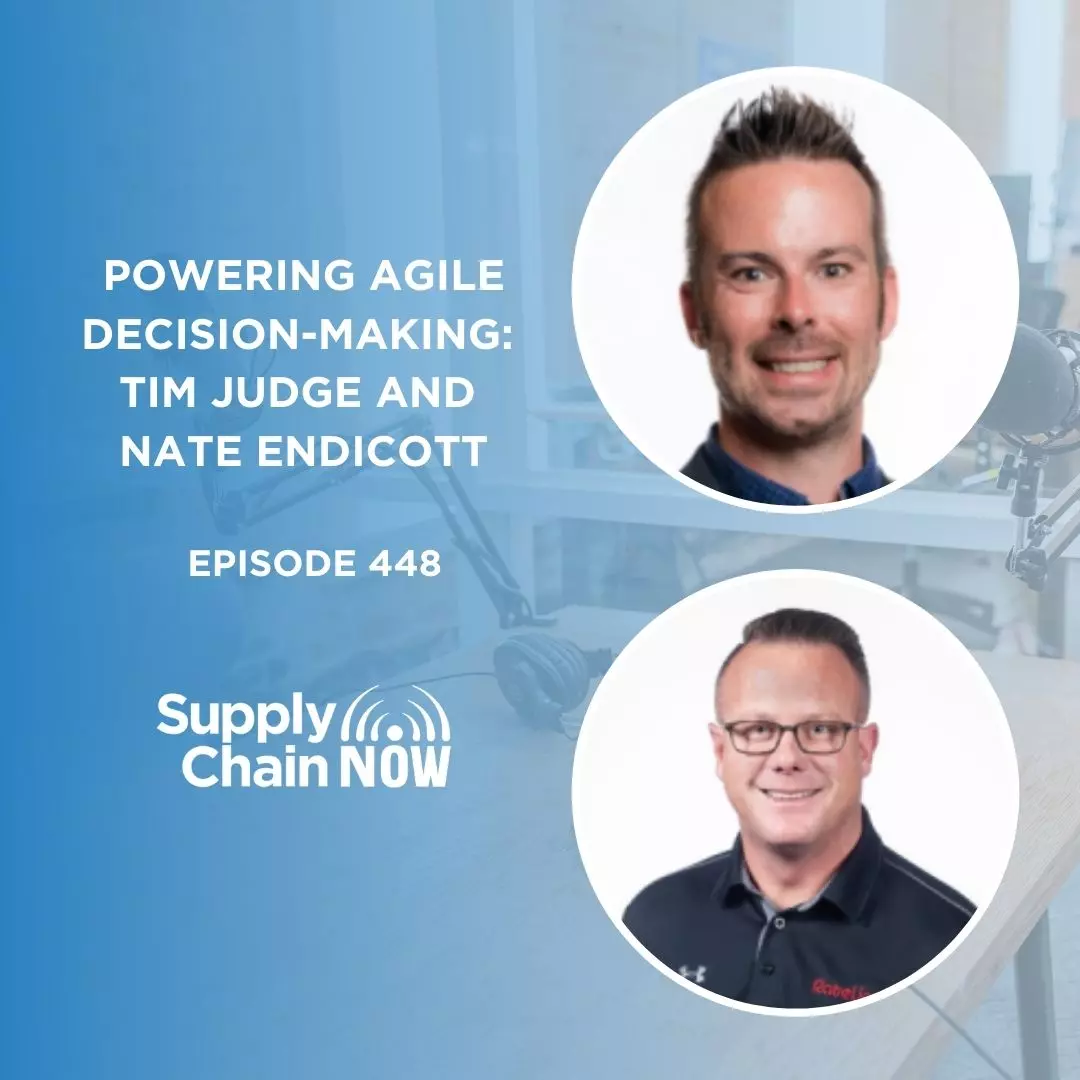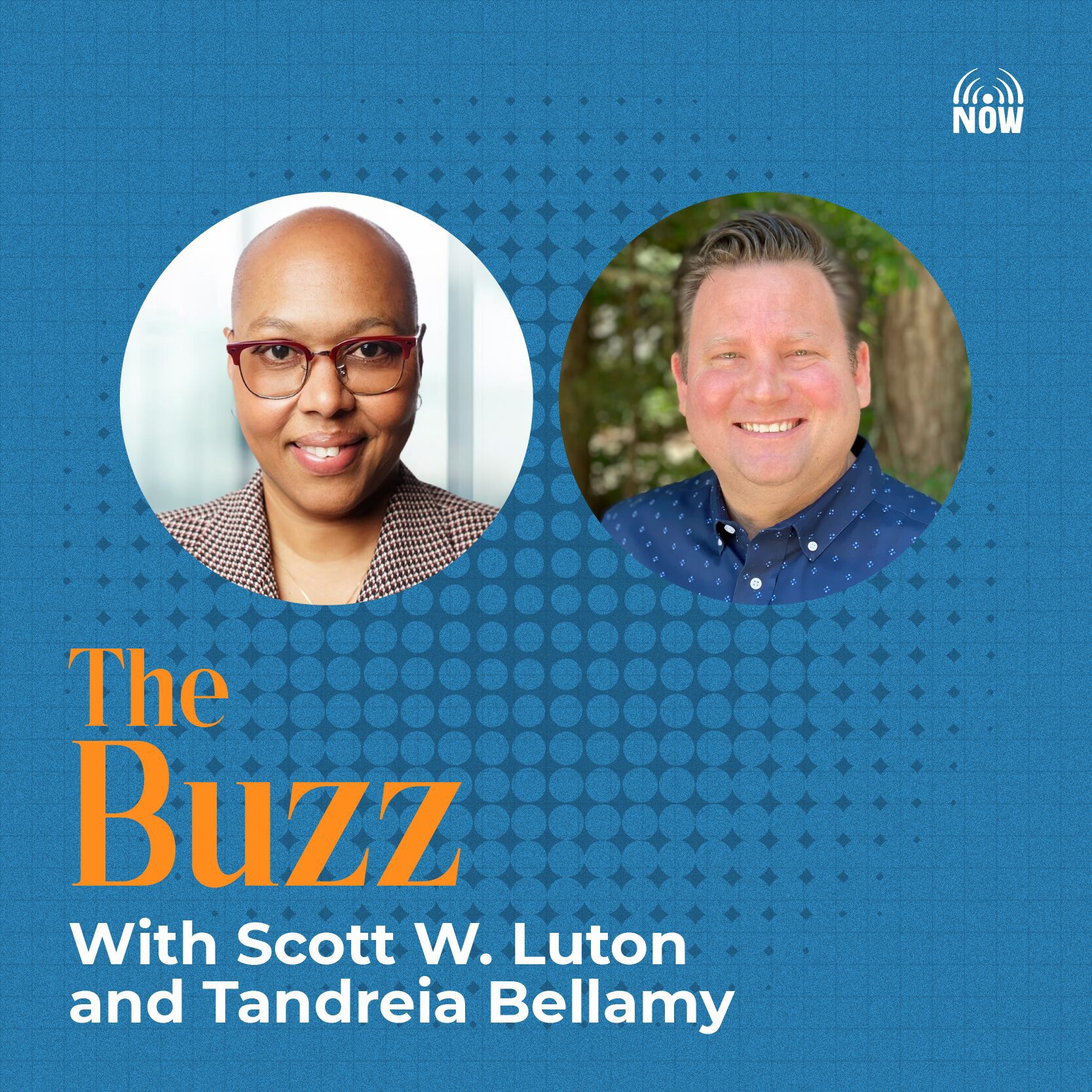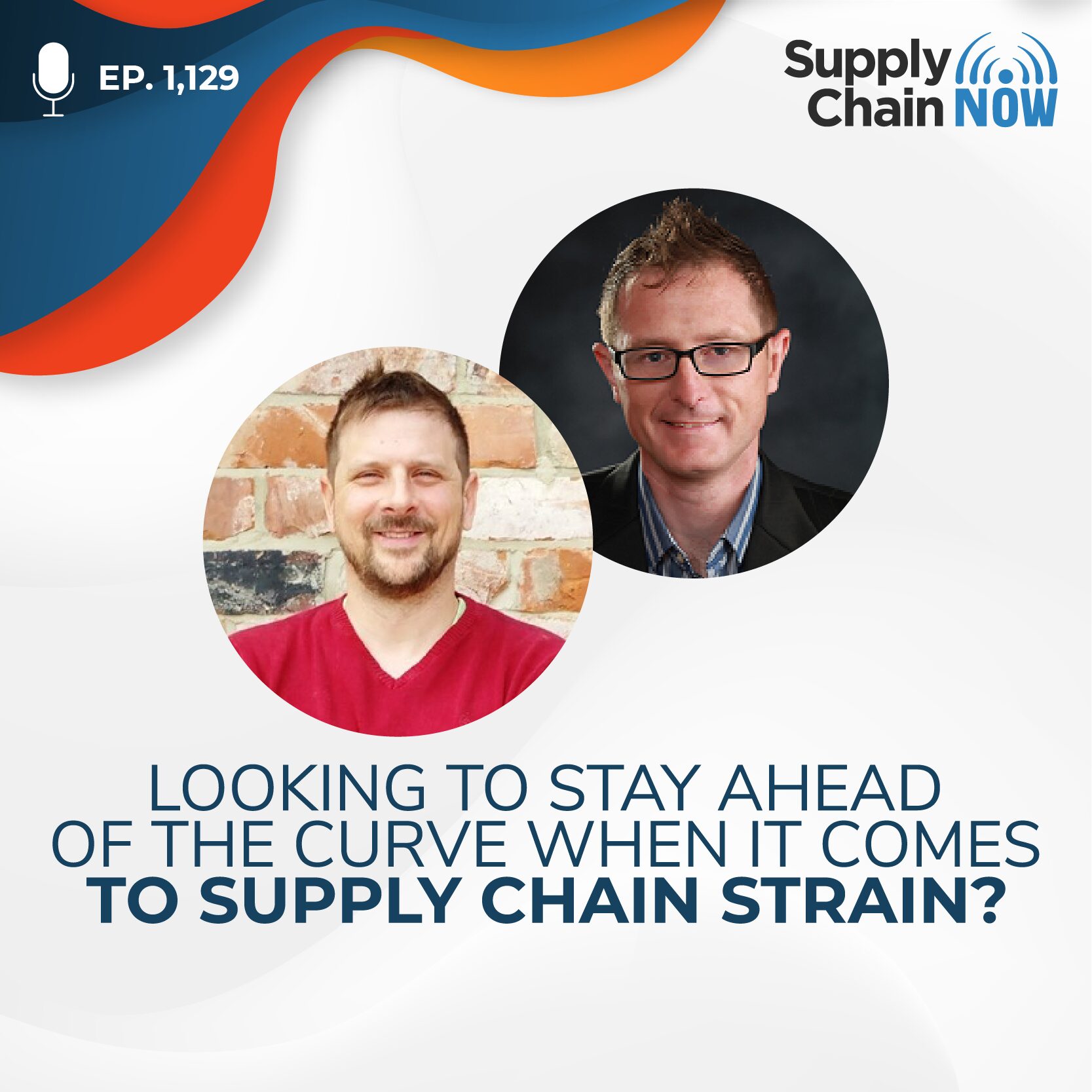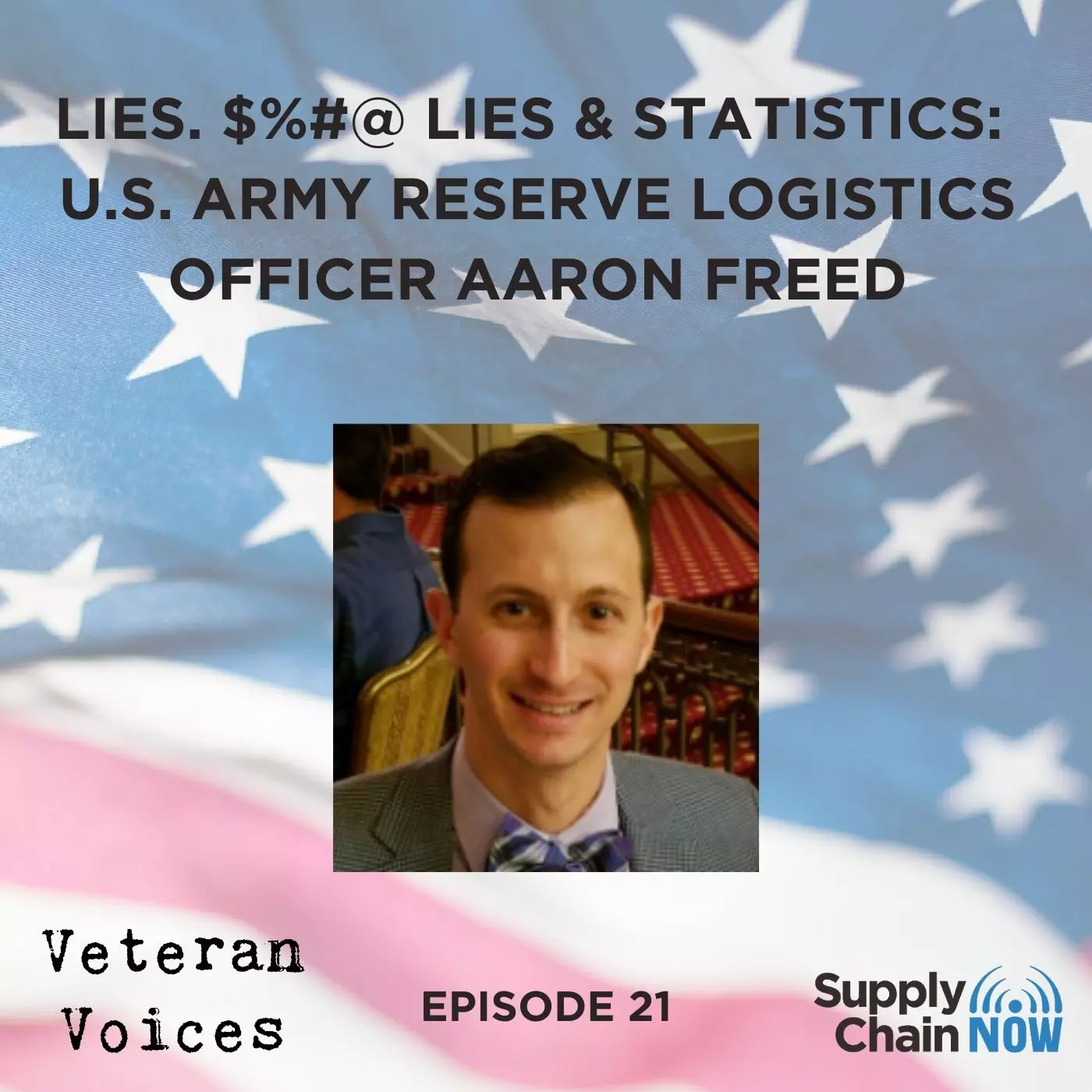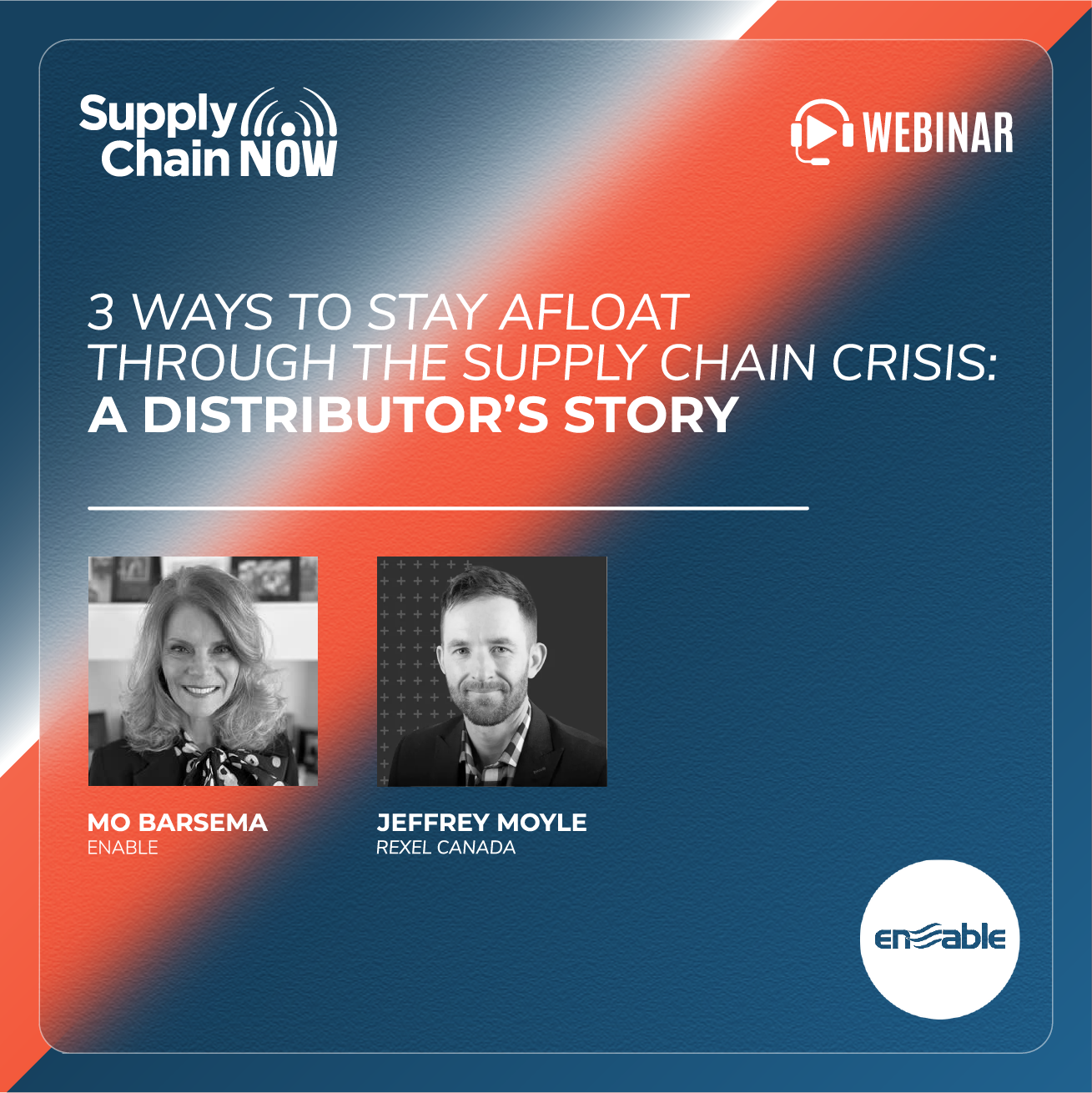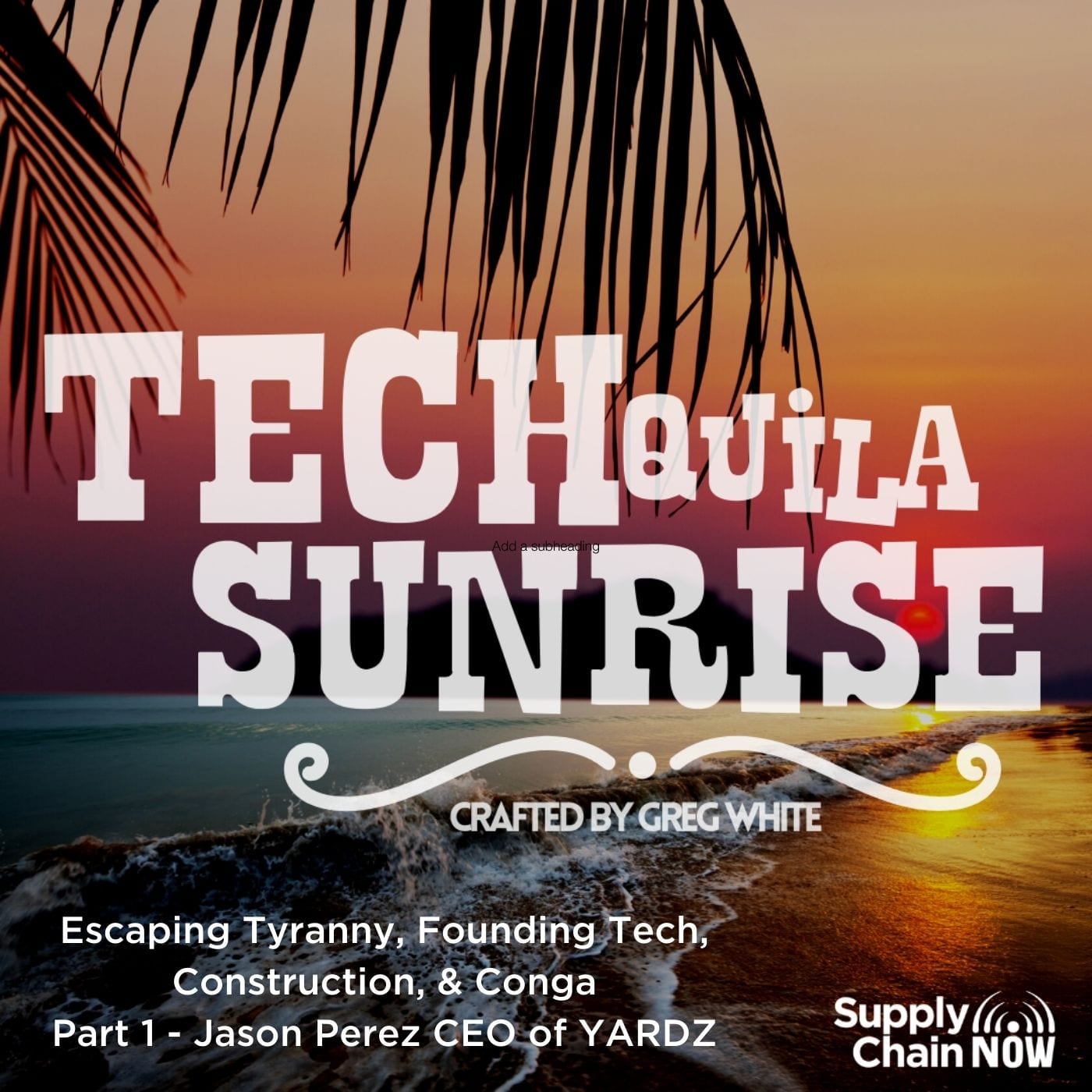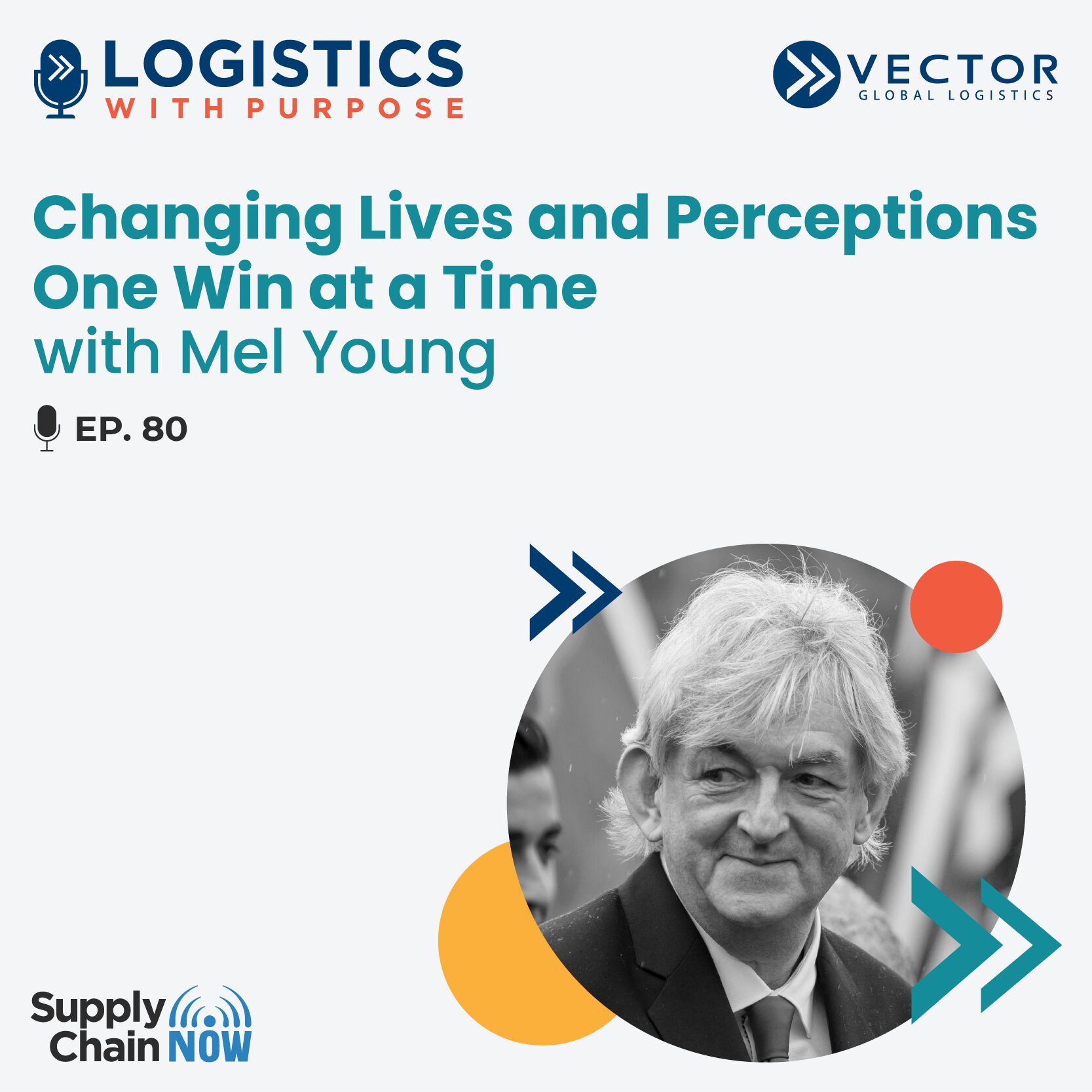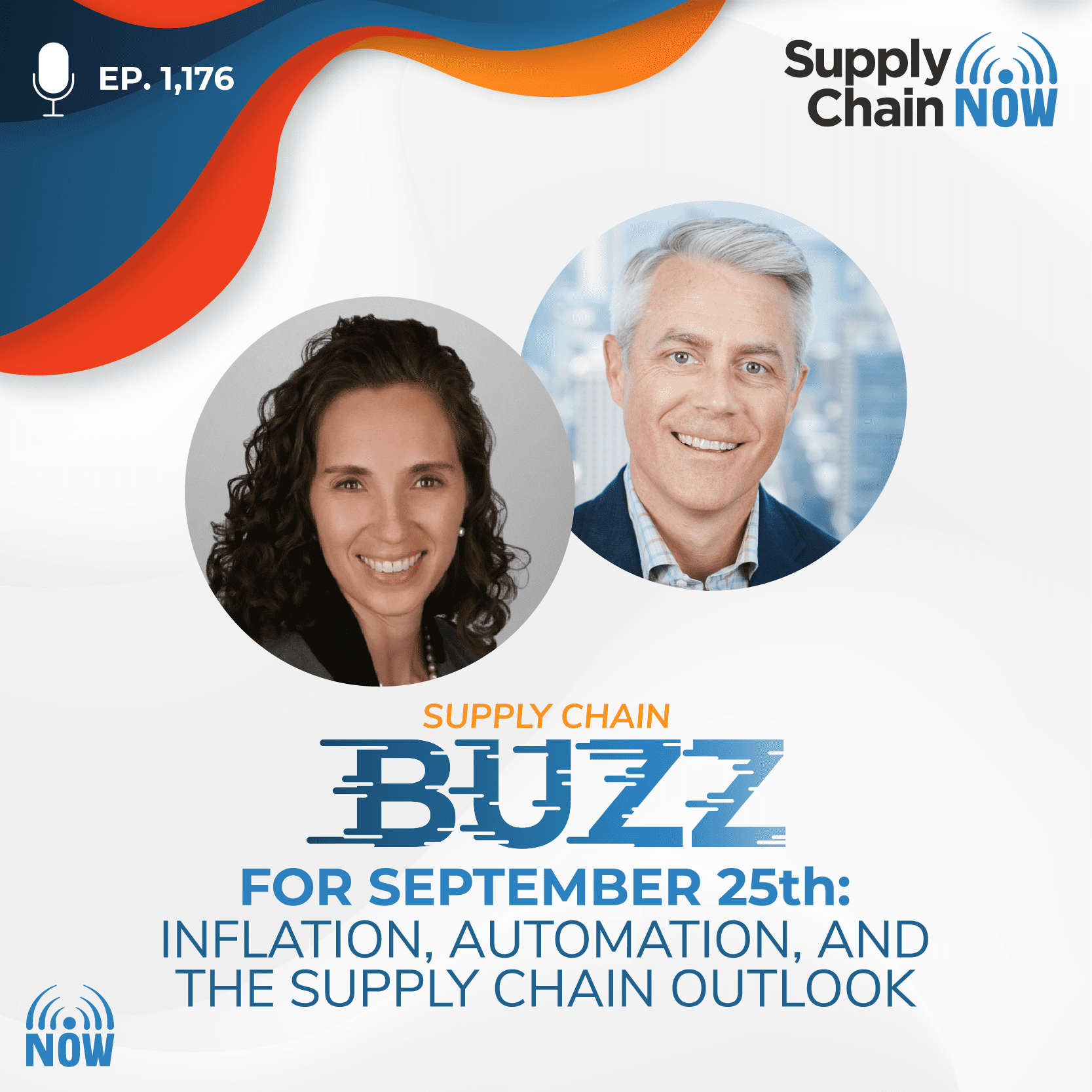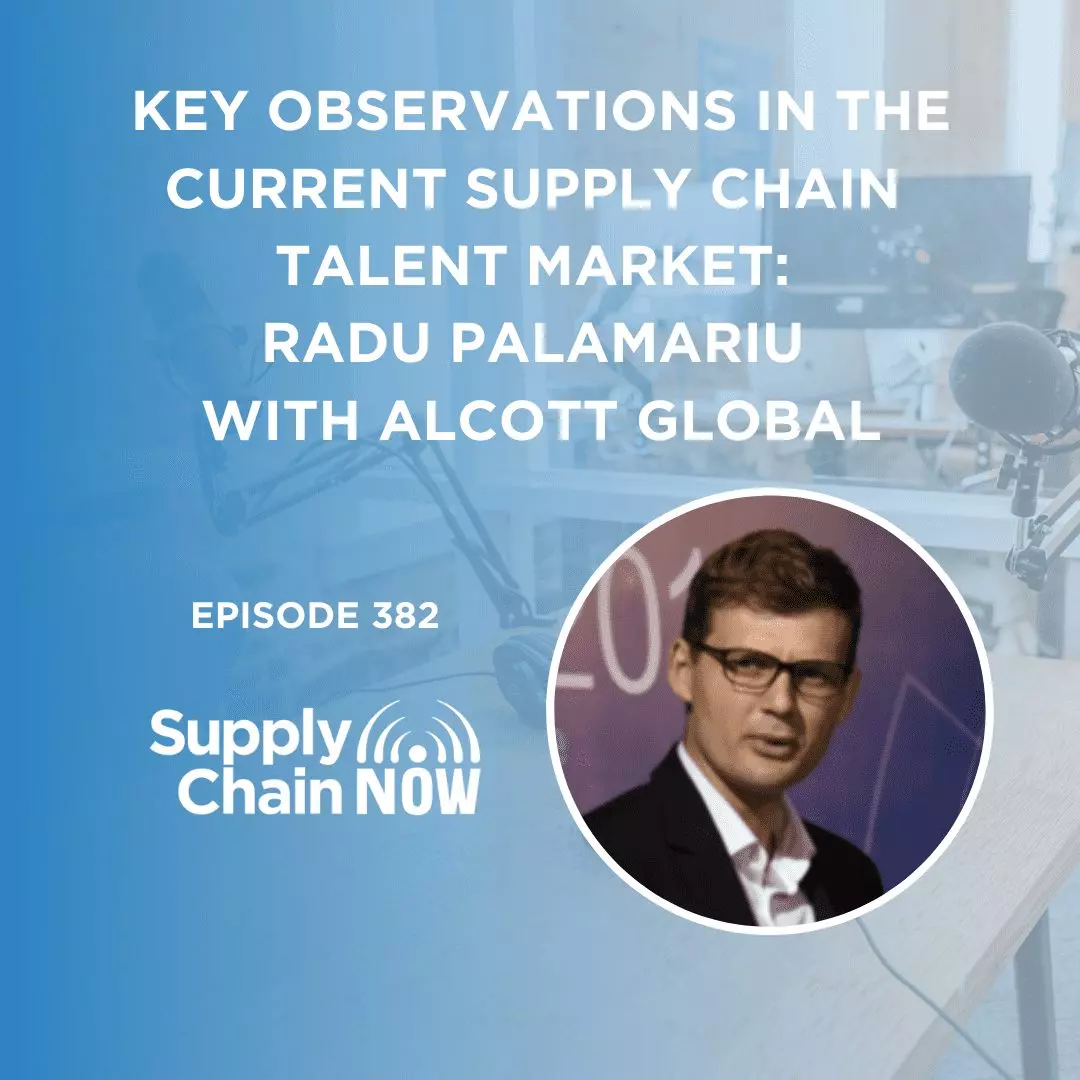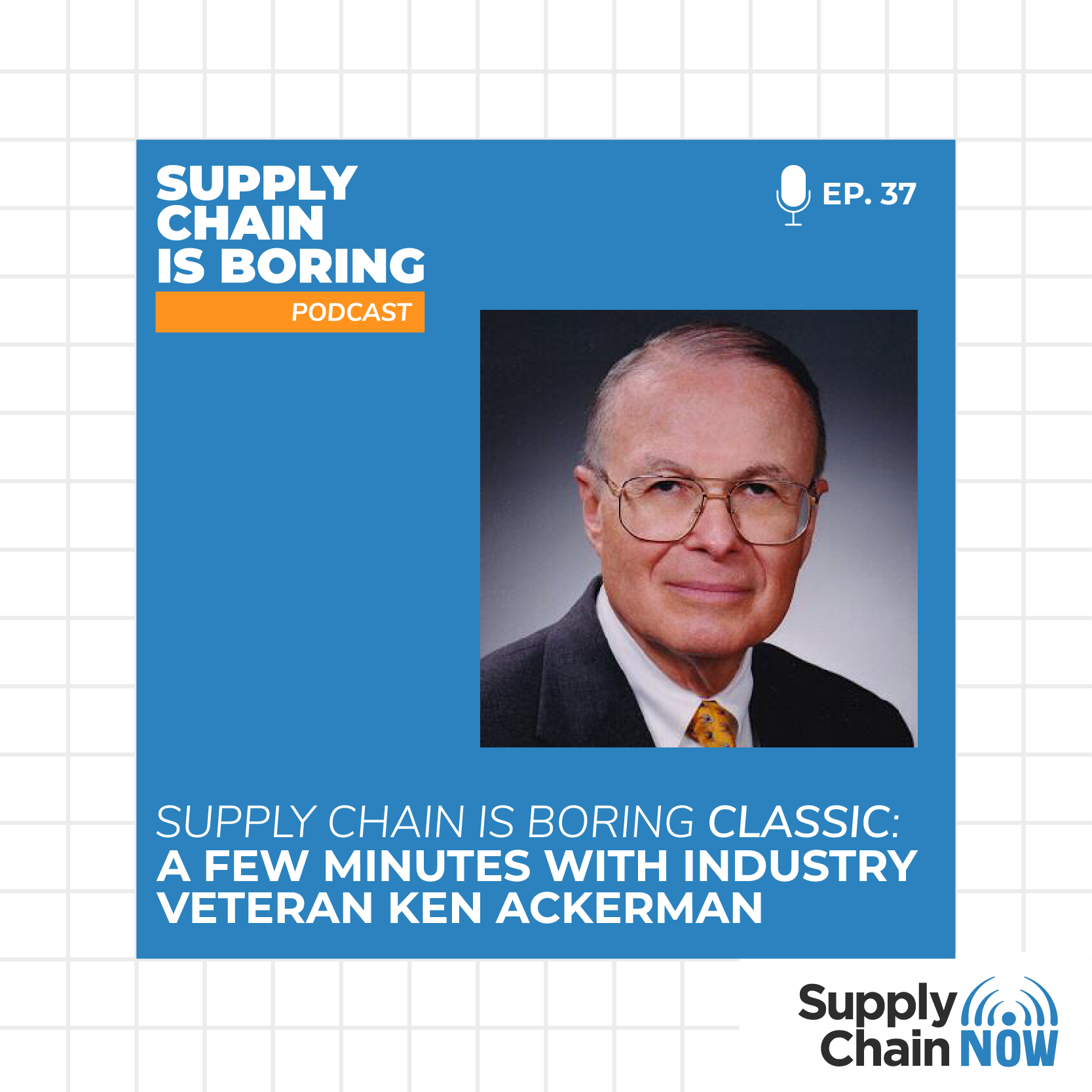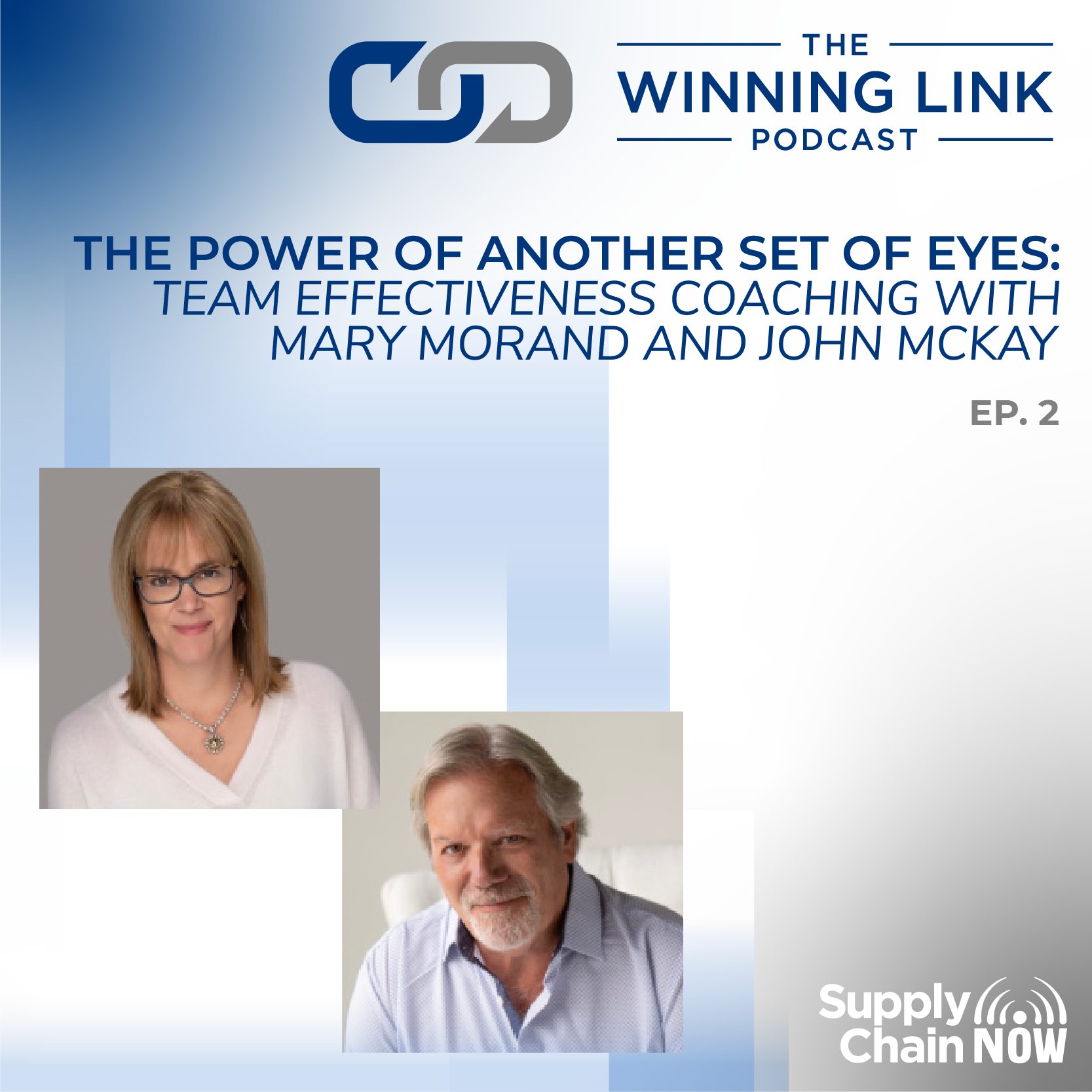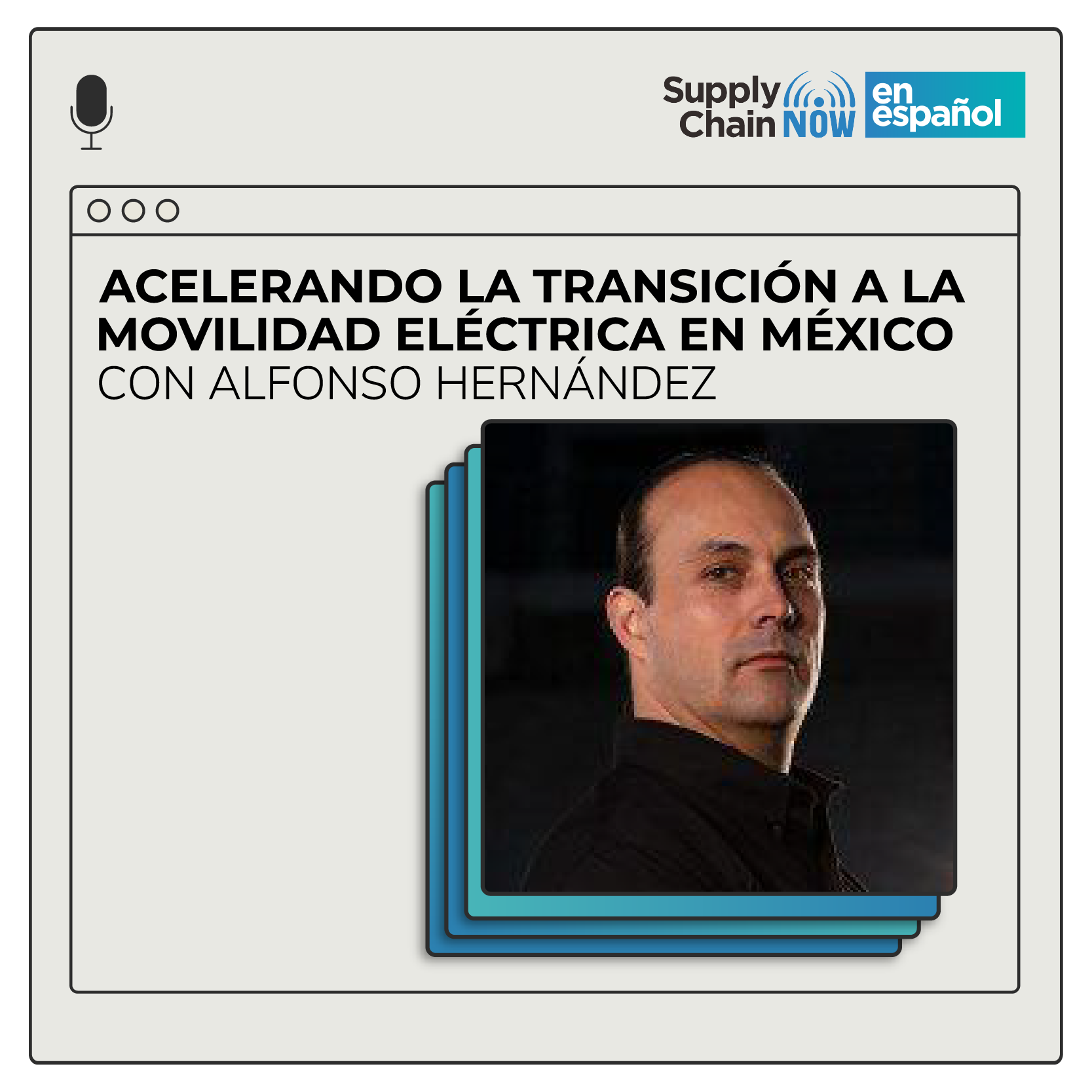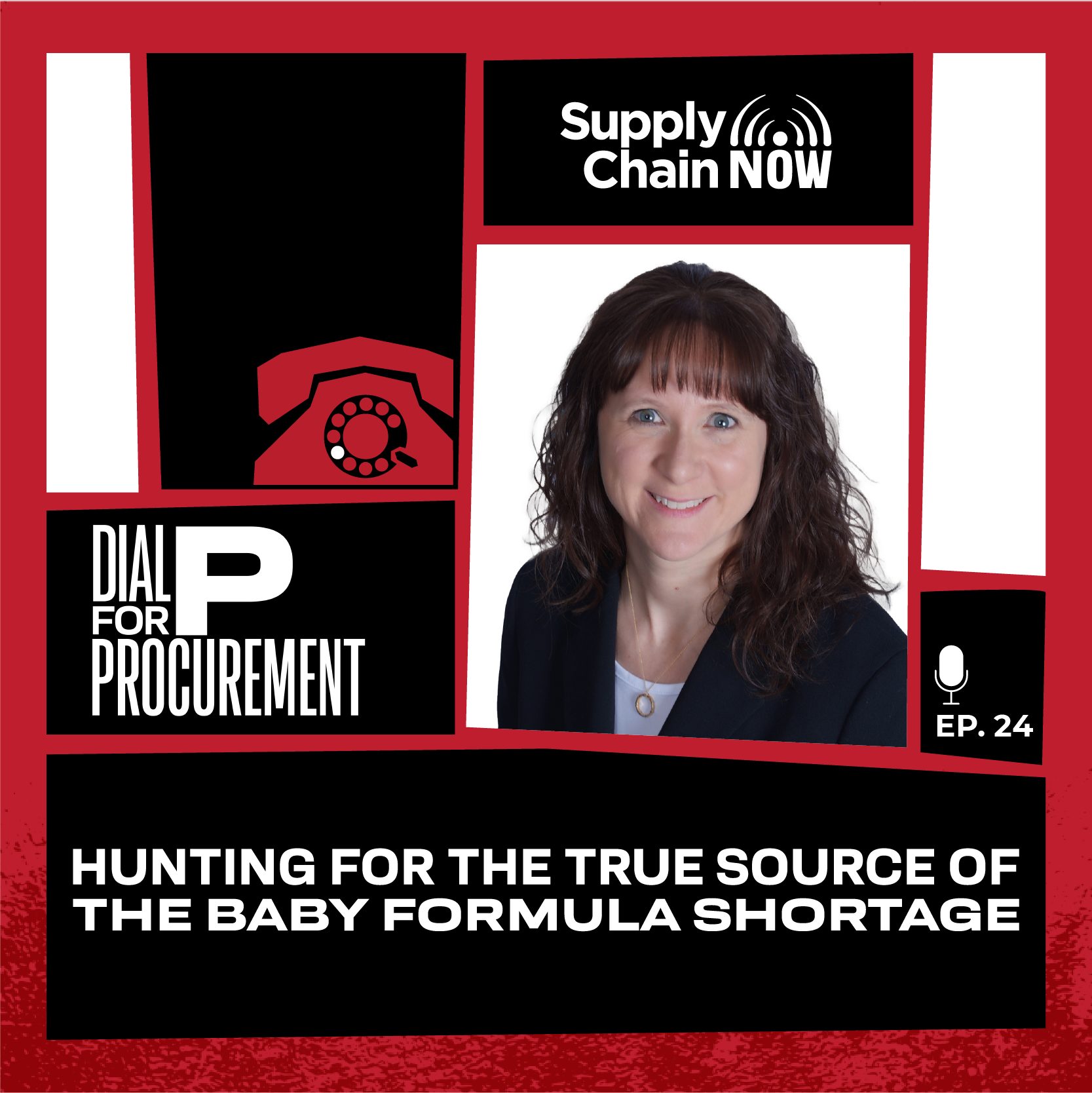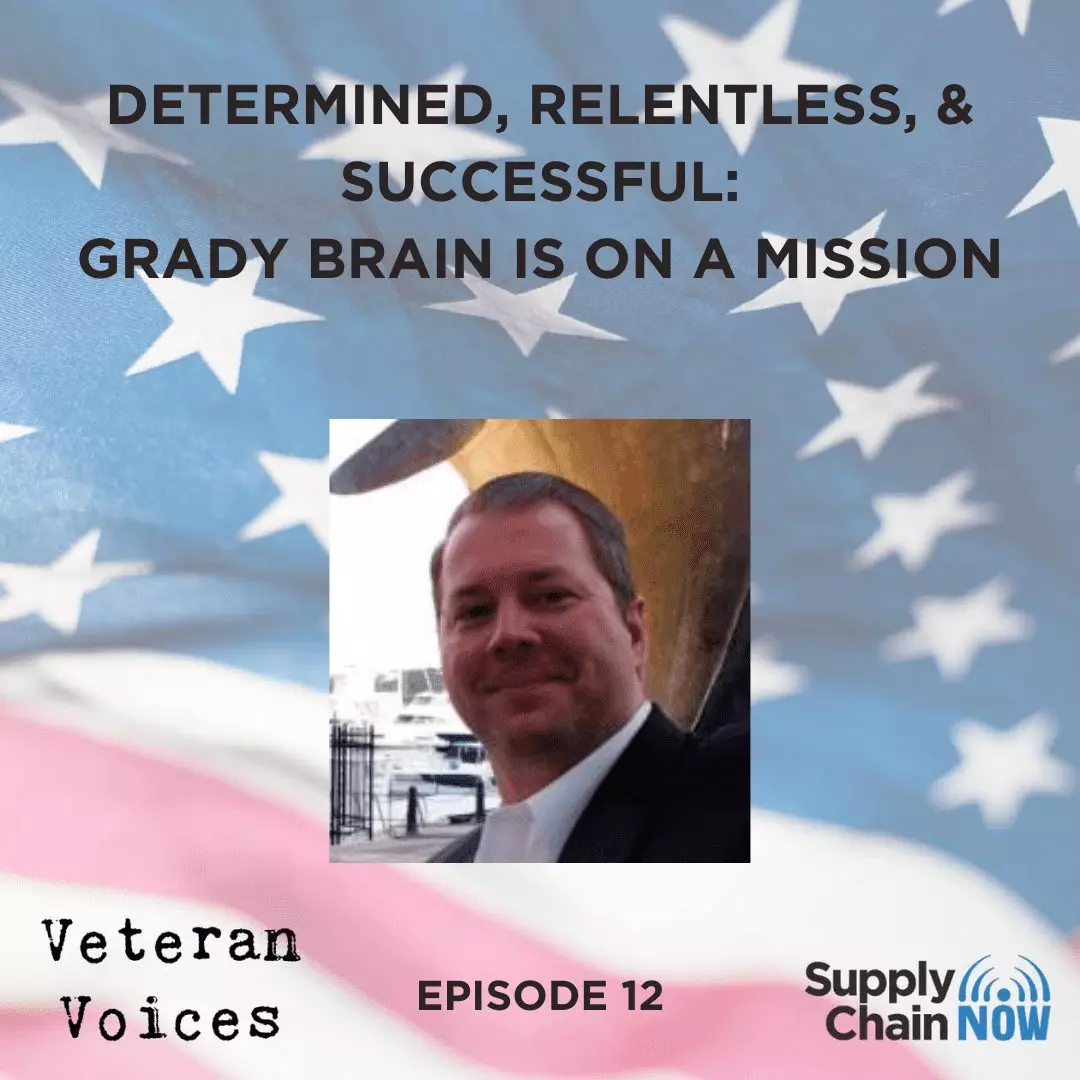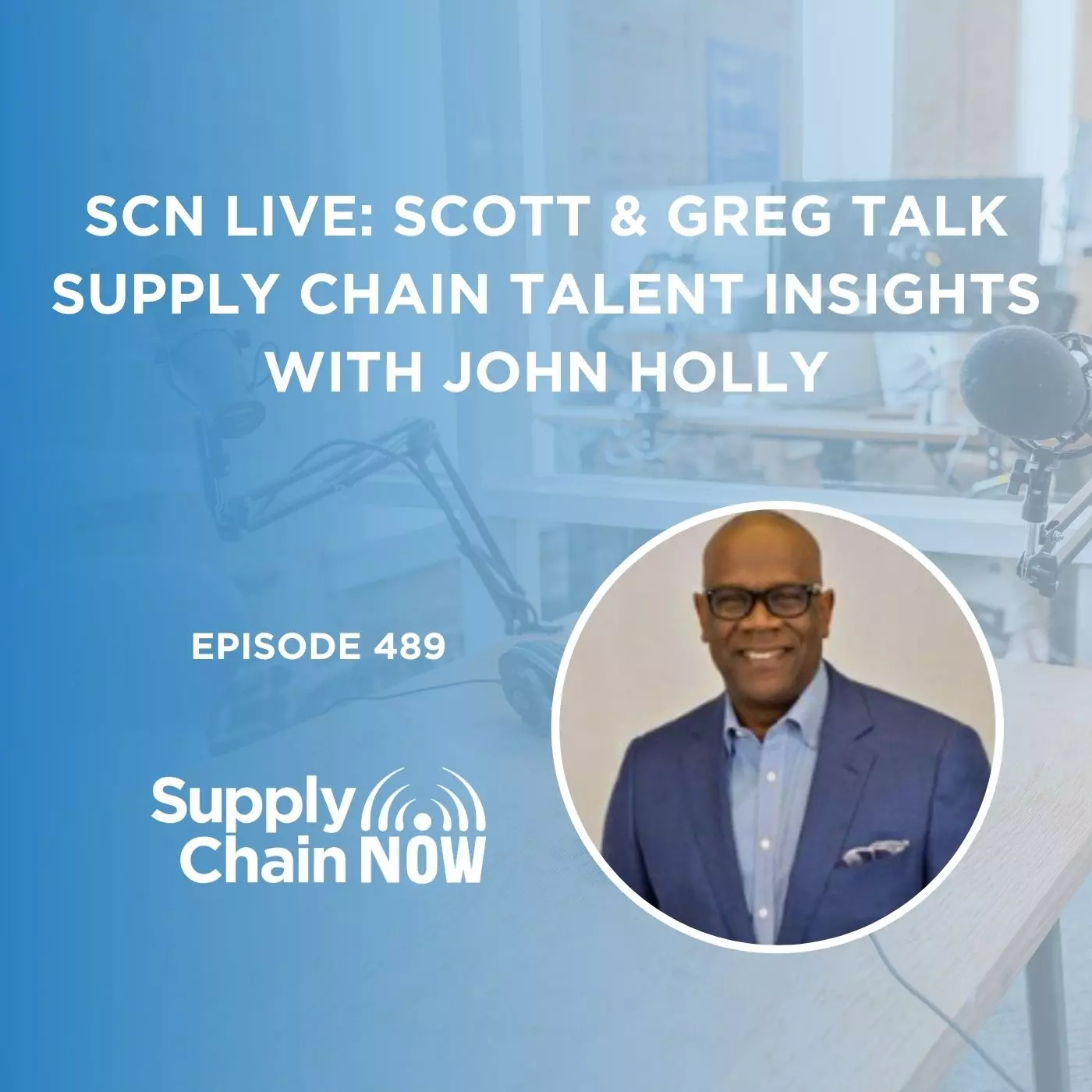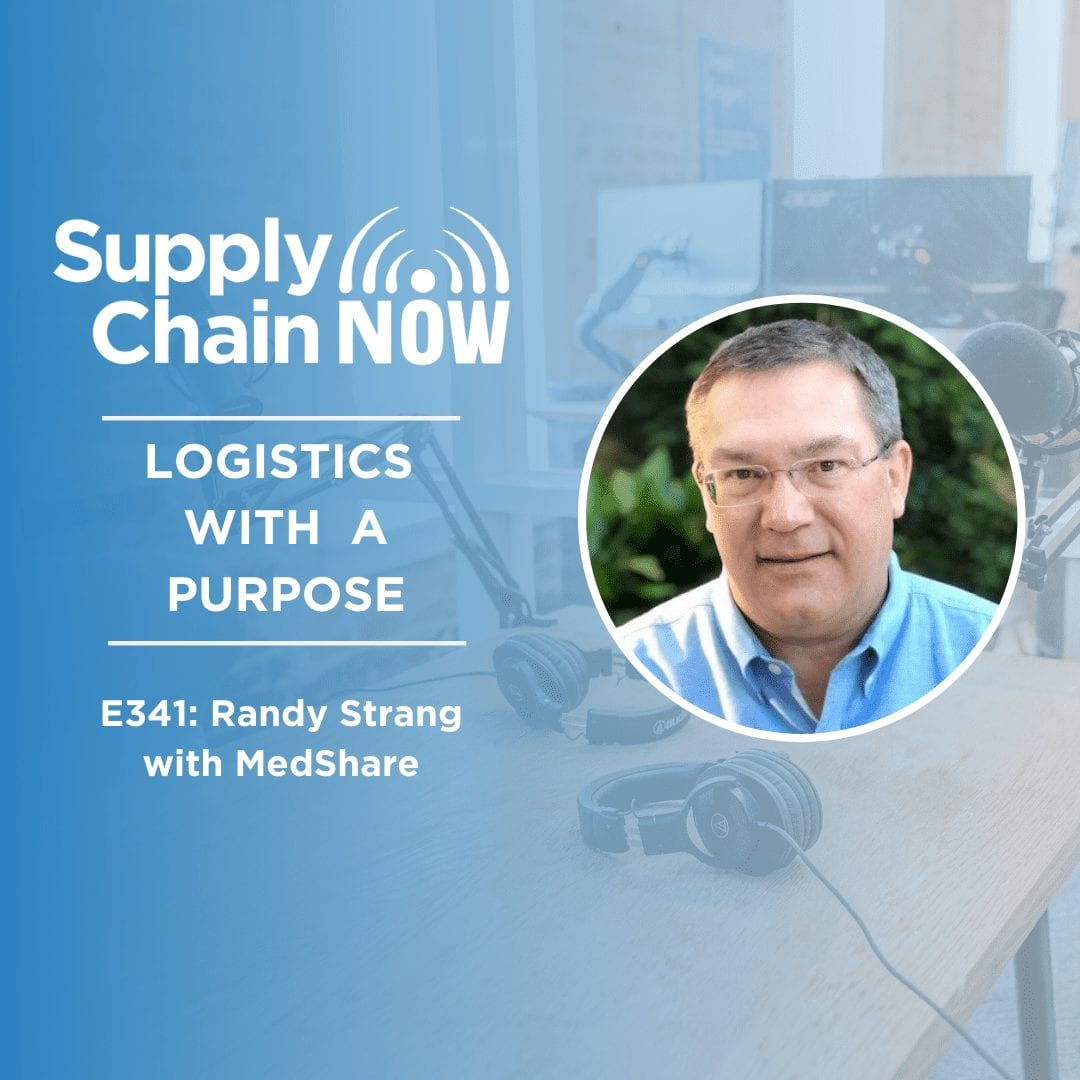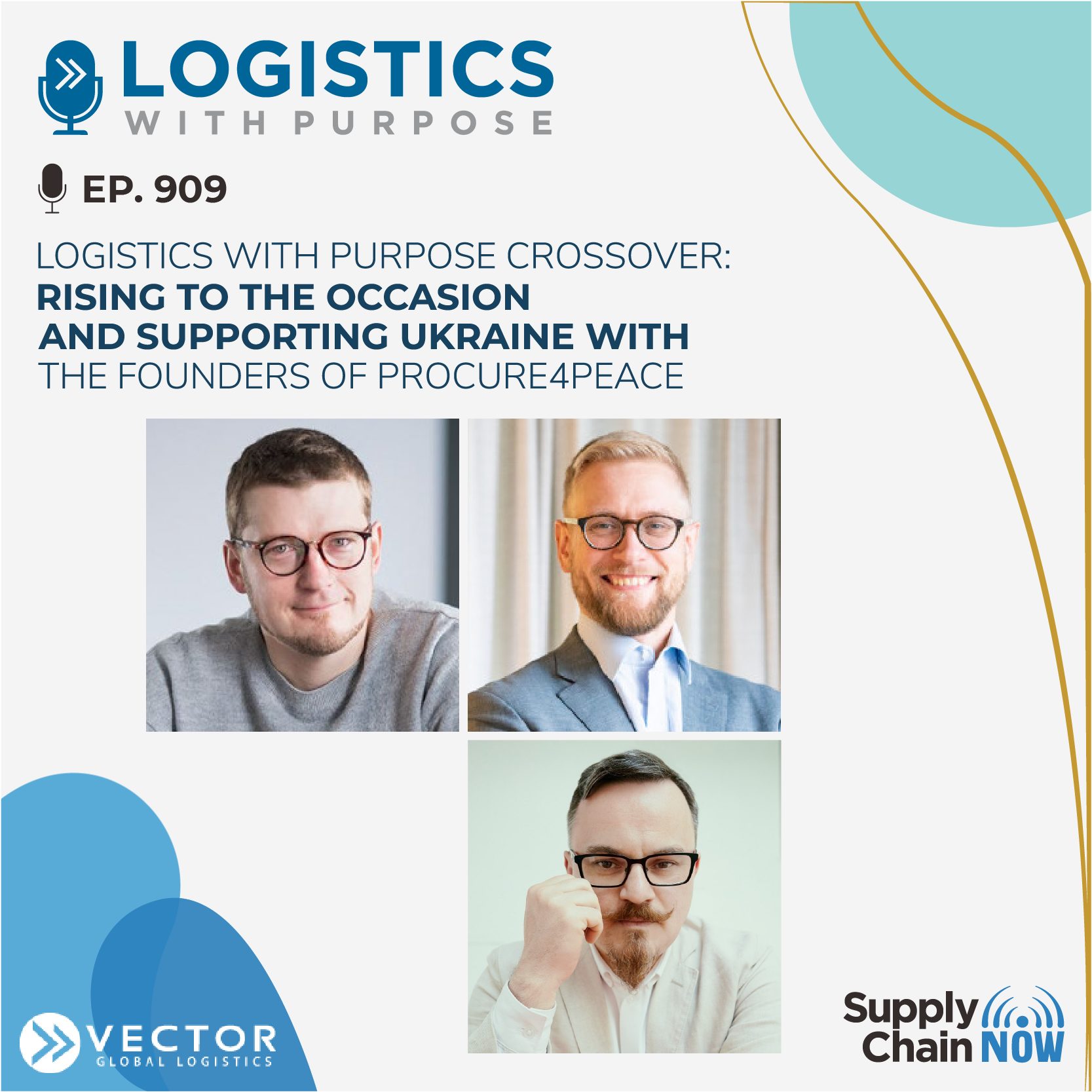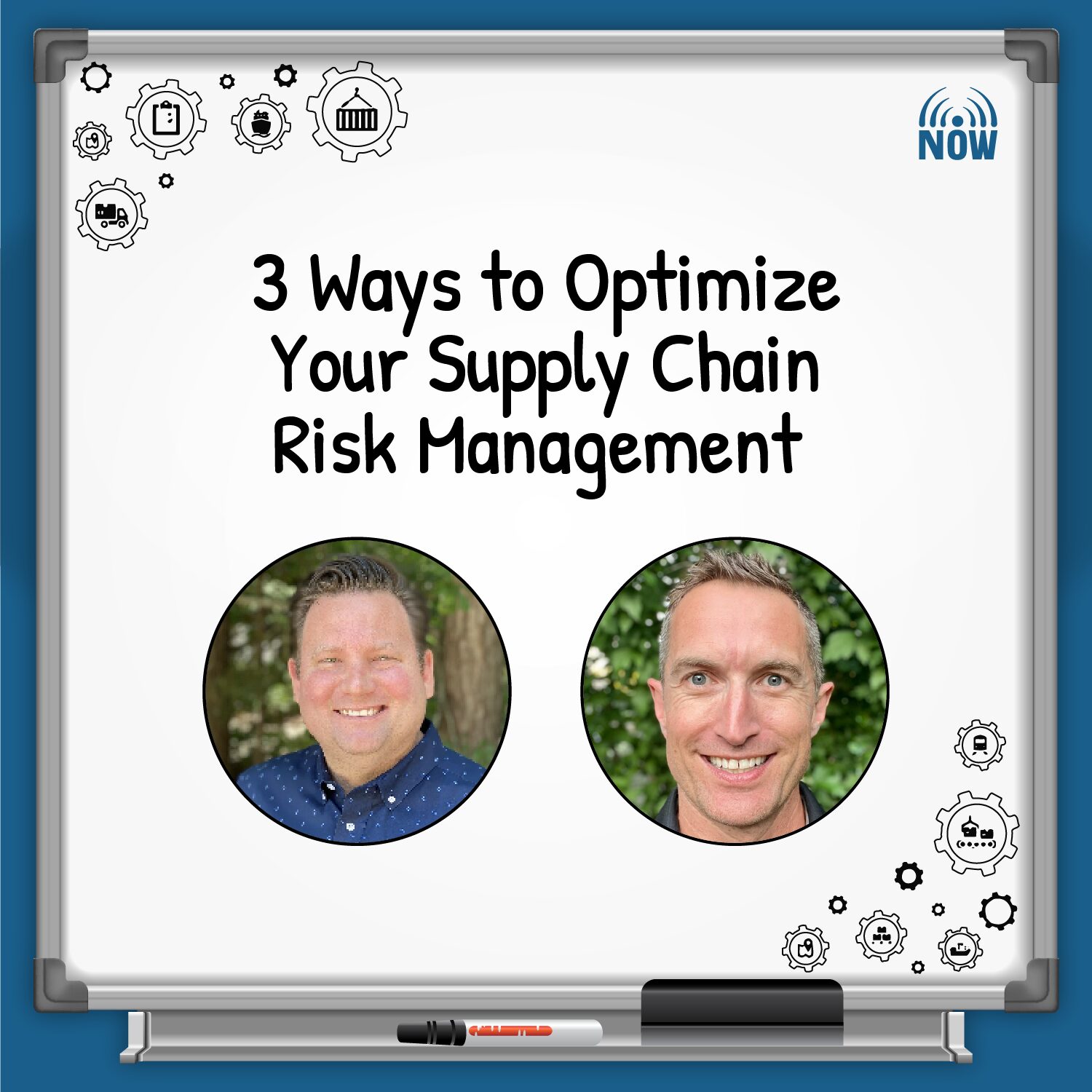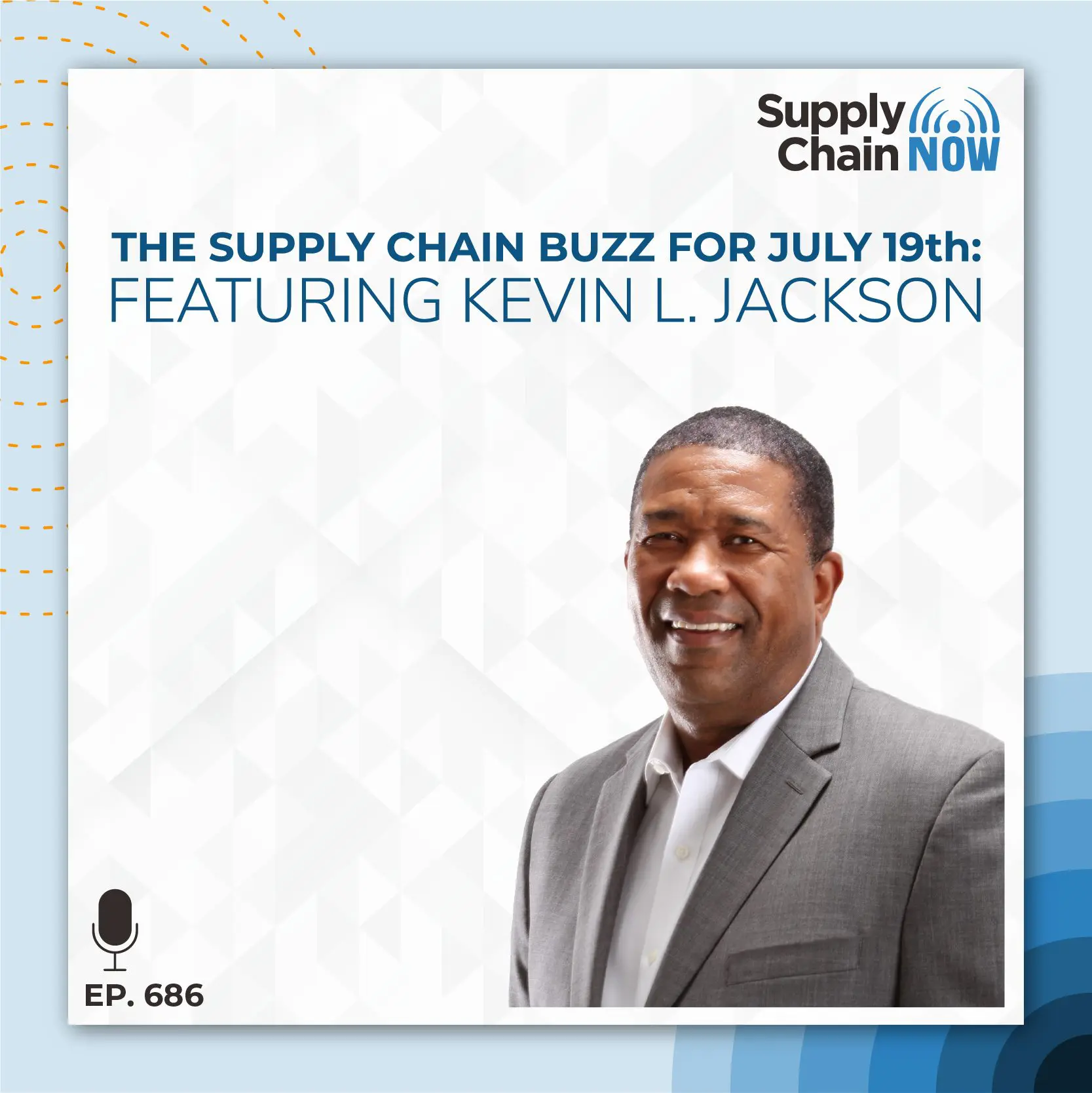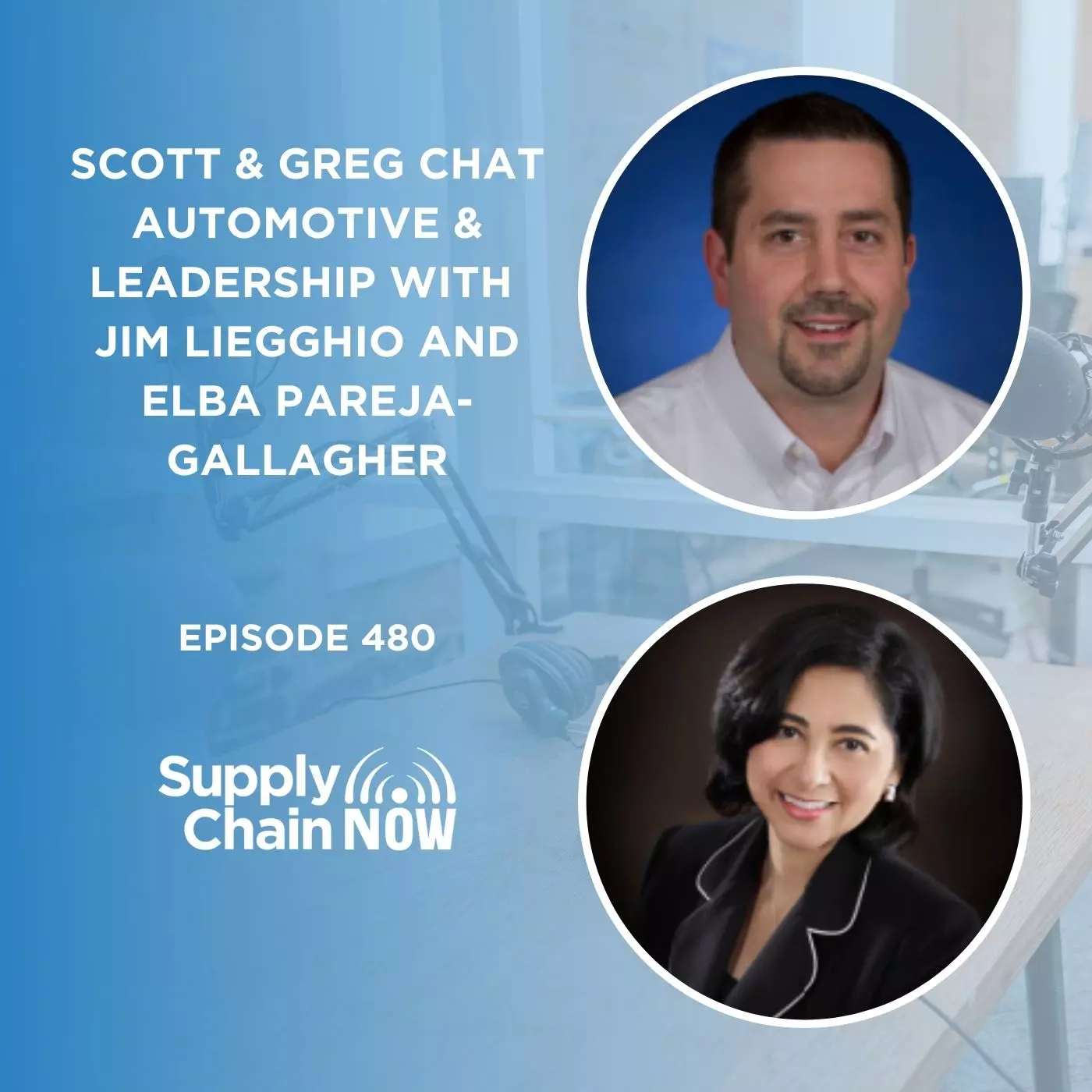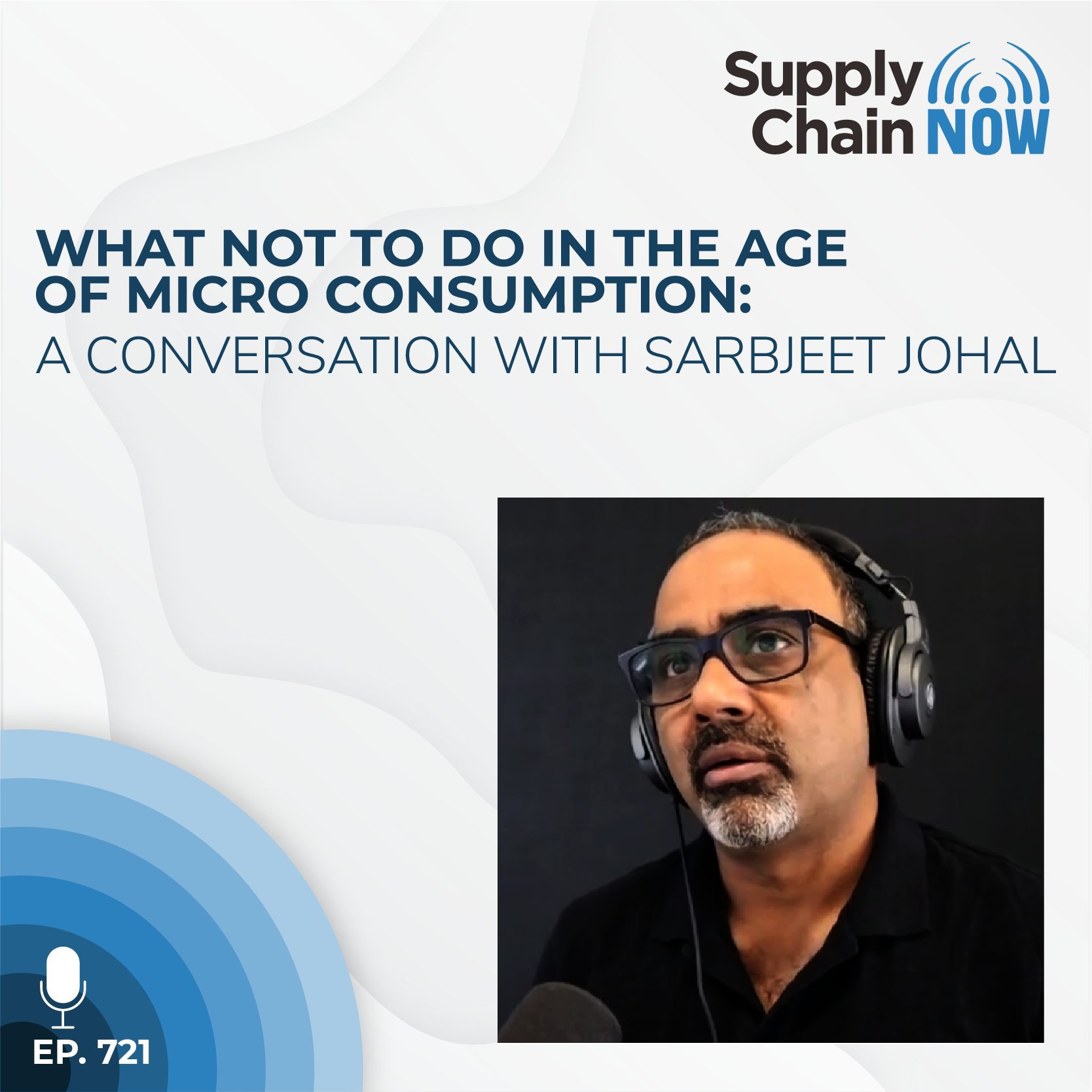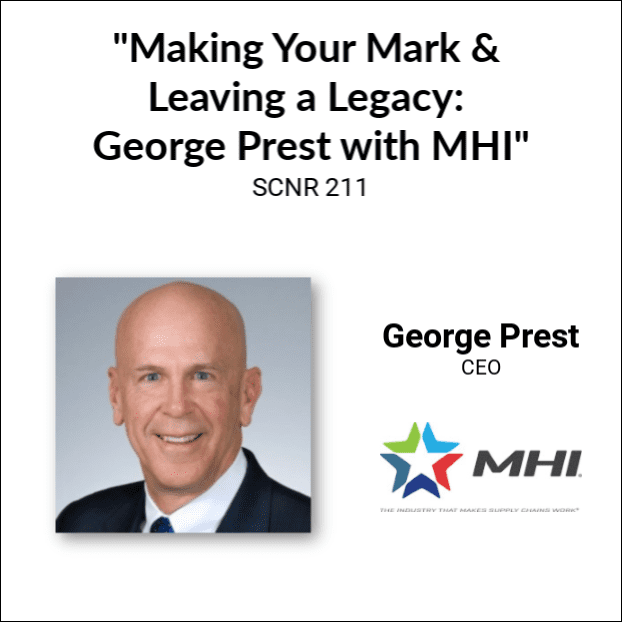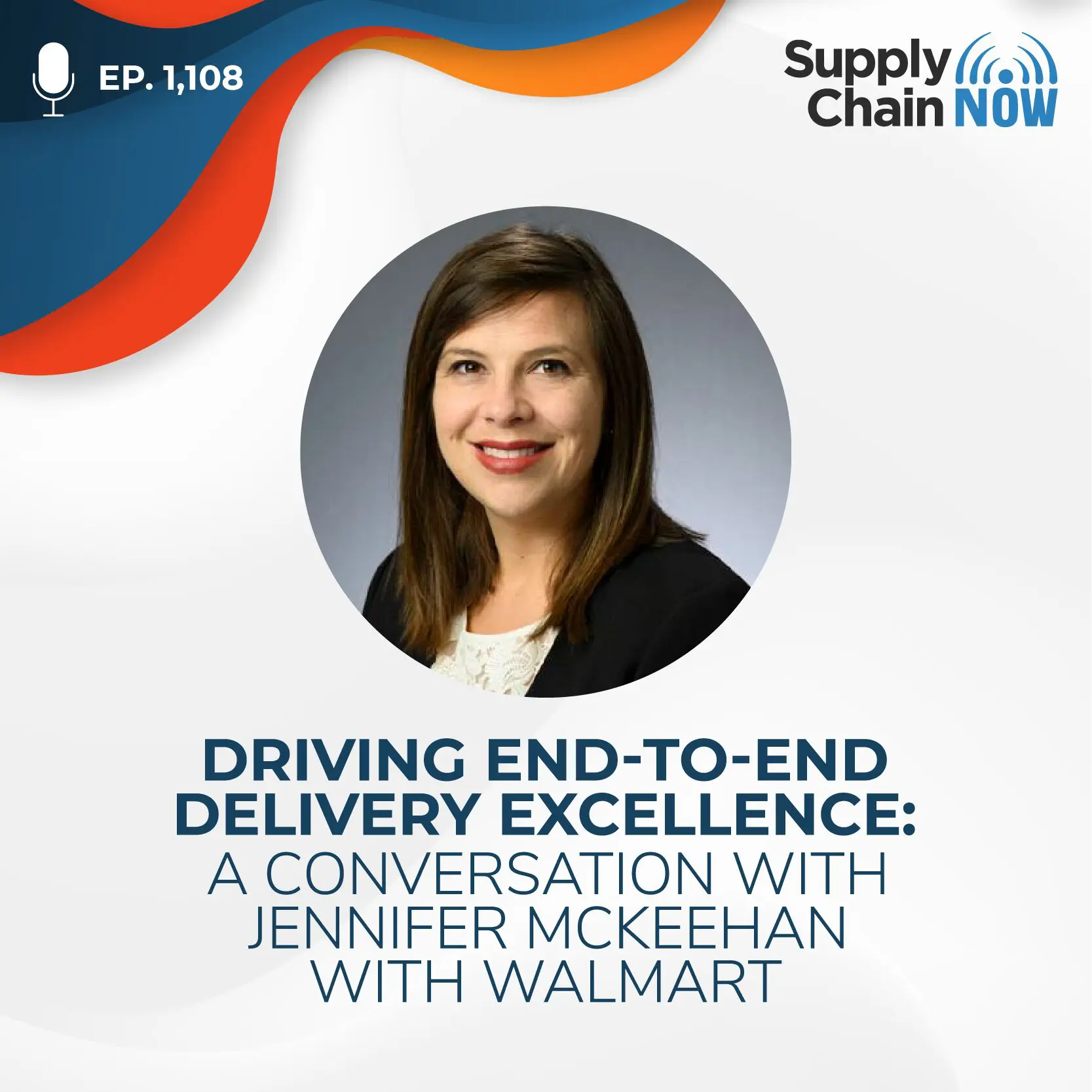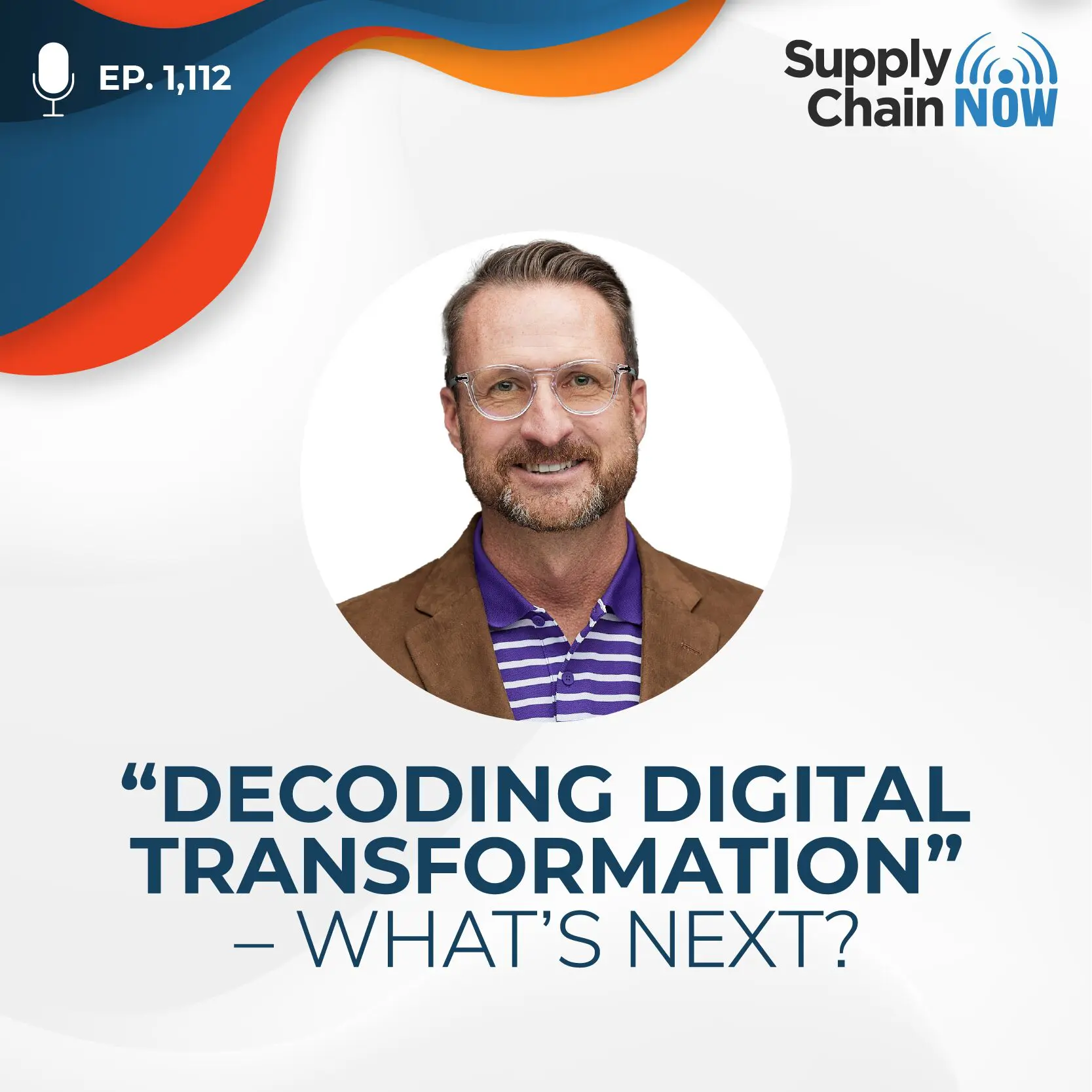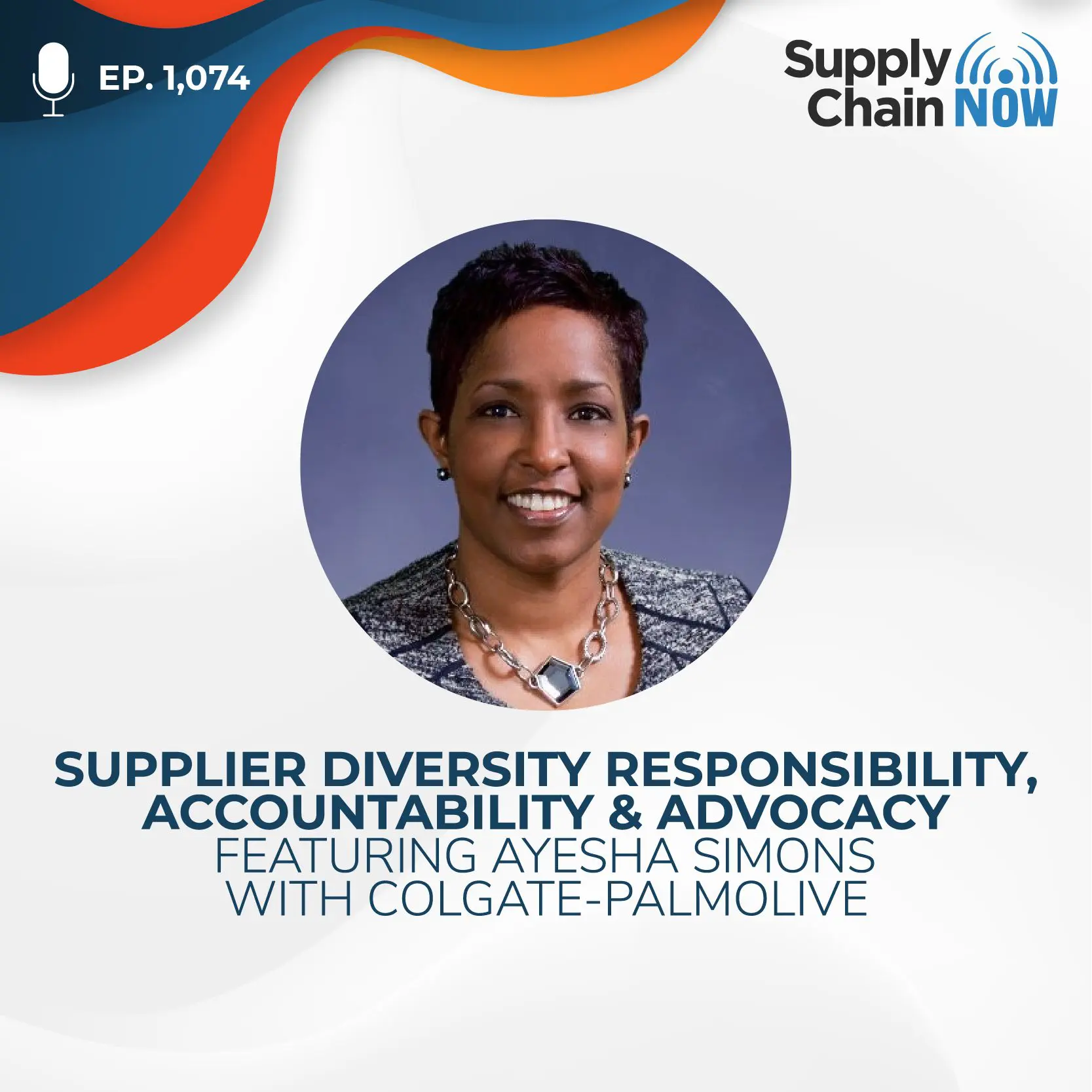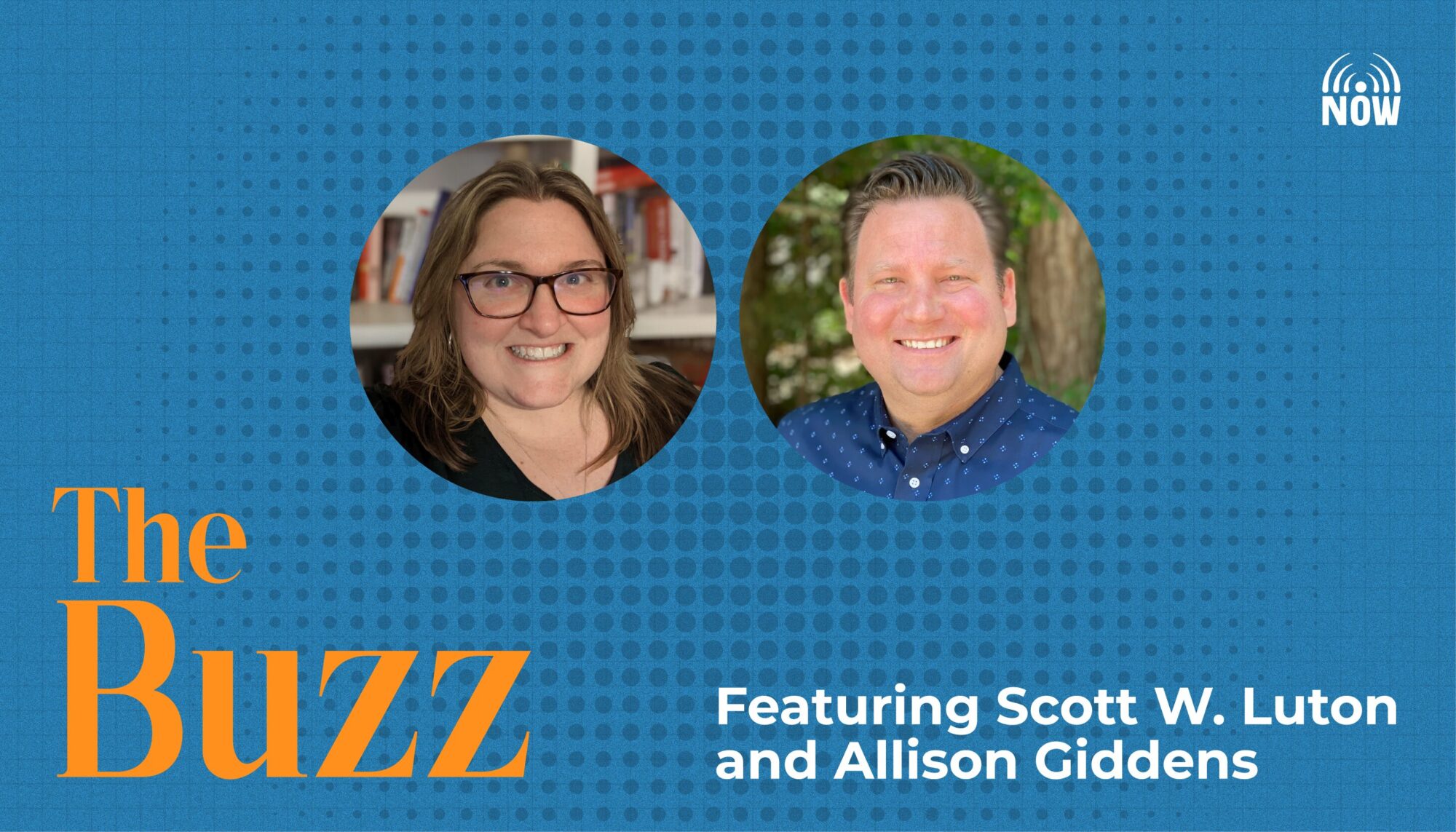
I like the opportunities to highlight industry, and not just for the marketing of certain companies and things, but also to show the next generation that this is what industry is all about. These are the different things you can do.
-Allison Giddens
Episode Summary
The Buzz is Supply Chain Now’s regular Monday livestream, held at 12 noon ET each week. This show focuses on some of the leading stories from global supply chain and global business, always with special guests – the most important of which is the live audience!
In this week’s episode of The Buzz, hosts Scott Luton and Allison Giddens discuss some of the top news stories and trends in supply chain and industry today. Listen in and learn more about:
- Frontline workers and the burden they bear
- The allegations that management at Boeing have been placing priorities on speed of production and profits over safety and quality
- The report that sources within US intelligence are saying that Russia is attempting to build a nuclear space weapon to take out satellites that area critical to our modern way of life
- The intersection of supply chain, greater industry, global trade shifts and politics- and Mexico becoming the US’ top trading partner recently
Episode Transcript
Intro/Outro (00:03):
Welcome to Supply Chain. Now the voice of global supply chain supply chain now focuses on the best in the business for our worldwide audience, the people, the technologies, the best practices, and today’s critical issues, the challenges and opportunities. Stay tuned to hear from Those Making Global Business happen right here on supply chain now.
Scott Luton (00:31):
Hey, good morning, good afternoon, good evening, wherever you may be. Scott Lutton and Allison Giddens here with you on Supply Chain. Now welcome to today’s Live Stream, Allison, how you doing? Hi,
Allison Giddens (00:42):
Good, how are you? Happy Monday. Happy President’s Day.
Scott Luton (00:44):
It is President’s Day. That’s right. We all need to go out and buy lots of furniture, is that right?
Allison Giddens (00:49):
And mattresses
Scott Luton (00:50):
Got to keep the economy going. Well, great to have you back. Good to be back. Really have enjoyed your appearances over the years, dating back to some of our earliest chapters here at Supply Chain now. So a lot of folks out there, Allison may connect the dots, although some of our newer audience members may be unaware that you lead a manufacturing organization here in the greater Atlanta area and have deep manufacturing and industry leadership experience as well. So looking forward to your perspective here on the buzz.
Allison Giddens (01:20):
Yes, happy to be here.
Scott Luton (01:21):
So folks, we’re all happy. Allison’s here as well. So the buzz, Hey, y’all know we come at you every Monday at 12 noon Eastern time. As always, we’re going to be discussing a variety of news and developments across global business on today’s agenda, folks, Owings quality issues, potentially nefarious Russian cyber tricks. I’ve never used the word nefarious, Alison. Good word. Good
Allison Giddens (01:44):
Word.
Scott Luton (01:45):
The Mexico market, I’ll tell you, it’s amazing industry is on the move down there in Mexico for months, if not years now. So stay tuned for all of that and more. And hey, we want to hear your take throughout today’s session. So y’all drop your comments, your perspectives in the chat throughout the next hour or so. And hey, if you’re listening to this podcast replay, which we usually drop on Fridays, we encourage you to join us live so you can engage and share what you’re thinking about any of these topics every Monday, 12 noon. And Allison, one more thing. We had a great pre-show conversation. You were talking about supermarkets out there that really nail it and when companies really nail it, what do consumers do a lot of times?
Allison Giddens (02:25):
Buy a lot of things or at least their brand becomes synonymous with the thing.
Scott Luton (02:31):
Yes, we buy, we brag, we share, right? That’s where I was trying to go. Alison and all of our friends out there, if you’d like me and Alison and what we talk about throughout the next hour here on the buzz, hey, share it with a friend, share it with your network. They’ll be glad you did. Okay. By the way, as a big old aerospace nerd and Air Force nerd, I love those models and I’m going to see my eyesight could be bad, but I think that’s a F to the left to that side. Oh, it
Allison Giddens (03:01):
Was so close. Nope.
Scott Luton (03:03):
Okay. Is it newer?
Allison Giddens (03:06):
Yes.
Scott Luton (03:06):
Okay. F 22.
Allison Giddens (03:08):
Very good. Okay,
Scott Luton (03:09):
And on the far right I’m going to say that’s an F 15.
Allison Giddens (03:12):
Nope. No, it’s a little harder to see.
Scott Luton (03:15):
Okay.
Allison Giddens (03:16):
If you saw a different profile, you might be able to nail it.
Scott Luton (03:19):
I’m failing. You want me to tell you? Yes, please.
Allison Giddens (03:22):
F 35.
Scott Luton (03:23):
Oh, I should have known that. And of course in the middle C one 30, right? You
Allison Giddens (03:28):
Got it. You got it. Okay.
Scott Luton (03:30):
One of the longest running, if not the longest running military aircraft still in production some 60 years later, Alison.
Allison Giddens (03:36):
Roughly. Something like that. Yeah. Yeah, the Hercules had had its birthday not long ago.
Scott Luton (03:41):
That is right. Okay. Alison, let’s start with a few resources for folks out there. We’ve got four stories we’re going to be working our way through. I want to share a couple of visuals here and we’re going to start with the domestic freight market. So folks, great resource for our listeners out there that want to better understand what’s really going on in the US domestic freight market. Check out the recently released US Bank freight payment index for fourth quarter 2023. You can check out the link that we are dropping in the comments, but this comes out every quarter. My favorite things about this, Allison, is it really gives national overviews, but then they go region by region. There’s some key differences when it comes to the makeup of industry and trends and whatever. So if I like it, I bet you will too, Alison, it’s tough to kind of get a feel of what’s really going on across the freight market, huh,
Allison Giddens (04:28):
Man. Yeah, it’s kind of all over the place and I’m trying to figure things from my little microcosm of a small business and see if I have noticed some of the patterns that you can see in those charts. It’s interesting,
Scott Luton (04:38):
Man. Well, one of my favorite expressions, and I’m not sure who said this first, but it’s to understand where you’re going, it’s really important to truly understand where you’ve been. Check it out. The other favorite part is it’s free comes in every quarter. So we’re dropping the link, which we’ve just dropped in the chat. One click away, you can sign up for it and get it in your inbox every order. Okay, moving right along, Alison, let’s talk about with that said, yes. Have you ever heard me say with that said Alison?
Allison Giddens (05:05):
Yes, a couple times.
Scott Luton (05:07):
It’s one of my go-to phrases. I guess we took it and made our newsletter. Hey,
Allison Giddens (05:11):
Marketing man marketing. It’s your brand. That’s
Scott Luton (05:14):
Right. So what we shared over the weekend is we really talked about this phrase of bridge builders, and I had a eureka moment as I was crossing that bridge, which is pictured right there, and Baton Rouge, Louisiana. And y’all can go read it and check it out, but long and short of it is humanity and society could sure benefit from a whole bunch more bridge builders. Isn’t that right, Alison? Would you agree?
Allison Giddens (05:35):
You got that right. And it’s funny because I’m having a road trip and not I guess next week, so I’m sure Well, I’m hoping I come up with just as many epiphanies.
Scott Luton (05:44):
Okay, well I know you will as a successful humorist like Mark Twain, I love hearing your observations and experiences from your travel. And I picked up a little tip in our prep for today’s show, Alison, if it’s within a certain 10 hours, you’re going to drive it and not fly it. Is that right? You
Allison Giddens (06:02):
Got it? If it’s 10 hours, I’m road tripping it.
Scott Luton (06:05):
So I can’t wait to hear the places you see on your travels coming up. Okay, one last thing folks, I know we’re covering a lot of ground. We did include the link to with that said right there, one click away, check it out and subscribe to it. But lastly, national Supply Chain Day is back with a vengeance. Mark. Your calendars April 29th. It is led by its founder, Mary Kate Love, who’s a member of our team here at Supply Chain. Now, Mary Kate is a dynamo. I can’t wait. We’re going to take national supply chain today to incredible new heights and one of my favorite parts about this, Alison, so yeah, market calendar is April 29th. If y’all want to get involved, hey, check out Ns cd, the acronym@supplychainnow.com. One of my favorite parts about this, Alison, twofold. Number one, even though it’s national supply chain day, it’s official and been filed and all that stuff, still we’re going to lift up what’s going on coast to coast here, but also celebrate the global industry. So I love that. Nice. And then also, Alison, we’re going to talk about the frontline workers here in a minute. We’re going to put a big emphasis on uplifting the human factor, the people that make global supply chain happen. Allison, does that pull your heartstrings a little bit too?
Allison Giddens (07:18):
I like it because I’m a big fan of manufacturing day that first Friday in October. So I like the opportunities to highlight industry and not just for the marketing of certain companies and things, but also to show the next generation, like this is what industry is all about. These are the different things you can do. To your point, getting global reach for supply chain. You can’t talk about supply chain without talking global.
Scott Luton (07:39):
That’s right. Whether we like it or not, and most of us like it. We’re all in it together, Alison. We’re all in it.
Allison Giddens (07:45):
Rising tide lives all boats.
Scott Luton (07:47):
Yes, that’s right. Love it folks. April 29th. April 29th. Mark your calendar a lot more to come. And if you want to reach out to Mary Kate and the team here and find ways to get involved, hey, use that email. We just dropped N csd@supplychainnow.com. Big tip of hat to Catherine and Amanda, helping to make things happen as always here at the buzz. Okay, we got a lot of work to get into, Alison. We do.
Allison Giddens (08:11):
We
Scott Luton (08:12):
We want to start with talking about our workforce. I think I’ve got a simple graphic here. Let’s see here, because a new research report came out. So hey, as we all know and as the pandemic really showed us once again for maybe the 10000th time, we got to take care of our workforce across industry. No matter what sector you’re in, a new report here sheds more light, particularly on our frontline workers and the burden that they bear. So Alison, check this out. I’m going to unpack this and I can’t wait to get your take on this. So according to research findings from, I think I’m going to get this right, mc equilibrium.
Allison Giddens (08:44):
That sounds good. That sounds super good. I wouldn’t try it a second time. Okay,
Scott Luton (08:49):
So y’all check it out then we’ll drop the link, the name of the company in the chat there. But frontline workers kidding, frontline workers are about 61% more likely to suffer from depression, 33% more likely to suffer from anxiety than their non frontline colleagues. Now, the research mentioned a variety of factors impacting our frontline along these lines from irregular shift work to not much paid time off to a lack of autonomy in their roles and their regular interaction oftentimes with angry or frustrated customers. And that’s just a tip at iceberg, right? Interestingly enough, other research indicates get this, that frontline workers are far more capable than their non frontline colleagues in their ability to develop true resilience, which they lean on to mitigate stresses of their work environment. It’s kind of cool, but it’s kind of sad that that’s what they’ve had our frontline folks have had to do.
Allison Giddens (09:39):
What doesn’t tell you makes you stronger,
Scott Luton (09:40):
Right? That’s right. Employ assistance programs, which are meant to help the workforce deal with mental health challenges often go underused for a variety of reasons. Folks may not know about ’em. You’ve got associated stigmas related to certain resources out there. Mental health, the phrase alone, it could be stigmatized for decades or other factors out there. But one thing is inarguable, we can do better for sure. So Alison, I’d love to get you to weigh in on what’s going on out there with the workforce and what we’ve got to do better.
Allison Giddens (10:12):
Yeah, I think a lot of this resonated because you can see this with people and you can see this kind of everywhere you go when it comes to restaurants, especially, I’ve noticed this in some of the wait staff that I’ve observed in restaurants, whether it’s the manufacturing industry. I think a piece of this is I blame a lot on covid. I blame a lot on the fact that following Covid, a lot of us in manufacturing saw some attrition in workforce in general, and therefore the people that were sticking around, the people that were continuing to work worked twice as hard for essentially the same amount of outcome. And it’s not as though there’s been any relief valve. I remember over the holidays, I remember working in November and then into December, it was kind of that feeling. You get that feeling, you were in manufacturing, Scott, you get this.
(11:00):
There’s that feeling of, oh, we’re almost to a time where we can decompress for a few days. We never got that. Heck, I’m the owner, I’m the co-owner of Win Tech. It’s not like we could shut down. We were so busy. So I think that there’s a lot of reasons, like this article talks about a lot of overlapping reasons, but to the same point on employee assistance programs. We’ve got a great health insurance opportunity where we’ve got resources, a lot of 24 hour phone calls that you can make anytime of day, anytime of night. But it’s again, yeah, folks know about ’em. But I think understanding and making a decision to use the resource takes a certain amount of not only knowledge, but ability to say, okay, I think I need the help now. So I don’t know what the fix is. I’ve seen a little bit of success in my peers.
(11:48):
Shout out to a few. I don’t want to necessarily name them because I don’t know how open they want me to name them, but I know that a couple of them very purposefully go out to their shop floor and spot check people. How are you? I remember you telling me three months ago you had to put your dog down. How are you feeling? And kind of go out of your way to make those kinds of conversations happen. I think that’s humanizing people. I think a lot of times the managers too, those on the frontline are going through these same things. That’s right. I don’t know, that’s kind of my long version of the short story.
Scott Luton (12:19):
Well, we’re all humans no matter what role you play and life happens to all of us. But I love those couple of examples, including showing in a very genuine way, not just asking the questions, ask the questions, but leaning in and having those real conversations. I love that. And going back to your first point, I love that you as an organization are offering resources for your employees. A lot of folks, as a veteran, I know in the veteran community, we’re really bad at raising our hands to, Hey, I need help. And that’s a critical first step so folks can lean into resources that are out there. A lot of good stuff y’all check out. We’ve got a link to a great article about our frontline workers that are just so paramount to how everything takes place. We’ve got a level on, make sure these folks are taken care of.
(13:03):
Y’all check that out. Okay, Allison, just the tip of the iceberg. I want to move into this next story that interestingly enough is related to the first one for sure. So interesting read here from our friends at NPR where we focus on an ongoing story related to the manufacturing workforce and allegations that management at Boeing have been placing priorities on speed of production and profits over safety and quality and other things. This is not late breaking news for all of y’all out there. Y’all saw it as well as I saw it back in early January, 2024, a door plug panel blew off Midflight on an Alaska Airlines aircraft. The pictures coming out of that were remarkable as the NTSB, which stands for the National Transportation and Safety Board, if I’m not mistaken, here in the states. It continues its investigation in the Boeing 7 37 max nine aircraft. Overall concerns about quality control, well, they’re growing. A lot of folks aren’t sure if the company is prioritizing the right things. Of course, sadly, many folks will recall the two deadly crashes that involve Boeing 7 37 max eight jets in 2018 and 2019. Those two crashes sadly cost the lives of 346 people. Alison, really interested in your take here as most of our audience will know that when you’ve joined some previous shows, you’ve got tons of experience and expertise from both a manufacturing leadership perspective and an aerospace industry perspective. Your thoughts here?
Allison Giddens (14:29):
So full disclosure, we don’t make any parts for Boeing. So what I’m about to say, take this with a grain of salt. I do have some colleagues that work with Boeing, some professional colleagues and industry groups, and they are some of the hardest working people I think I’ve ever met. They’re really good people. They’ve got their hearts in the right places. Granted, they’re not over quality lines on the floor, so can’t speak to that. But I do know that this is not an easy thing for leadership or people who are responsible on the front lines. Going back to the frontline workers, again, I think you have the exhaustion layer. I think we’ve assumed a lot. We’ve put a lot on the shoulder of people that we assumed we’re always going to be doing what they should have been doing all along. Also, there was something that, I don’t remember if it was this article or another article, but something that I was reminded, remember during the pandemic when a lot of planes sat
(15:17):
And they were talking about how engine wise, that was not a good thing. It’s not a good thing for planes to sit because that is a quality concern and all of that. So long story short, in my eyes, this is kind of a, you said it earlier, to understand where we’re going, we need to understand where we’ve been. I don’t know that any of this is surprising and honestly, I think it’s a matter of time before we start recognizing and realizing other brands or other big names start having quality issues. And we’re all going to go, well, where did this come from? I’ll tell you where it came from for the same reasons.
Scott Luton (15:47):
And that’s where it ties directly back to that first story. Because as challenging as it is here, at least in the states to find great talent and to keep great talent, unfortunately to your earlier points, we put a lot of pressure on the talent we do have to make things happen and to meet goals and objectives. They all kind of feed each other in many ways in terms of the pressure. And then of course you’ve got leadership. At least it’s been alleged that leadership begins to look more at the bottom line rather than safe and quality production. And to that end, I’ll just add this, Alison, you may have seen this documentary as well. I want to say I saw on YouTube, it’s probably about a year or so ago. It’s a couple years old, came out not long after those earlier disasters that we talked about earlier that cost so many lives. And I think it was a Wall Street Journal, it could have been a different publication, the documentary on kind of how Boeing has gone through a variety of changes. And one of the findings that they seemed to point to was that the company culture at Boeing, when they moved the headquarters from Washington state to I think Chicago, between that and some other changes within the company, that the culture moved from a highly engineering focused culture to more of a financial and bottom line.
Allison Giddens (16:57):
Oh, interesting.
Scott Luton (16:57):
Driven culture. So y’all check that out. Maybe Catherine, Amanda can find that documentary. I’m pretty sure the Walter Journal did a great job there. But Alison, your final thoughts about Boeing.
Allison Giddens (17:07):
I really think that it’s hard to be everything to everyone. And it’s the other cliche, when everything’s a priority, nothing is a priority. I think that if ultimately if there’s a company that is saying, whether it’s Delta or Southwest or whoever is saying, Hey, I need 10 of these and I need ’em yesterday, you start looking at the, what do they call it? The three legged stool, right? Right. Delivery, quality and price. You can only get two. You can only have two. Which two do you want?
Scott Luton (17:35):
That’s right.
Allison Giddens (17:36):
It’s tough.
Scott Luton (17:37):
It is tough. I know you’re in a manufacturing environment now. I’ve certainly spent time in industry meeting those demands working with automotive and other really challenging industries, and God, our manufacturing workforce and industry, and they’ve got such a tough job, but they tend to deliver day in and day out.
Allison Giddens (17:57):
I don’t want to predict bad things. That’s not something I want to do. But I’m curious to know what the tough situation that a lot of automotive manufacturers have been in lately. Are we going to start seeing something from the automotive side? Maybe not necessarily as egregious as doors coming off, but at the same time, if you think about it, if you’re always more likely to experience an accident on the road than you are in the air, the quality defects from an automotive perspective, the quality defects that have a pattern, that has much more potential to be severe. And I’m not just talking about recalls because your air conditioning doesn’t work, right?
Scott Luton (18:38):
Steering components, brake components we’re big safety components. That’s an excellent point, Alison. I’ll throw it out there to our audience. What do y’all think? Any predictions when it comes to either aerospace or Boeing or the fallout from a lot of the challenges and dynamics that the automotive industry has been going through in recent years? Let us know. Okay, so Alison with story number three, now this is going to test at least the bounds of my knowledge and expertise here, but I want to share this because we’re talking space. We are talking space. Third story here from our friends at CNN. It’s being reported by sources within US intelligence that Russia is attempting to build a nuclear space weapon to take out tons of satellites that are critical to our modern way of life. Okay, so Alison, tell us more here. What’s going on? Oh
Allison Giddens (19:30):
Man. So this all kind of, the news broke. The timing is not suspect. The timing is interesting because it happened last week right around the time that Congress is really pushing hard to get more funding out to Ukraine. And of course as our politicians politic, there’s lots of infighting and all of that. And then all of a sudden somebody comes out and with the White House and they say, Hey, by the way, we’ve got some really important thing we want to tell you about the Russians are doing. Now, of course, if I’m a politician and I’m on the fence of voting for Ukraine funding or not, I’m hearing this and I’m like, oh my gosh, here, nuclear, take all the money. Take all the money, please. And so it was a very interesting timing about the announcement, but have you seen the show The Diplomat?
Scott Luton (20:16):
No, I thought you were going to say the Americans. Amanda, I have not watched that either. Amanda’s high on the Americans, but I have not seen the diplomat.
Allison Giddens (20:22):
The diplomat’s very good. It’s interesting because there’s, and I don’t know how true any of this could be in real life, but in some circumstances the main character wants to communicate something to a country that is not known it being friendly to the us, but she has an insider who is friendly and wants peace and wants good things. So she figures out ways to make things public through news, to communicate things to that person. And then in turn, that person communicates to a third party and then information gets back to her. So you wonder if any of this has anything to do with those kind of backend channels. Because if I’m somebody in the national security of the United States and I’m reading this article, I’m like, don’t tell them that we know. Don’t tell them that we know these things. So again, the espionage and all that stuff, I don’t know how any of that’s true, but all of this stuff to me, and I think Amanda jokingly said this in the green room beforehand, was just adds to my existential dread. You wake up and you’re like, what else do we have to worry about?
Scott Luton (21:28):
Seriously?
Allison Giddens (21:29):
I think ultimately this just means I tell my mother-in-Law, and I tell my mother this regularly, these days when it comes to the disaster prep, I would just prepare like you’re always thinking a snowstorm is coming. Just make sure you have medications, replenished, canned good. Make sure you love a bunch of canned goods. Don’t go crazy. But at the same time, this stuff, who the heck knows, man,
Scott Luton (21:52):
Who knows? We’re going to talk a little bit more about the intersection of politics and industry and supply chain and the next story, but I love how you started that. The timing is always suspect right now. Andy, Andy Soer, great to have you. Andy, if you leaked in, says, the nuclear space weapon from Russia is stupid from so many different angles. He says, so Russia is very likely going to do it. Well
Allison Giddens (22:15):
That solidifies it. Yeah.
Scott Luton (22:17):
Oh, good stuff, Andy. All right, so let me give you some good news here related to this story and we’ll see. We’ll keep our finger on the pulse. We all know how critically important so many satellites in space are to our modern way of life. And as I was talking with my dear friend Kevin L. Jackson who worked at NASA in recent weeks, there’s some fascinating stuff going on when it comes to space, medical breakthroughs, manufacturing and space because of certain things, science stuff we can take advantage of. And of course all that’s going to require, yes, a space supply chain. So a lot more Stay tuned. We’ve got to show we’re about to launch, no pun intended.
Allison Giddens (22:53):
We could possibly go wrong.
Scott Luton (22:54):
What could? So, alright, here’s some good news related to this story. So this weapon folks has not been launched, it’s not an orbit yet. Let’s settle down a little bit.
Allison Giddens (23:05):
That’s what they want you to think
Scott Luton (23:06):
Probably. So analysts view this as a last ditch weapon because if used, it wouldn’t just destroy a American satellites if the technology works, but it also would destroy Russian satellites and any others in the orbits of where he was detonated. So this would be, that’s good news to my mind at least. Last ditch weapon. Lastly, hey, if used at least we’d have quite a solid excuse for not paying our mortgages, right? Because of course the financial system is probably underpinned by satellite technology and a lot more stuff. You’d still
Allison Giddens (23:34):
Get phone calls from people wanting you to extend your car warranty. Guarantee you.
Scott Luton (23:38):
Yeah,
Allison Giddens (23:39):
They will find you.
Scott Luton (23:41):
Well folks, we’re going to keep our finger on the pulse of this. And Alison, I appreciate your perspective. Nuclear space weapons, goodness gracious. Come on Mr. Putin. We ain’t got any time for that this week, right? We’ve got other fires
Allison Giddens (23:53):
Today. I got things to do. I got, yeah, serious. I got customer orders to fulfill. Just chill, man.
Scott Luton (23:58):
Oh man. Alright, so moving into our last story here, fourth and final story. This is an interesting, there’s so many different reads and takes and analyses on what’s going on in Mexico. It’s fascinating. So we want to talk here as we get into our last story about the intersection of supply chain, greater industry, global trade shifts and politics. So interesting story from Al Jazeera as it relates to Mexico becoming the United States top trading partner. Recently, you may have heard as data from the US Census Bureau now indicates that Mexico has surged past Canada and China to be the United States top trading partner. I get this Alison, a couple of interesting nuggets of factoids here about US trade in 2023. So overall US trade fell by about 3.85% last year to 5.1 trillion with a T bucks. Now, this might surprise some folks, but when you think about it, it won’t.
(24:54):
Port Laredo in Texas, falled to the top of the list in terms of busiest ports with this volume driven largely by our growing trade with Mexico. The top US export in 2023 was oil. The top US import last year was passenger vehicles and $789 billion. That’s the amount in trade between the US and Mexico in 2023. Now, anyone that has tuned into any of our shows or a fellow practitioner out there that knows what’s going on, nearshoring is a big factor here. Note, I don’t like the fringe shoring term, although that folks talk about that as well. It’s a little different than Nearshoring, but in terms of Mexico and the us, nearshoring is critical. Companies continue to look for ways to bring parts of their supply chains closer. Mexico has benefited greatly here. Now, this was one of my favorite lines from this read, Alison, I’m going to get your take one. Industry veteran in this article suggests that a manufacturing explosion and expansion taking place in Mexico right now is what happened in China 30 or 40 years ago. Alright, so Alison, I’m going to get your take in two different ways. Firstly, let’s start with Mexico and these trading trends, your thoughts. First
Allison Giddens (26:03):
Thing, when I read the article, I thought it kind of seemed like a no brainer to me. Like you said, the whole nearshoring makes a lot of sense. If you think about it, the communication between the countries seems a lot more streamlined, a lot more people in the US that speak Spanish than do Mandarin or Cantonese or what. You have a lot of that. There are many more people out there that speak our language as opposed to the other way around.
Scott Luton (26:26):
Yeah, I’m still learning my English, by the way, Alison, I still struggle.
Allison Giddens (26:29):
No kidding. I before E. And I think that there’s also a benefit to the fact that generally they’re a lot closer in time zone. So in having conversations or having calls with them and oh, you’ll have these in three weeks. Okay, well that probably means three weeks and not three weeks and four days or three weeks plus the time that it takes to cross the Pacific, things like that. That makes a lot of sense to me. It was a fascinating piece that you mentioned about the manufacturing explosion, kind of reminiscent of what happened in China 30 to 40 years ago. I think that Mexico’s been preparing for this too, and it seems like a lot of the groundwork has been laid. And the other kind of piece, the politics piece in my head is no matter what side of the aisle you’re on with the immigration conversations, you wonder if trade is not a piece of those kind of peace deals, so to speak, where it’s very much a, Hey look, if we don’t allow X number of people to come in here freely, then we will offset that with X amount of dollars spent with your country.
(27:32):
Obviously I don’t think that that’s being put to paper quite like that, but I wonder if those kinds of conversations are taking place as well because I think both countries do have such rich resources in different ways that they’d be smart to play off each other for it.
Scott Luton (27:48):
Yes, well said. So much to look at here. We’re not going to be able to do it justice in the five minutes we talk about this. But to your point where you started, this has been a long time coming and there’s so many different tailwinds that have helped Mexico and their industry get here. I mean to name just a couple of y’all know the U-S-M-C-A, right? Which updated NAFTA and really created one of the most, if not the most unique trading region in the world between Canada, the US and Mexico. You got that at play, of course you got Covid where we lost so much or we gained maybe new heights of fragility in our global supply chains. Of course it makes, to your point, Alison, it brings perfect sense to mitigate some of that risk by bringing things in the same continent, right? Right.
(28:32):
Workforce, we already touched on, everybody out there listening or watching knows the workforce challenges we’ve got and the great resources they’ve got in Mexico costs. And then of course, and this is a longer list, but just to pull a couple, the trade war between us and China and how that also factored into the emergence and the incredible tailwinds that is tell you the country of Mexico, they’re on the move. And also, I’ll be remiss mentioning one other thing, the infrastructure gains and investments that are making, helping products not just get made, but flexibility in terms of how we move and distribute and just get stuff to different places. It is remarkable. Allison, your thoughts.
Allison Giddens (29:11):
Yep. That, and also I wonder how if the similarities just in general culture because of the two countries we’re a lot more similar I think than a lot of Asian countries in the US and perhaps that there’s, I understand that just because product is coming out of Mexico doesn’t mean the product is Mexican. I get that, but there’s still pieces of cultures that happen. To your point with Boeing that went from Washington state to Chicago. Anytime you have the existence or presence of a product or a company somewhere, that kind of culture resonates and that kind of culture bleeds over into the product or services that are supplied. So you wonder too, if the success of the partnership of the two countries perhaps is likely to explode in good ways because there’s a copacetic, you kind of get each other, so to speak. Yes.
Scott Luton (30:03):
And Mexico’s not building nuclear space weapons.
Allison Giddens (30:06):
That kind of
Scott Luton (30:07):
Helps.
Allison Giddens (30:07):
That’s super nice of them
Scott Luton (30:09):
Too. Hitting aside, one of the things I’m watching, and this is nothing new. This has been the works for years, also part of the near shoring, but also regionalization of supply chains that’s been taking place. The great gains in Mexico, there’ll be a spillover effect into central and South America. That’s one of the big reasons why China’s making massive investments in South America. There’s lots of ’em, but so how else can we create more business, good business for all parties by looking not just in Mexico, but looking in Latin or in Central and South America. So we’ll see probably some topics we’ll be exploring. It’d be
Allison Giddens (30:45):
Really interesting to see some of the crime that is happening and some of the strife that’s happening in certain South American countries that bleed up into Central America. It’ll be interesting to see what other parties do to mitigate those risks along the way.
Scott Luton (31:02):
That’s right. And create opportunities for all good jobs and good livings for all. Right. So important. Yep. So stay tuned. Keep your eye, not just on Mexico, but especially central and South America as the US and China compete for influence and relationships, but also as industry continues to emerge and evolve and again create opportunities for everyone out there. Larry Klein says, Hey, think of how strong our continent would be economically if just the US Canada and Mexico could get on the same page. China or the eu, he says, wouldn’t stand a chance and we could negotiate from a position of strength. That would
Allison Giddens (31:38):
Be wild.
Scott Luton (31:38):
It would be. And I really think that back to the U-S-M-C-A, I’m not an attorney or a lobbyist or a policy crafter, but generally speaking that was part of the aim to be able to make trade easier and not to create one country from three, so to speak, but really legislate our commonalities that you are speaking to Alison to make it a more frictionless trading environment. But we’ll see where we go next. Larry, great comment. Okay, Alison, as always, we’re very efficient when you join us here on the buzz. It must be that manufacturing background of yours and got our T time studies going right. But kidding aside, one of my favorite things we’re going to talk about as we start to wrap today’s buzz is what you’re doing apart from manufacturing supply chain, that is helping other people, helping other humans, helping families in need, helping kids be kids. So let’s remind folks what you and your team are doing at the Dave Creche Foundation. Tell us more.
Allison Giddens (32:36):
So it’s a fun little side project. For the past, I guess, I don’t know, 13 years now, Dave Creche Foundation pays for kids to play sports when their families can’t afford the fees or otherwise, we’re based in local metro Atlanta area and yeah, we’ve got a great active board. We’re a hundred percent volunteer run and a good group of local leaders.
Scott Luton (32:56):
I love it. And folks, we want you to check the Dave Creche Foundation out, whether you’re in Atlanta or wherever you are in the world, maybe something you can stand up in your local community because we need to support kids and families and give these opportunities to them. So check out Dave creche.com. Dave Creche being your father, Alison, y’all founded a charitable and its mission in honor of, right?
Allison Giddens (33:18):
Yes. You got. It was a sports fanatic. So yeah, we carried that over. He was always wanting to make sure that if you had the power to help somebody, it was your moral obligation to do it.
Scott Luton (33:29):
I love that. And one final thing because folks, it may be in your blind spot, me and Amanda, we got three children and they play a mix of sports and some other things. And gosh, all of them are pretty expensive, right? But Allison, you shared something pre-show with me and with us and Catherine and Amanda that I thinks eye opening. And so it might, some of our audience out there may not have connected the dots. Maybe football helmets, right? You think football helmets, when you look at football helmets, you may be thinking 20 bucks, 30 bucks, whatever, $300 for modern contact proof football helmets, 300 bucks. Alison, what family in the world has 300 bucks sitting around on top
Allison Giddens (34:09):
Of registration fees and your practice gear and your shoes that are only going to be good for six months because growing. So you’re going to have to buy new shoes.
Scott Luton (34:19):
Yeah, Alison, I really appreciate what you do. So folks, if you can help out, if you can help kids be kids and pick up some of these fees that go along with the outstanding leadership, human, the growth opportunities that organized sports provide, hey, check out Dave crate you.com and if you can get involved or if you can support, that would be wonderful. And if you’re in some other neck of the woods and you’re interested maybe in talking shop with Alison about maybe starting something similar in your hometown, Hey, I bet Alison, I bet you’d welcome conversations like that, huh?
Allison Giddens (34:51):
Absolutely. And our website is super transparent, so we tell anybody, if you’re in another city or town and you want to take, take the stuff off our website, copy it, use it for you for sure.
Scott Luton (35:02):
I love that. A big thanks to you, Alison and Donna Creche and your board of directors and everyone that gets involved and helps to help others. Okay, so Alison, we’ve run the gamut here. We’ve talked about some things we’ve talked about here before. We’ve talked about some new things like space nukes, goodness gracious, and some of the messaging related to that. But if folks, you do a lot of mc and you do keynotes, you’re a very active in industry, especially supporting the manufacturing industry. Of course we’ve talked about the Dave Creche Foundation and we didn’t even touch on Win Tech and all the great things you’re doing to make stuff for aerospace, other sectors. How can folks connect with you, Alison, in case they want to have a conversation with you?
Allison Giddens (35:42):
Absolutely. Reach out to me on LinkedIn. I’m pretty active there. So Alison Giddens on LinkedIn, shoot me a message and if you do connect with me, throw a note in there saying that you saw us here. I get a lot of spam on there and I don’t want to decline you because I don’t know who you are. So say hello,
Scott Luton (36:00):
No spam nom, no spam. Hey, reach out to Alison, your network and your journeys will be better with her involved. I can assure you, you’re too kind. Well, I really enjoy our collaboration goes back a long time. It does. And I really always enjoy and benefit from your expertise and perspective you share here. So Alison Giddens, thanks for being here.
Allison Giddens (36:22):
Thanks for including me. It’s fun.
Scott Luton (36:23):
Alright folks. Hope you have a wonderful start to your week. The challenge remains the same, right? It’s all about deeds, not words. Take one thing you learned here today and me and Allison’s chat or any of the comments that came in into the links, news, stories, resources. Hey, take one thing and put it in action. Make your team’s lives a little bit easier. They sure will appreciate it. And on that note, with that said, on behalf the entire team here at Supply Chain now, Scott Ludden challenging you to first off, remember April 29th, national Supply Chain Day, more information coming, but more importantly, do good, give forward and be the change that’s needed. And we’ll see you next time. Right back here at Supply Chain now. Thanks everybody.
Intro/Outro (37:02):
Thanks for being a part of our supply chain Now, community. Check out all of our programming@supplychainnow.com and make sure you subscribe to Supply Chain now, anywhere you listen to podcasts. And follow us on Facebook, LinkedIn, Twitter, and Instagram. See you next time on Supply Chain. Now.
